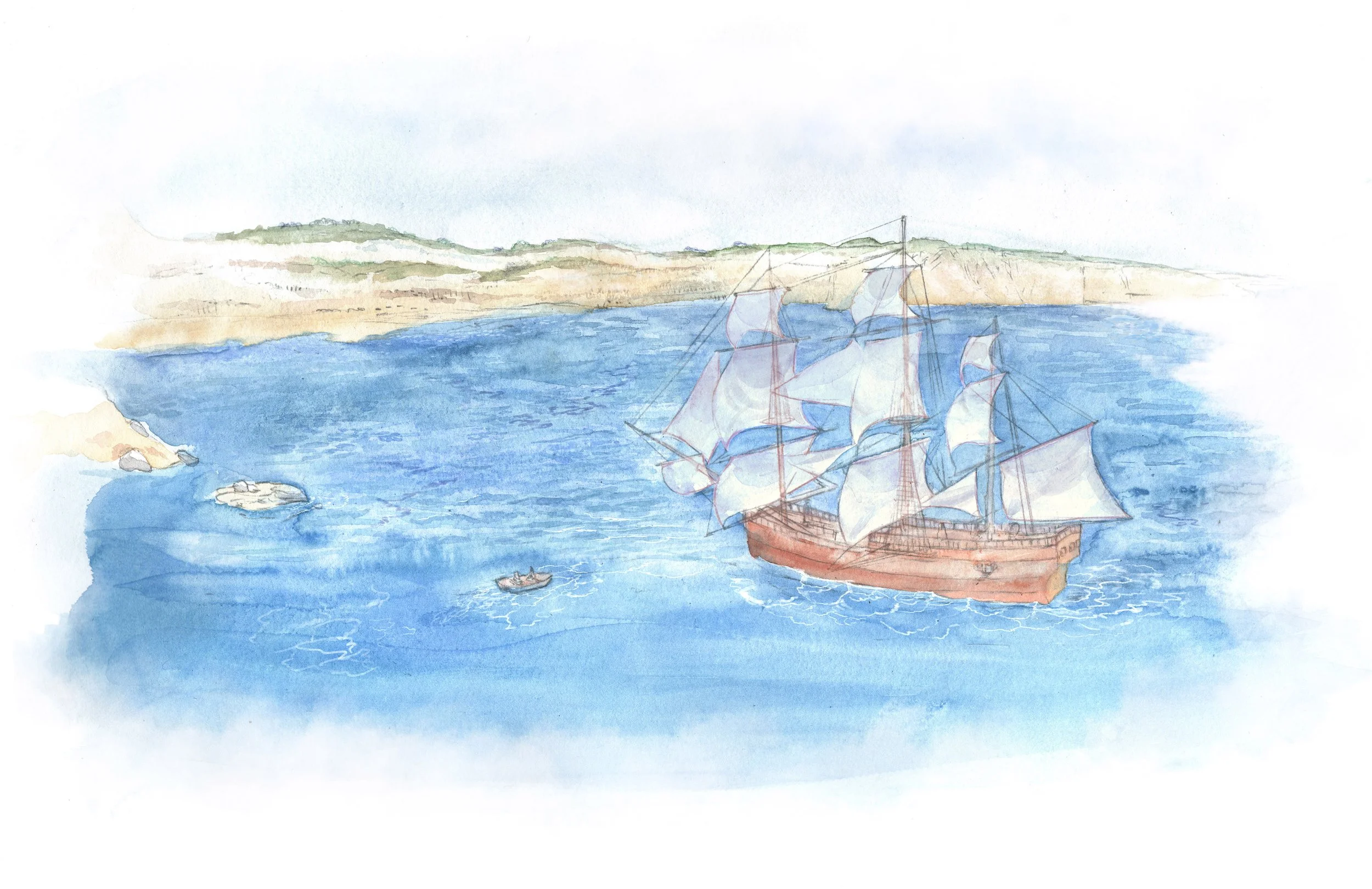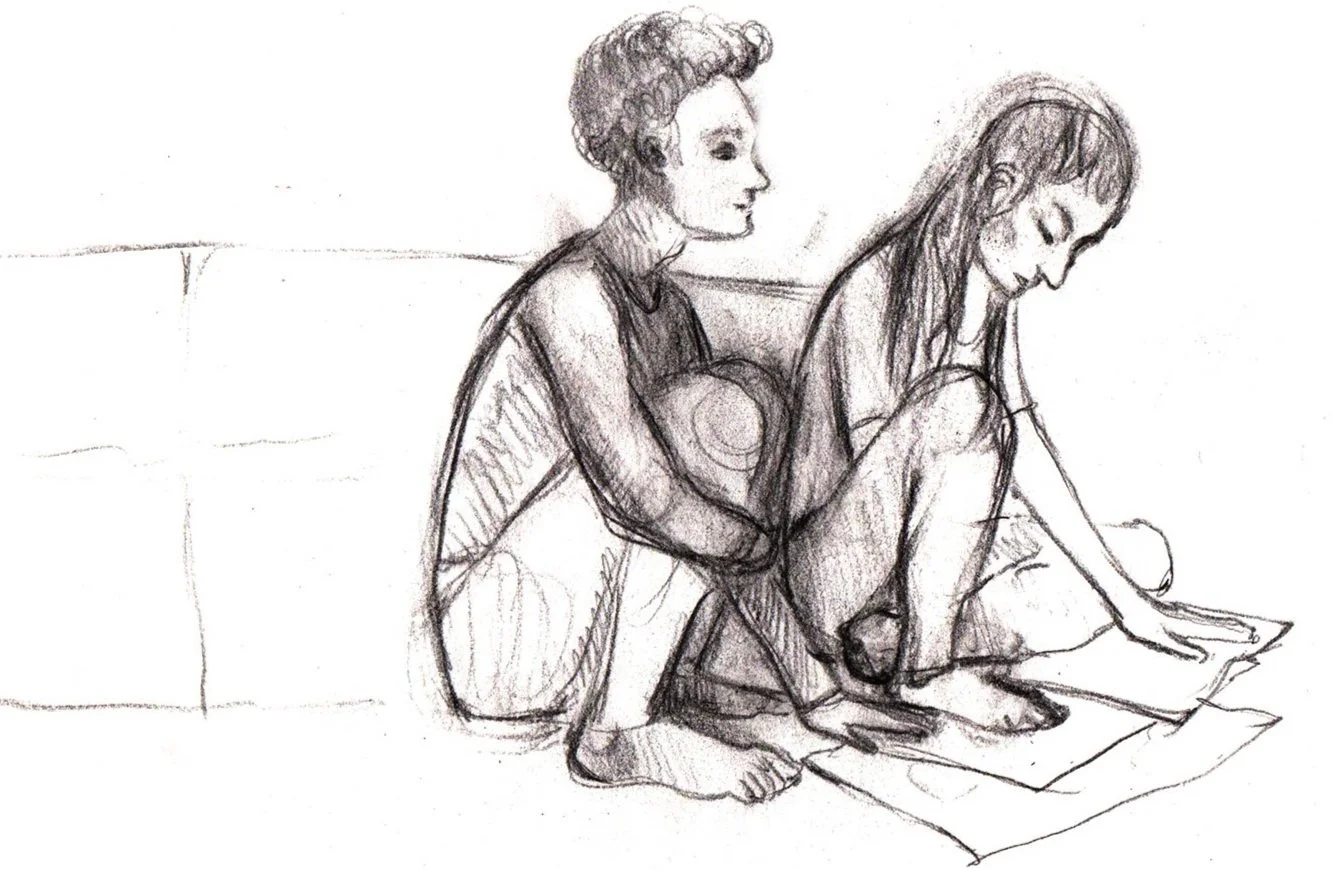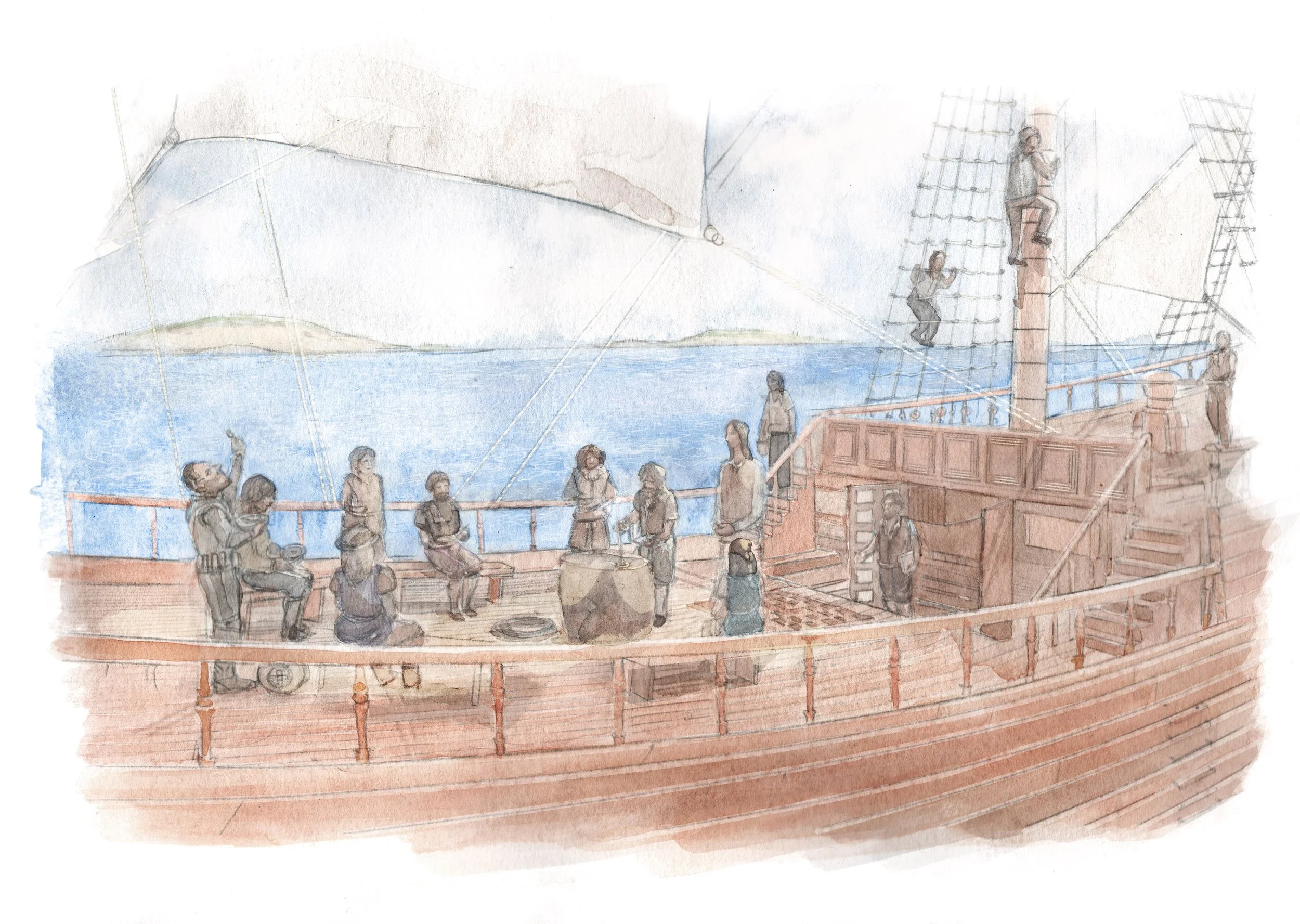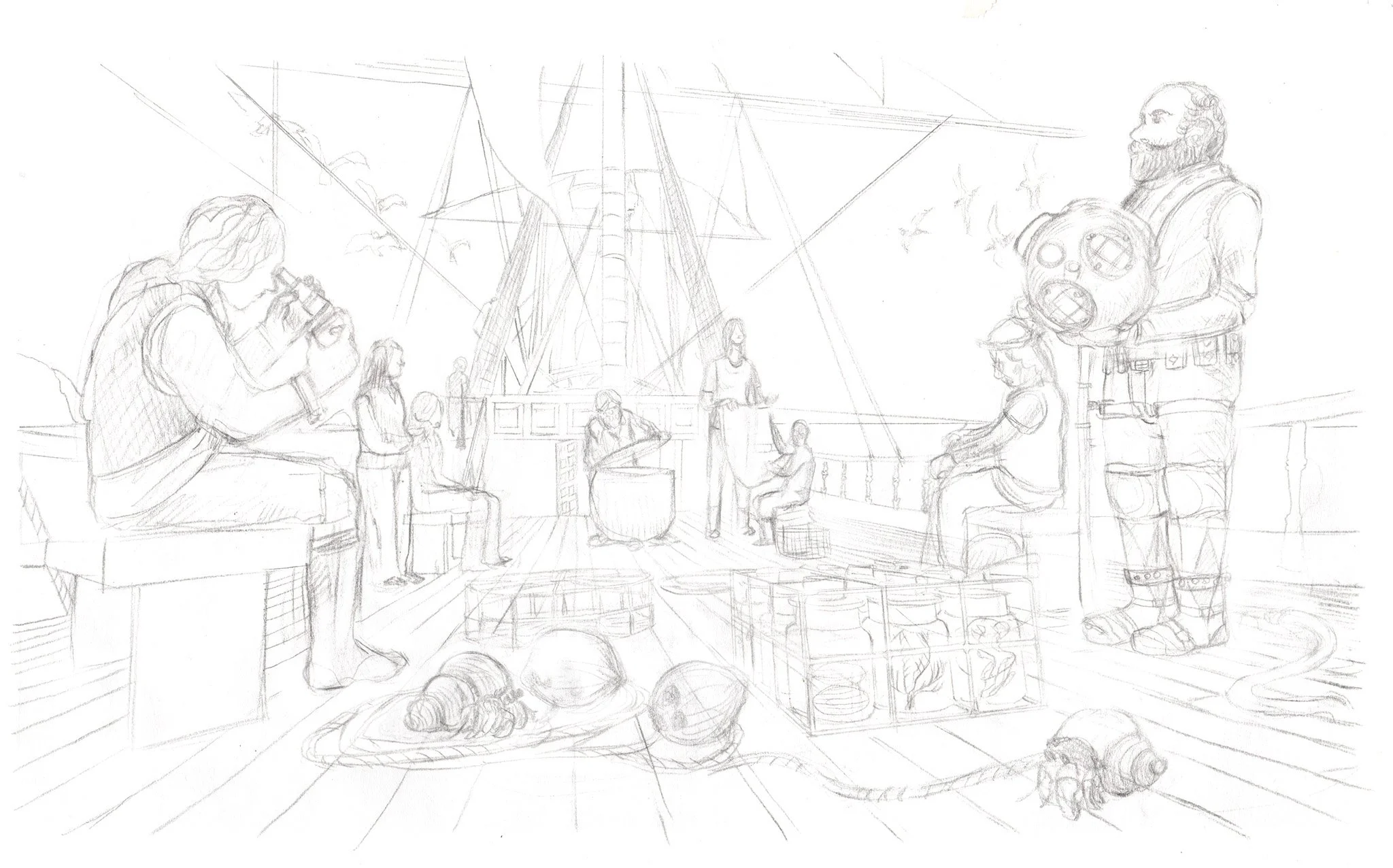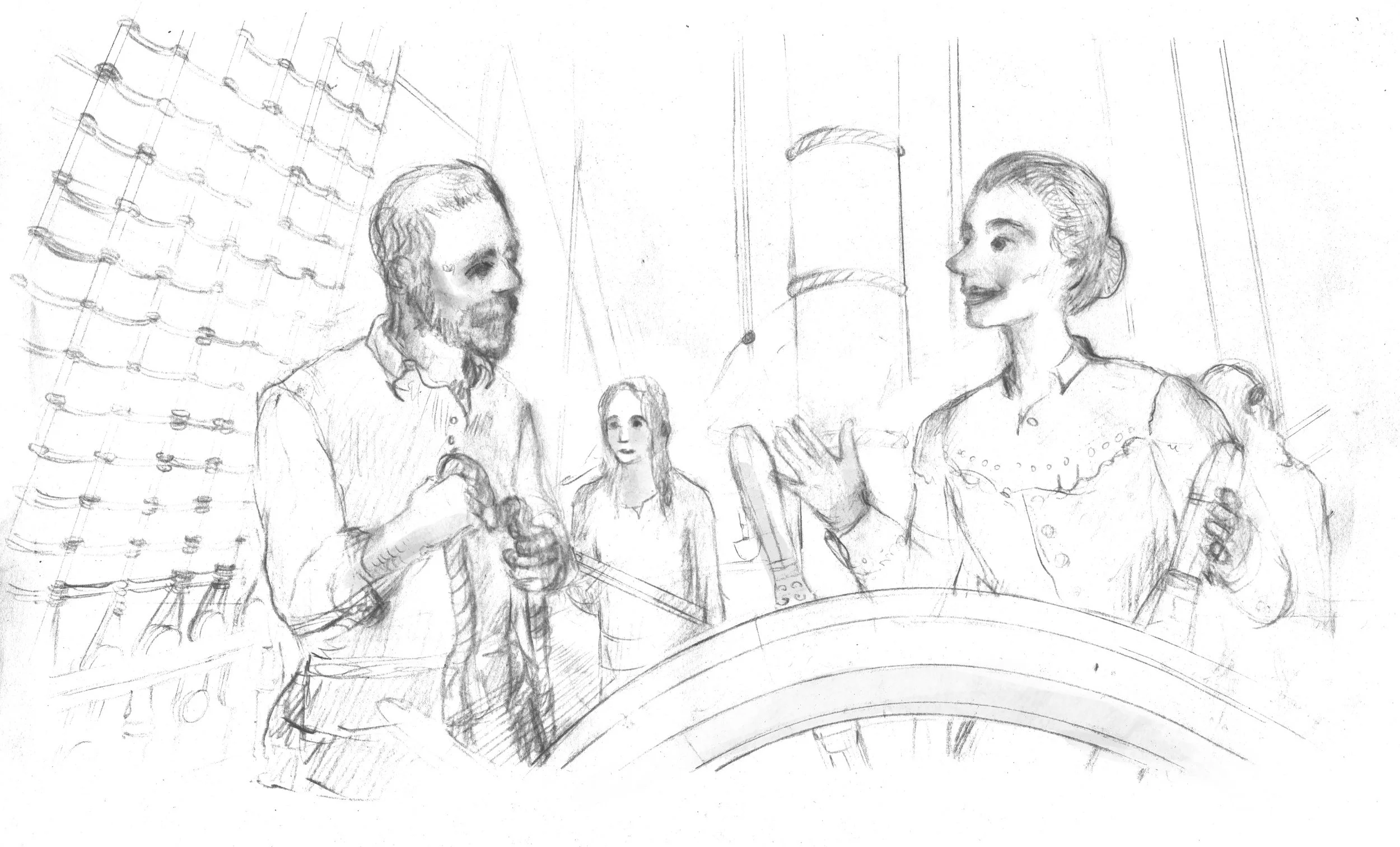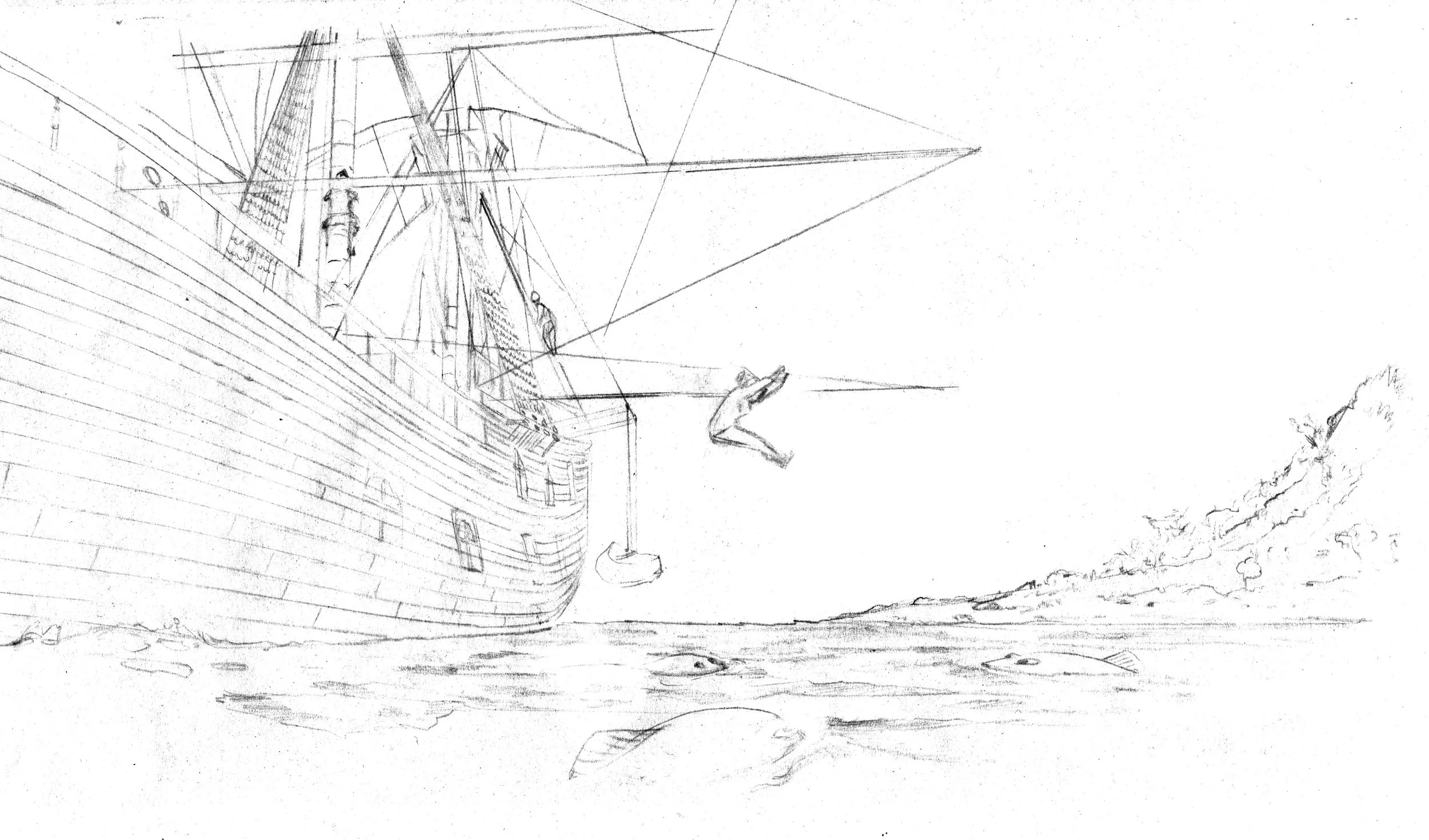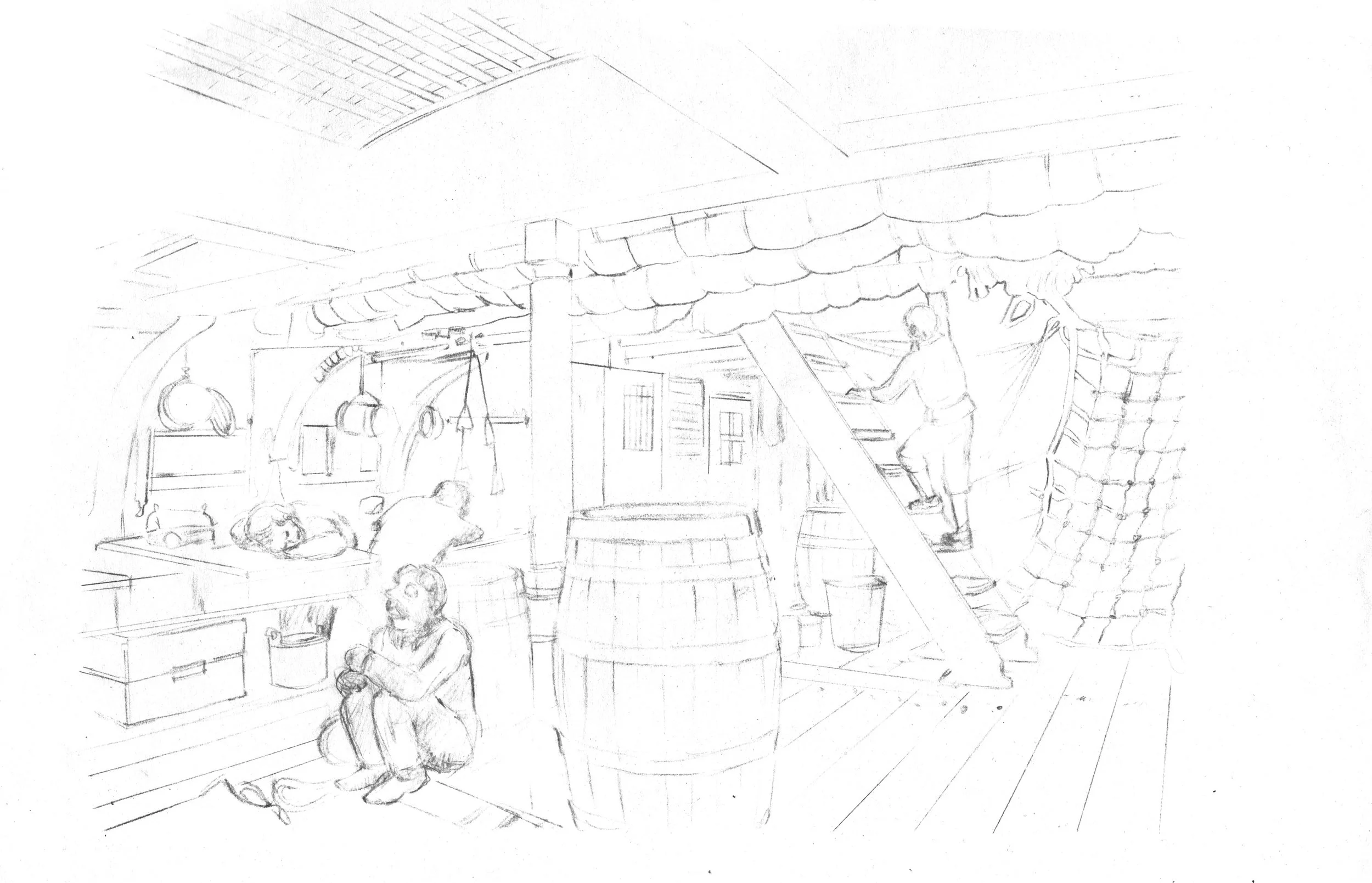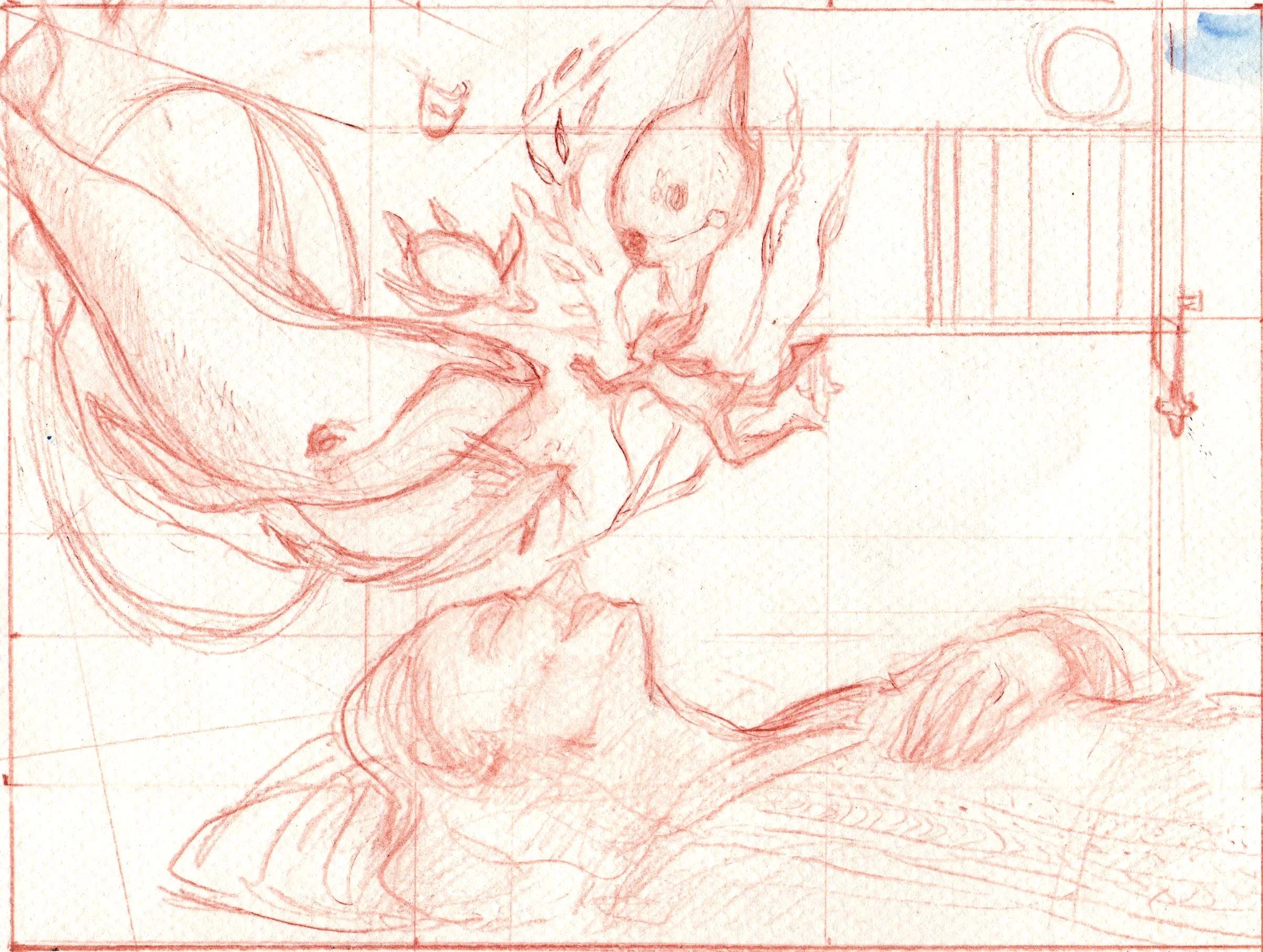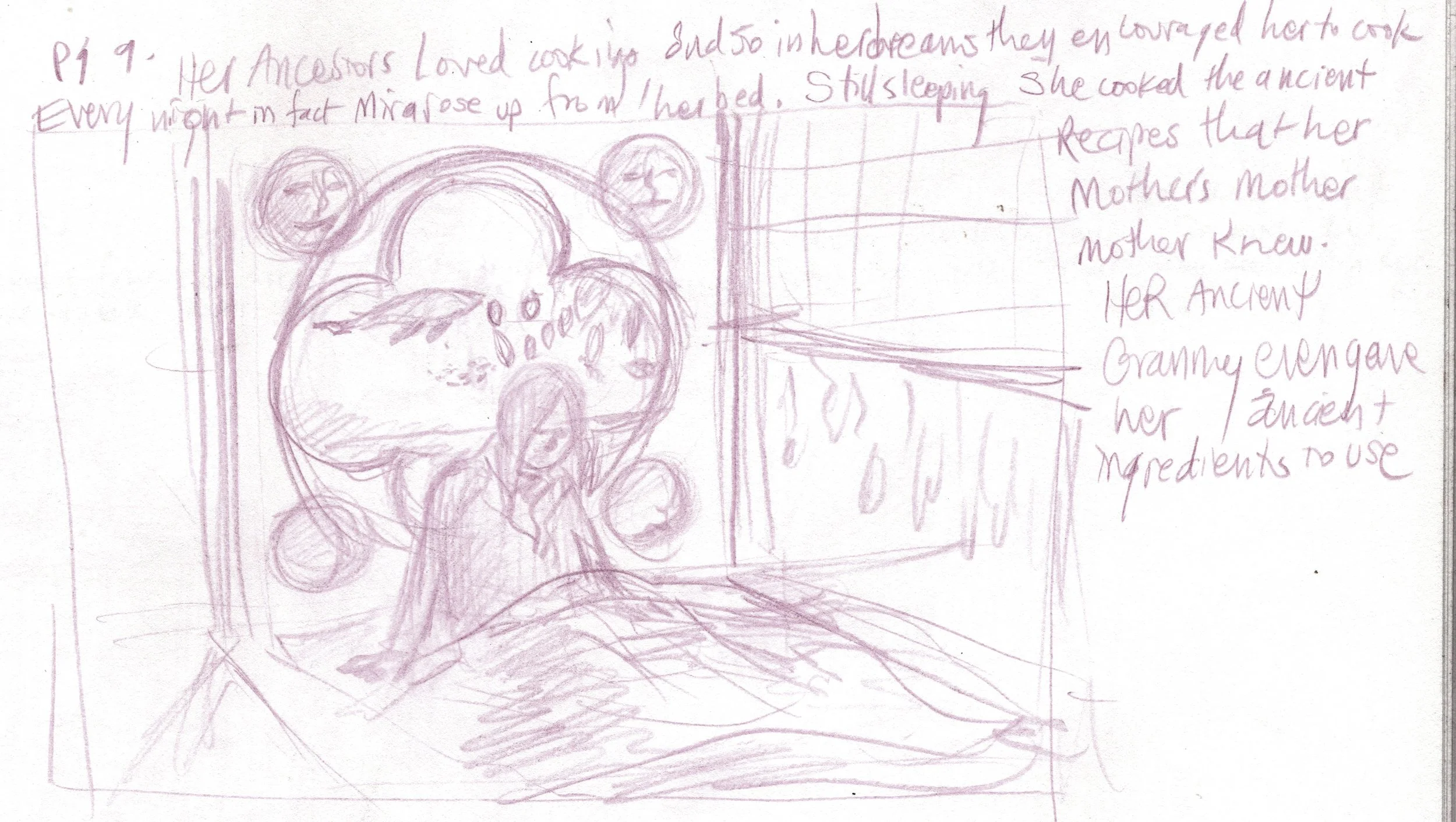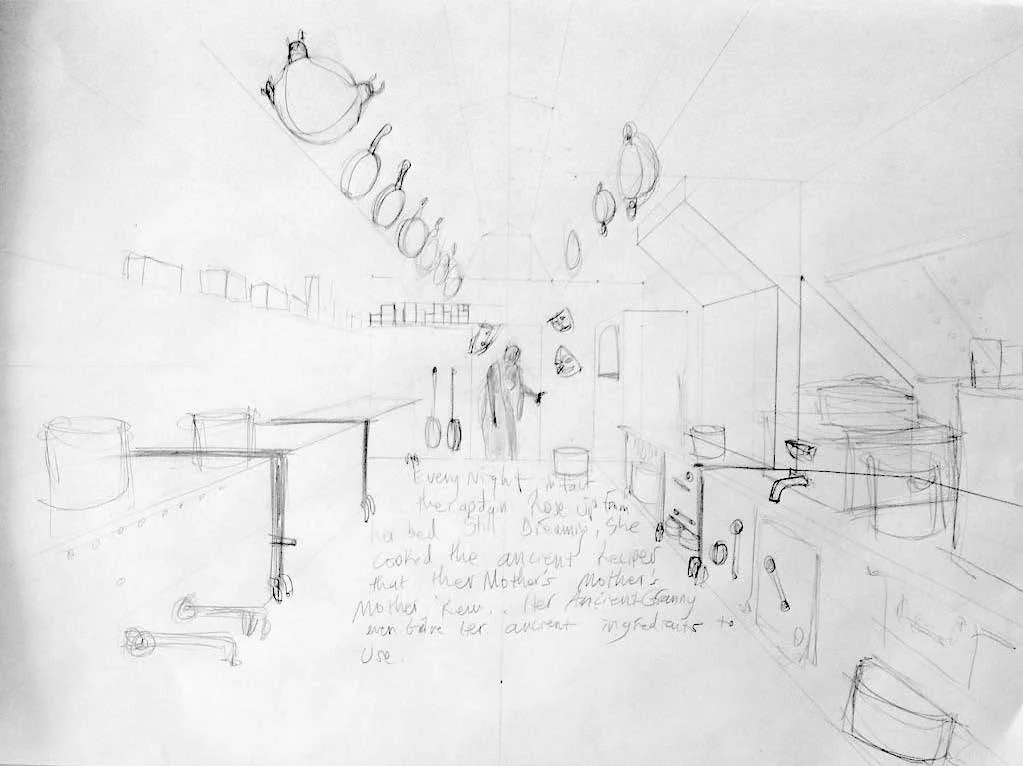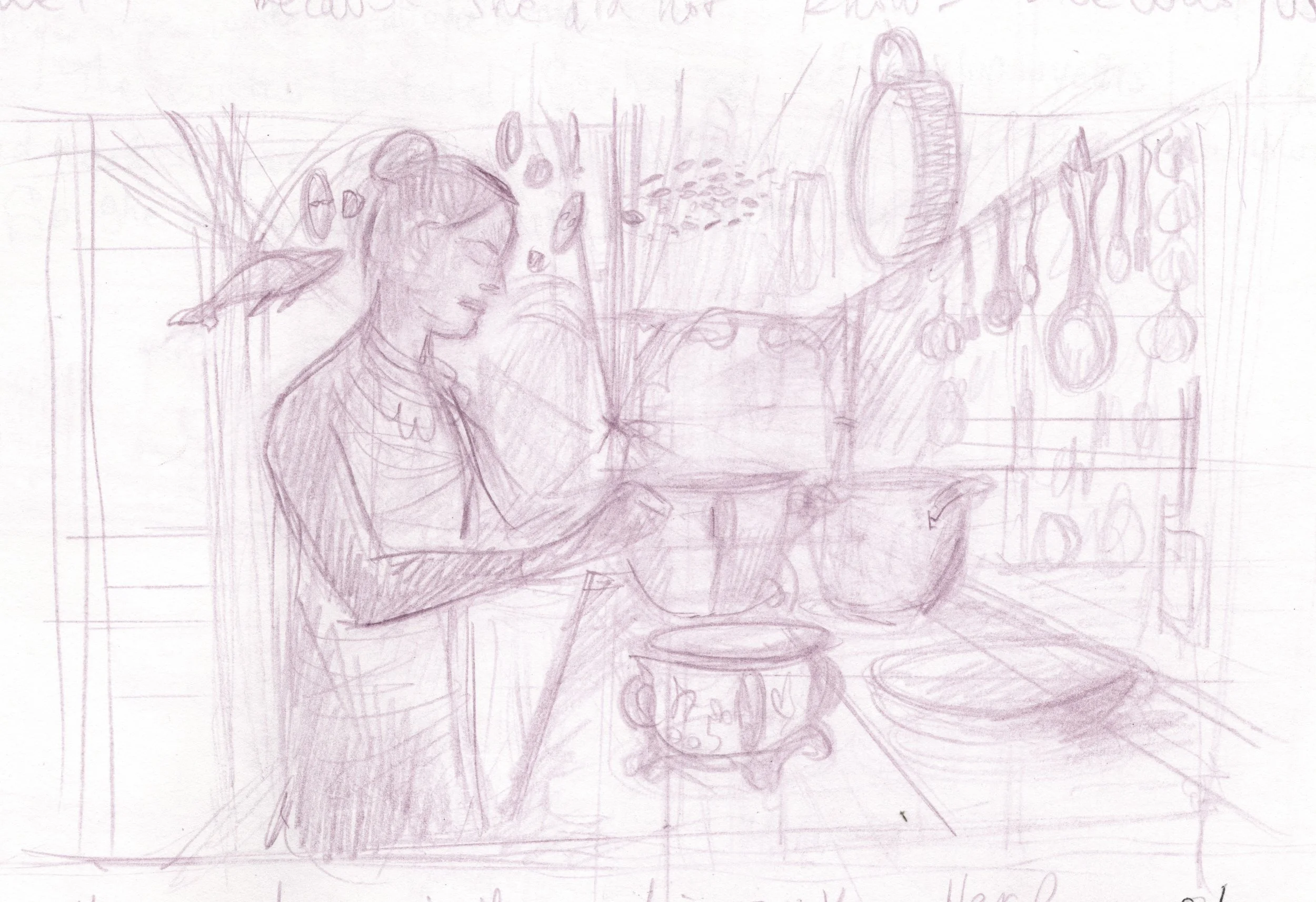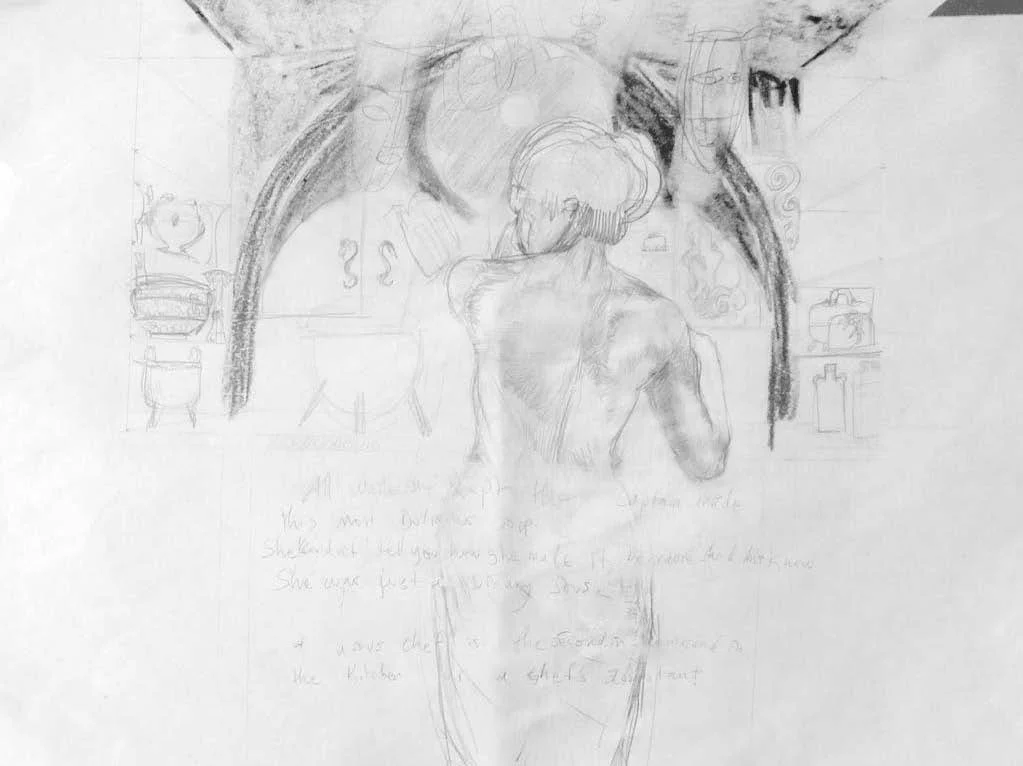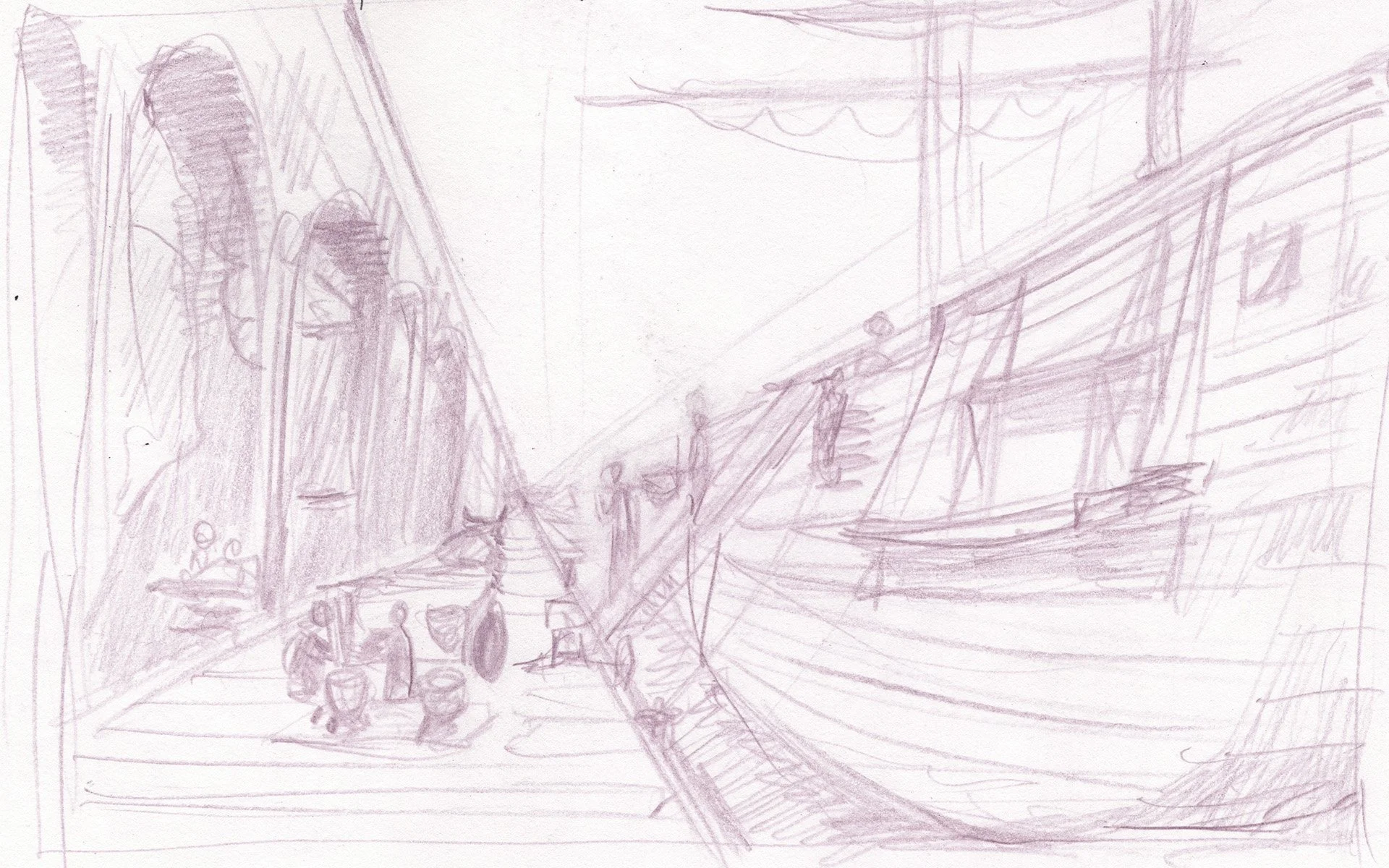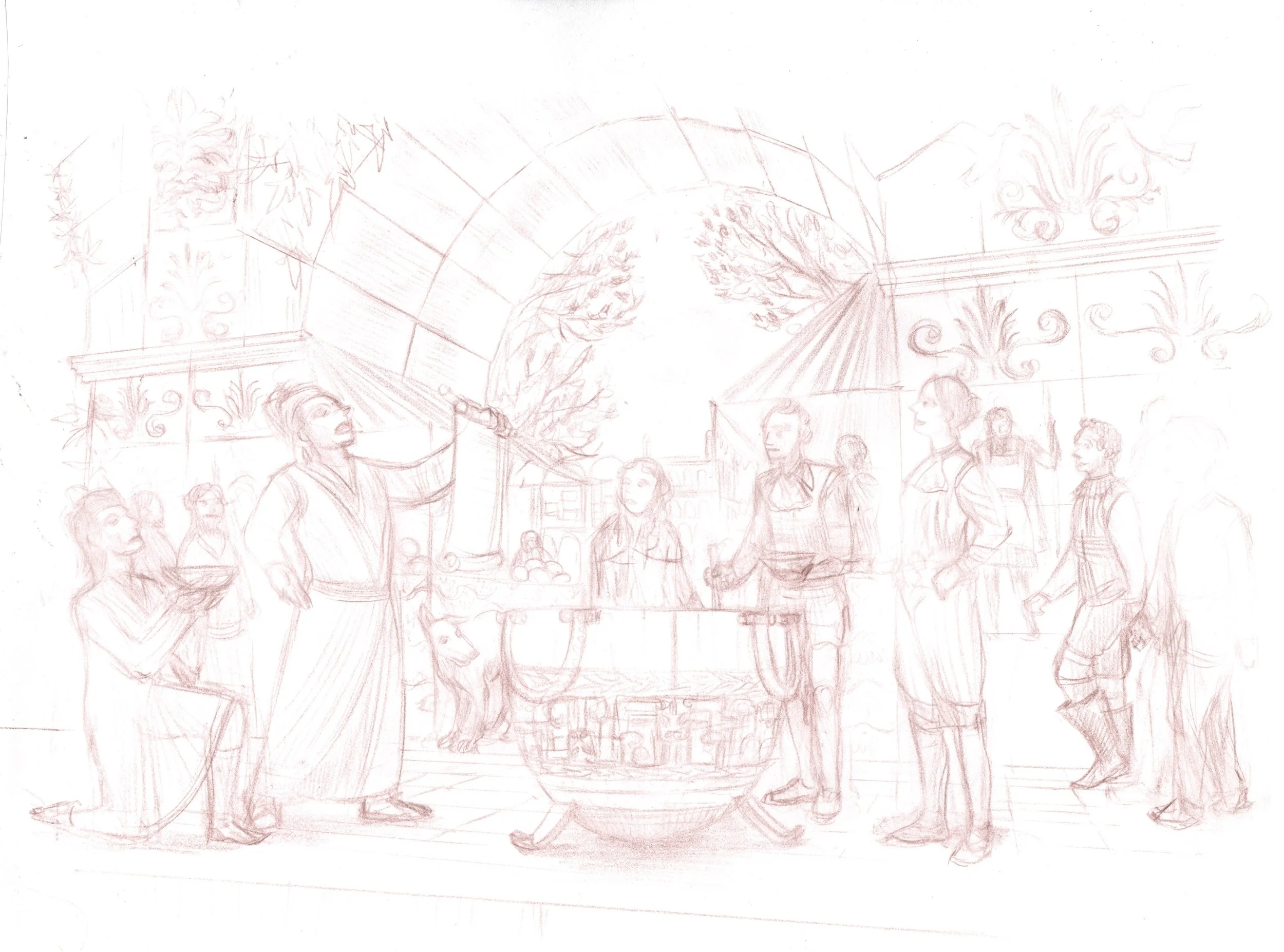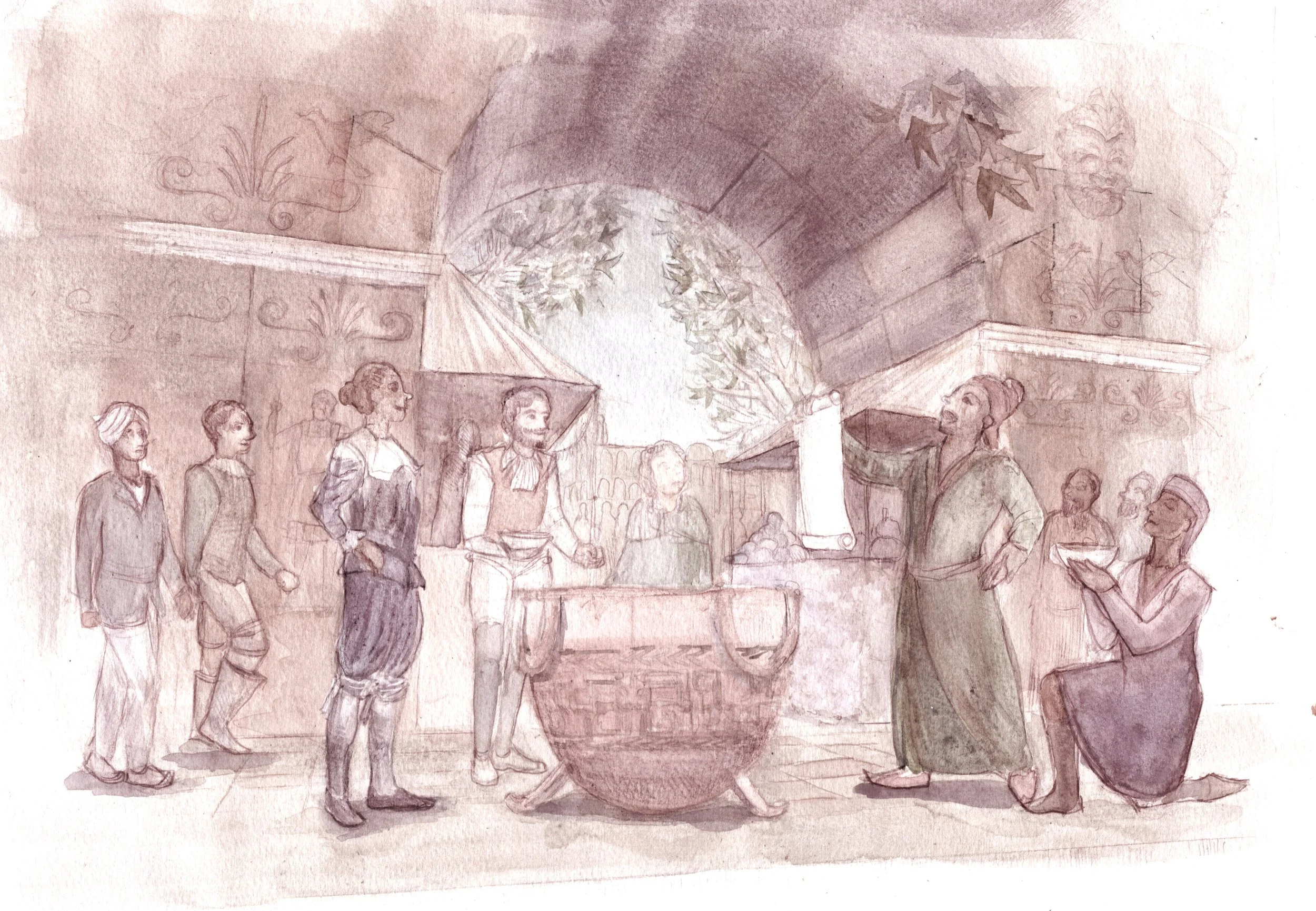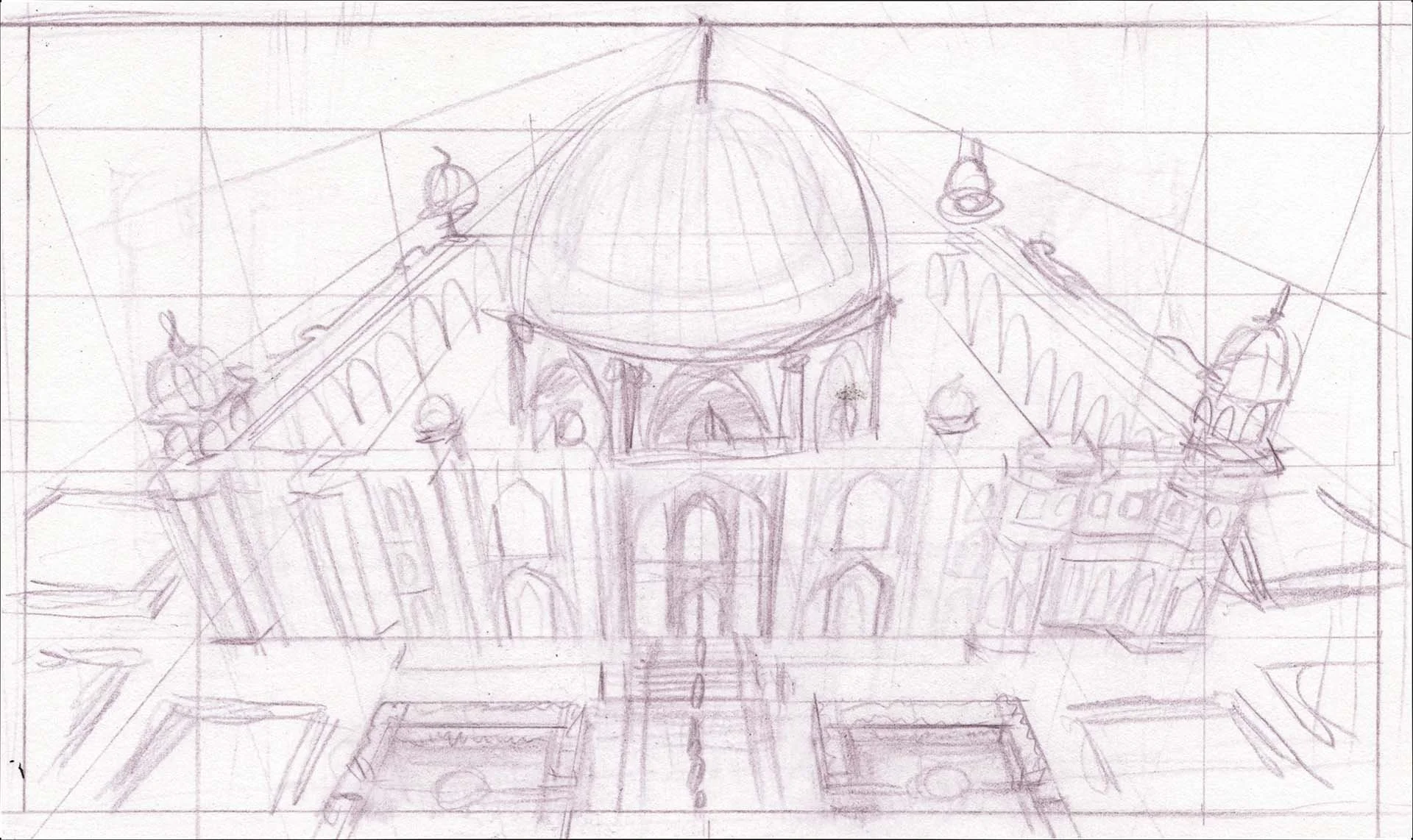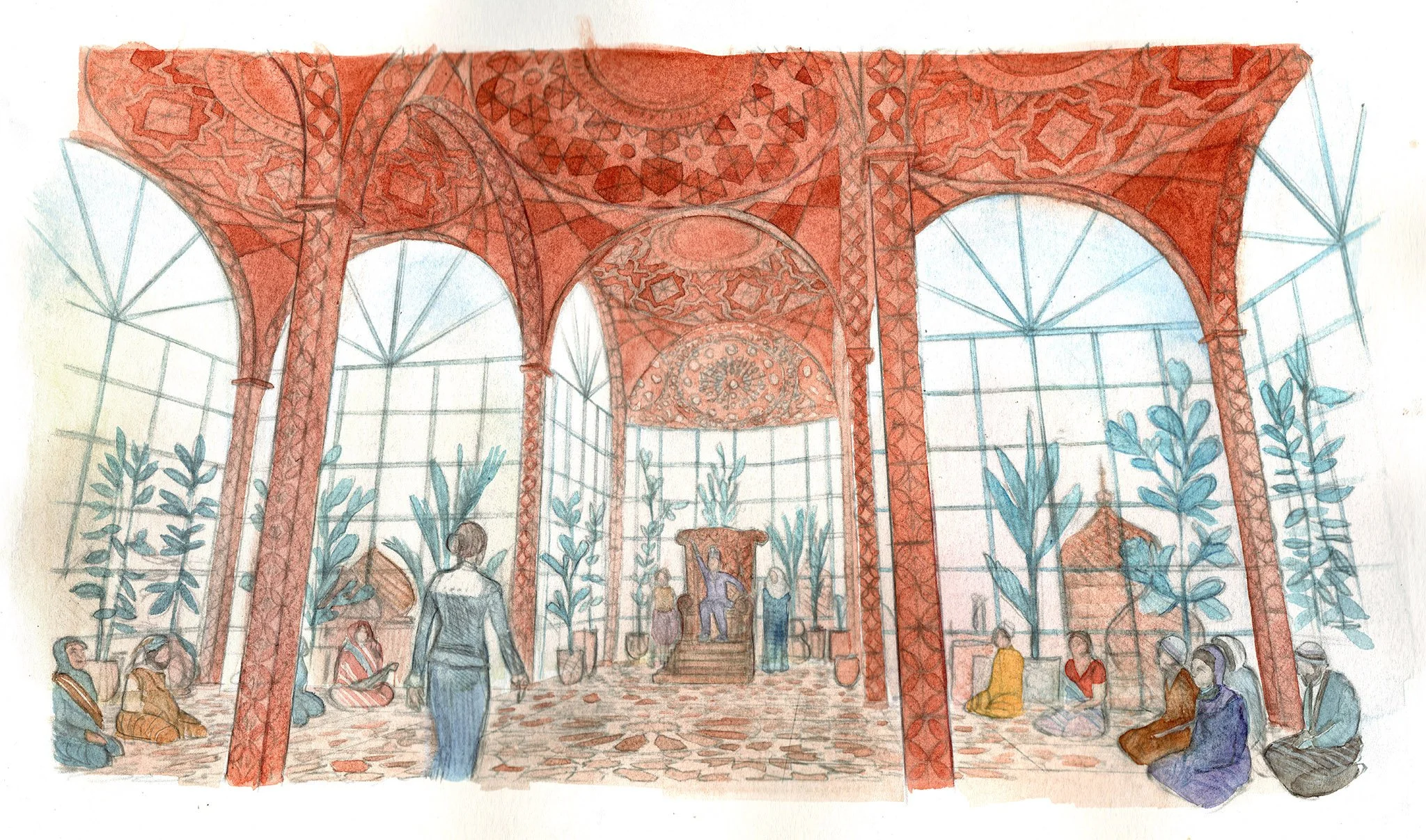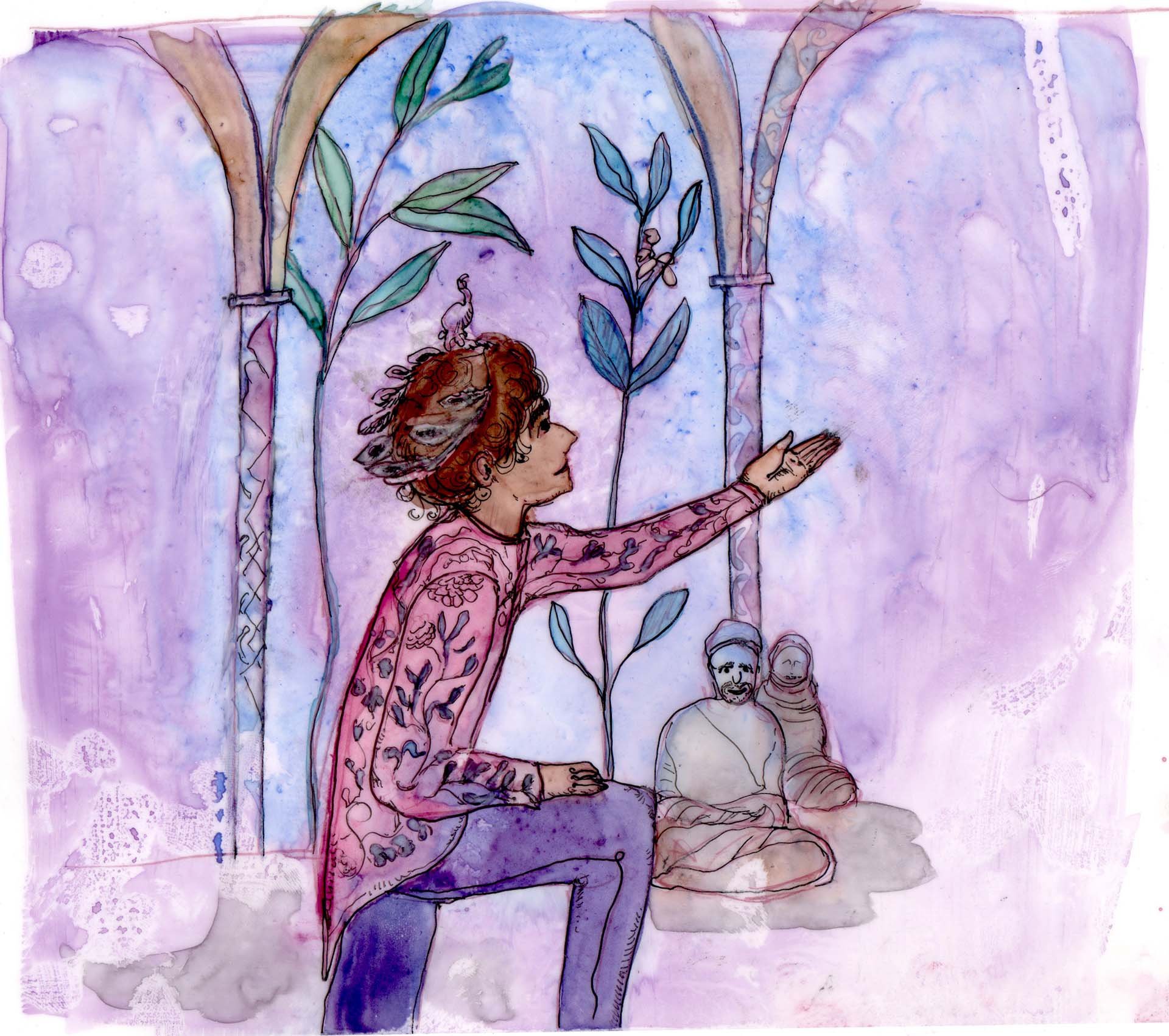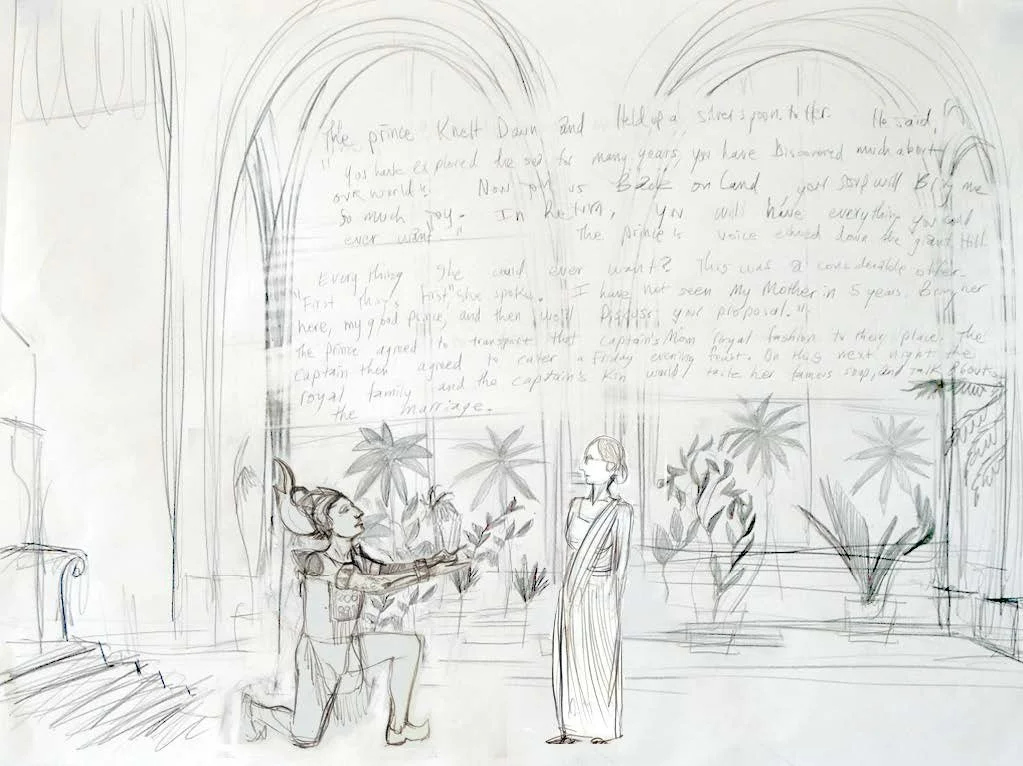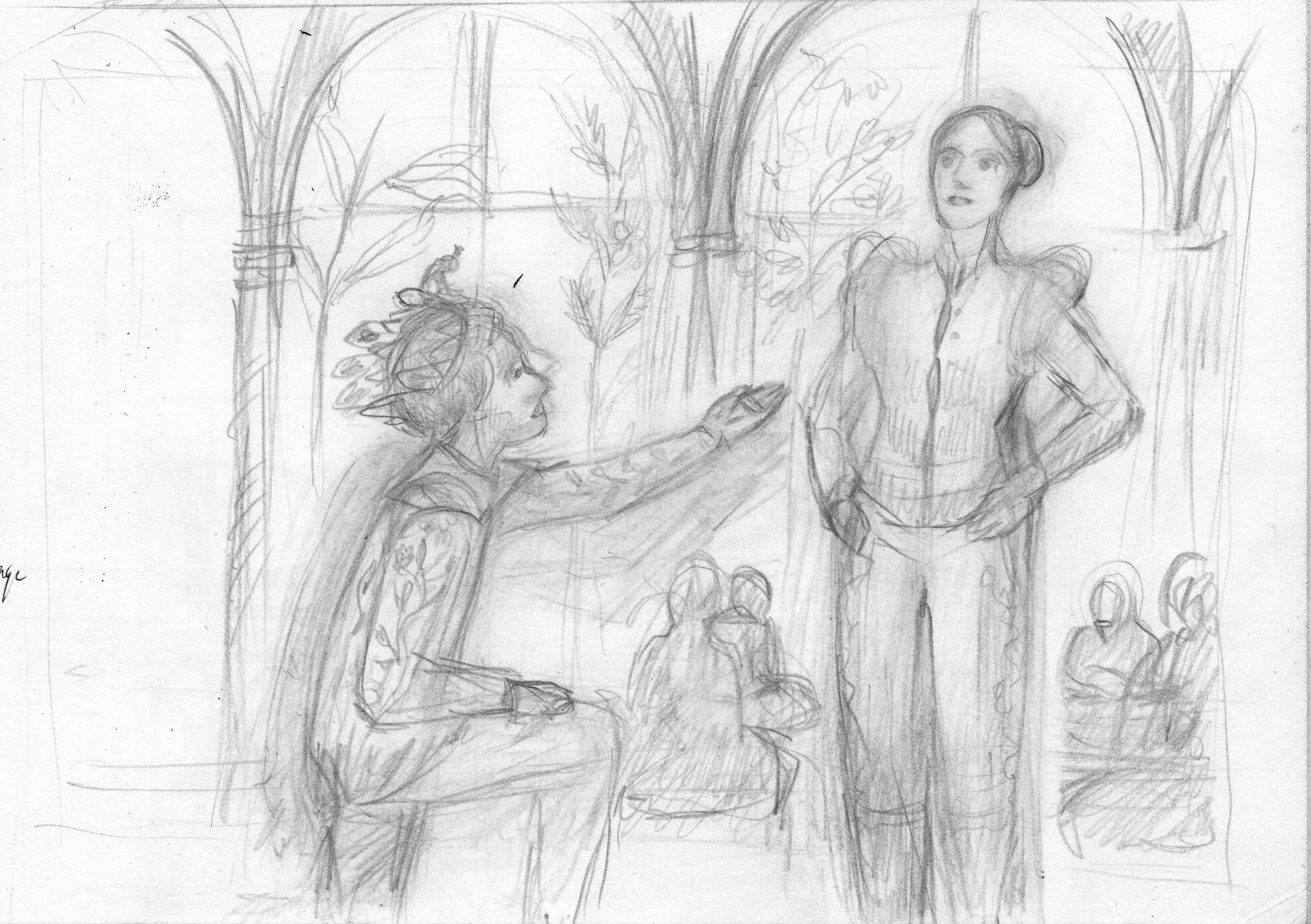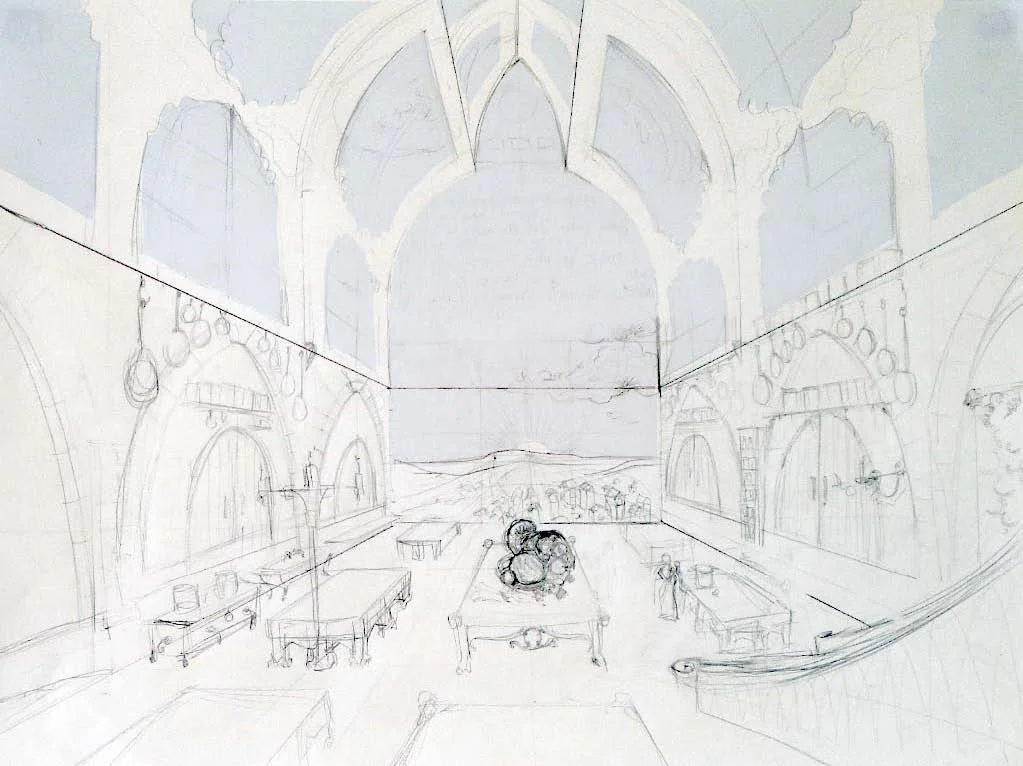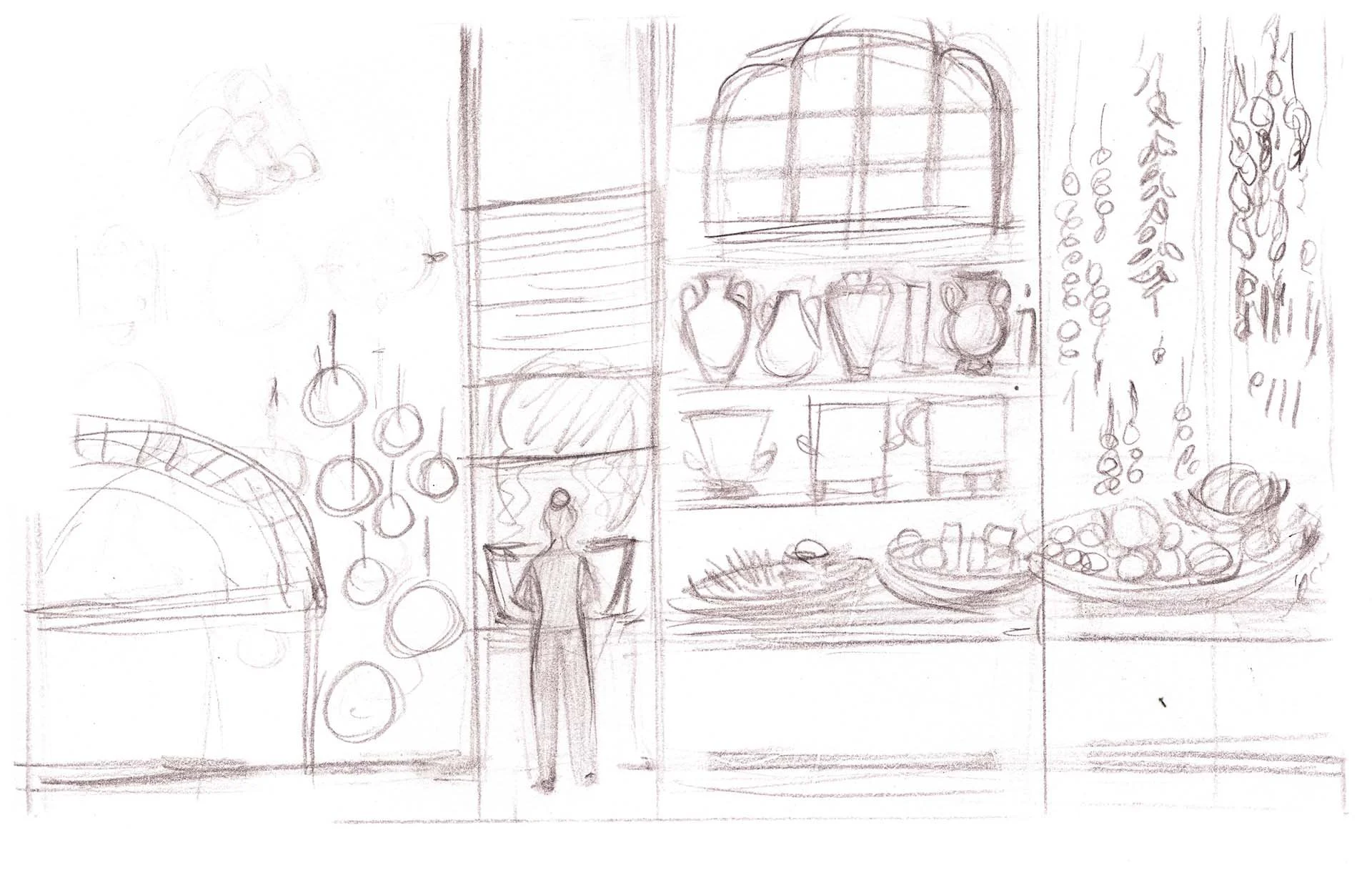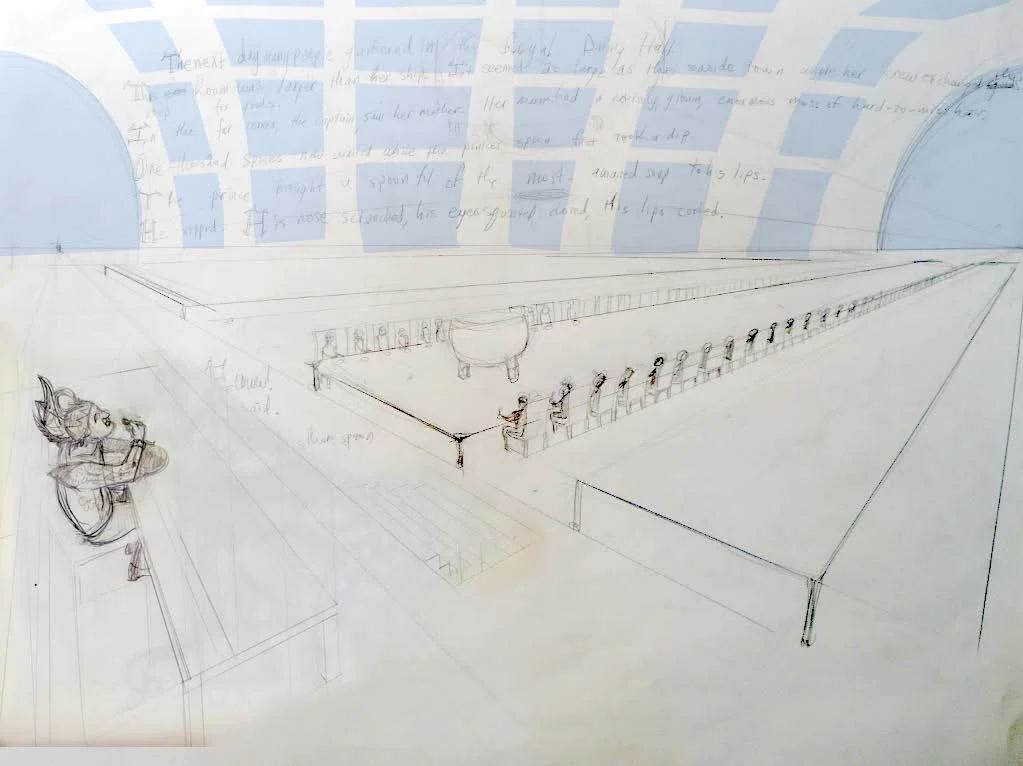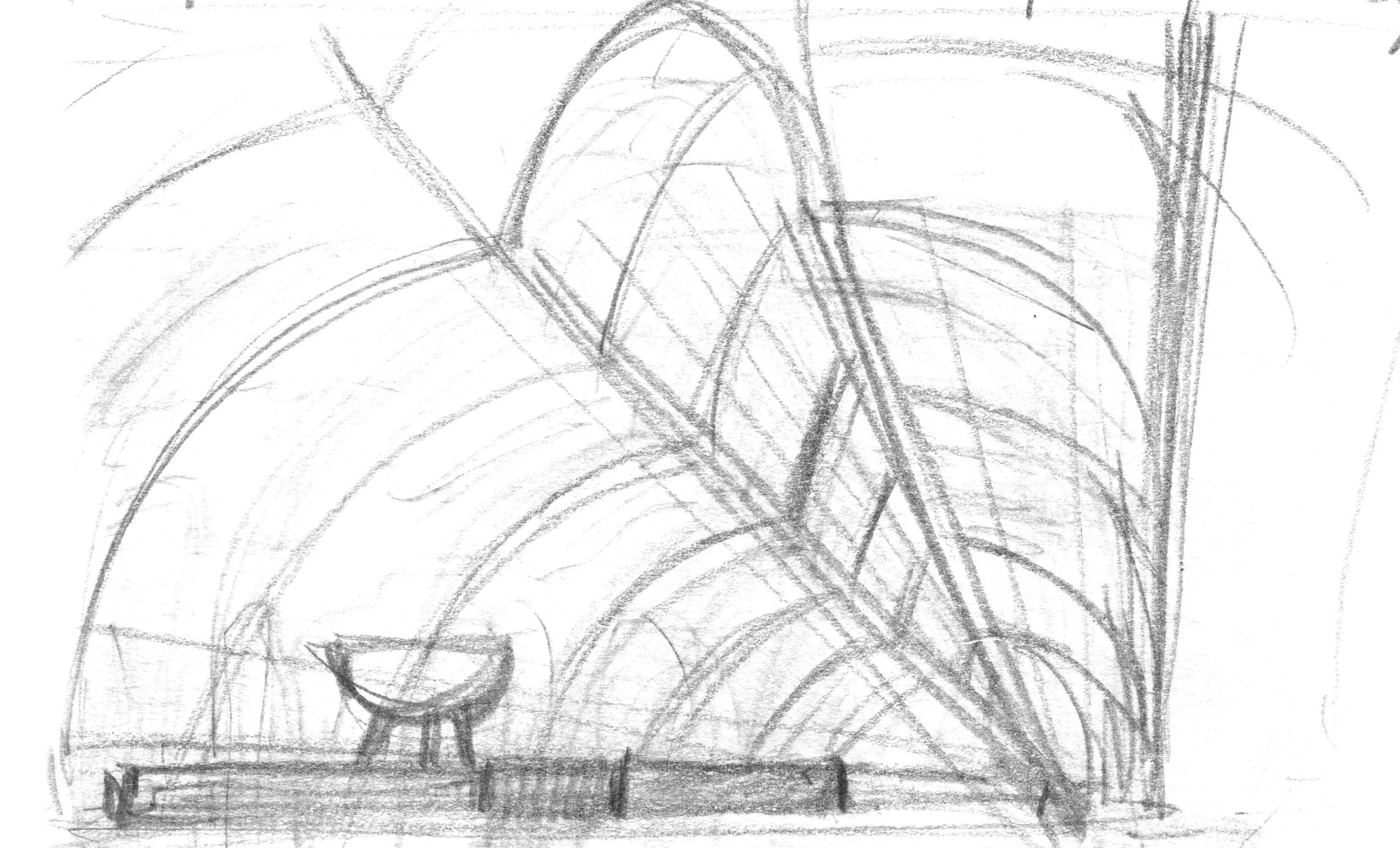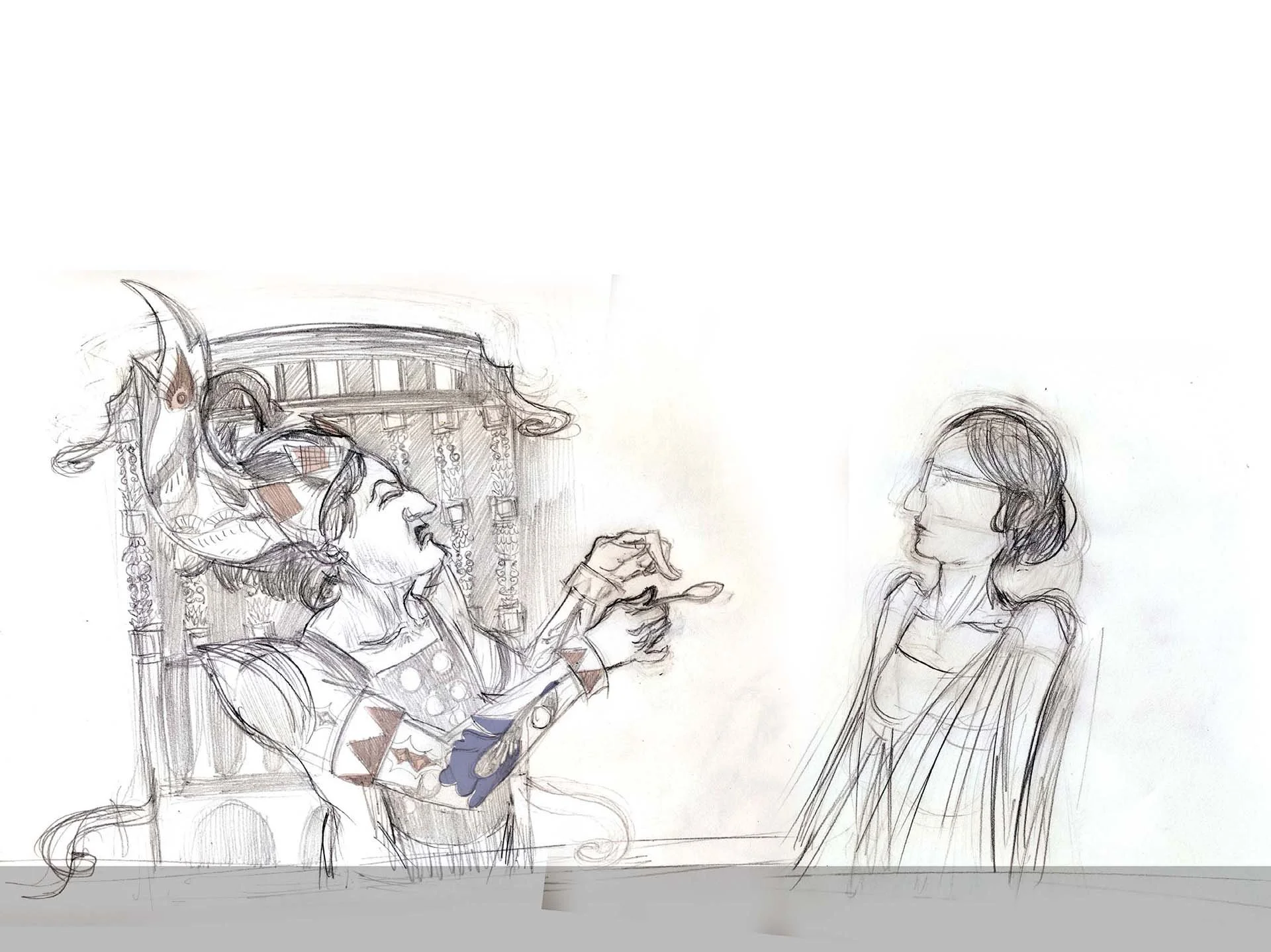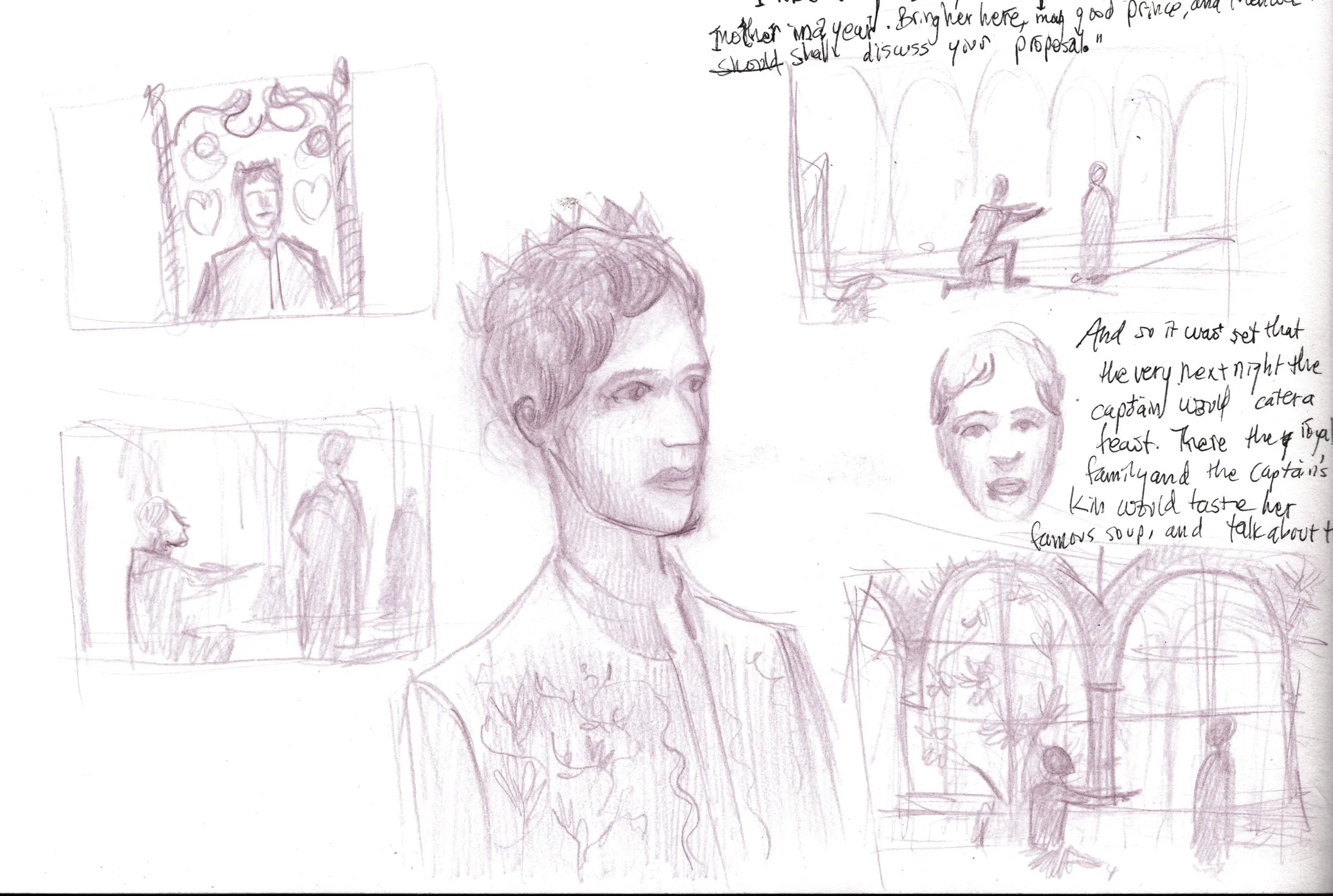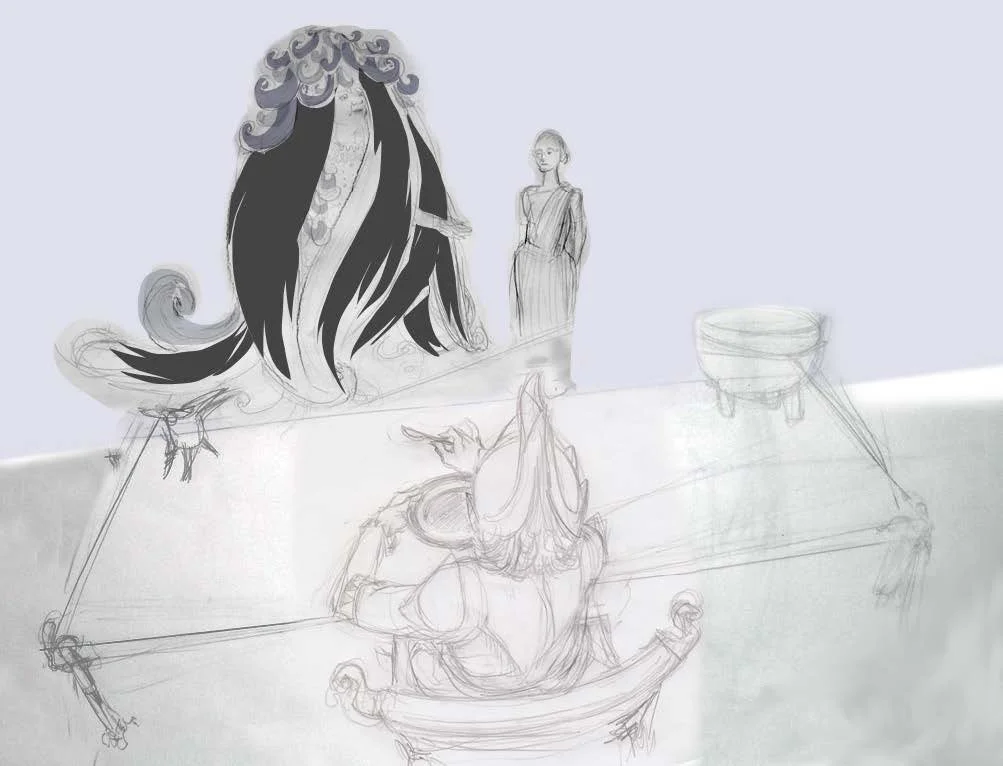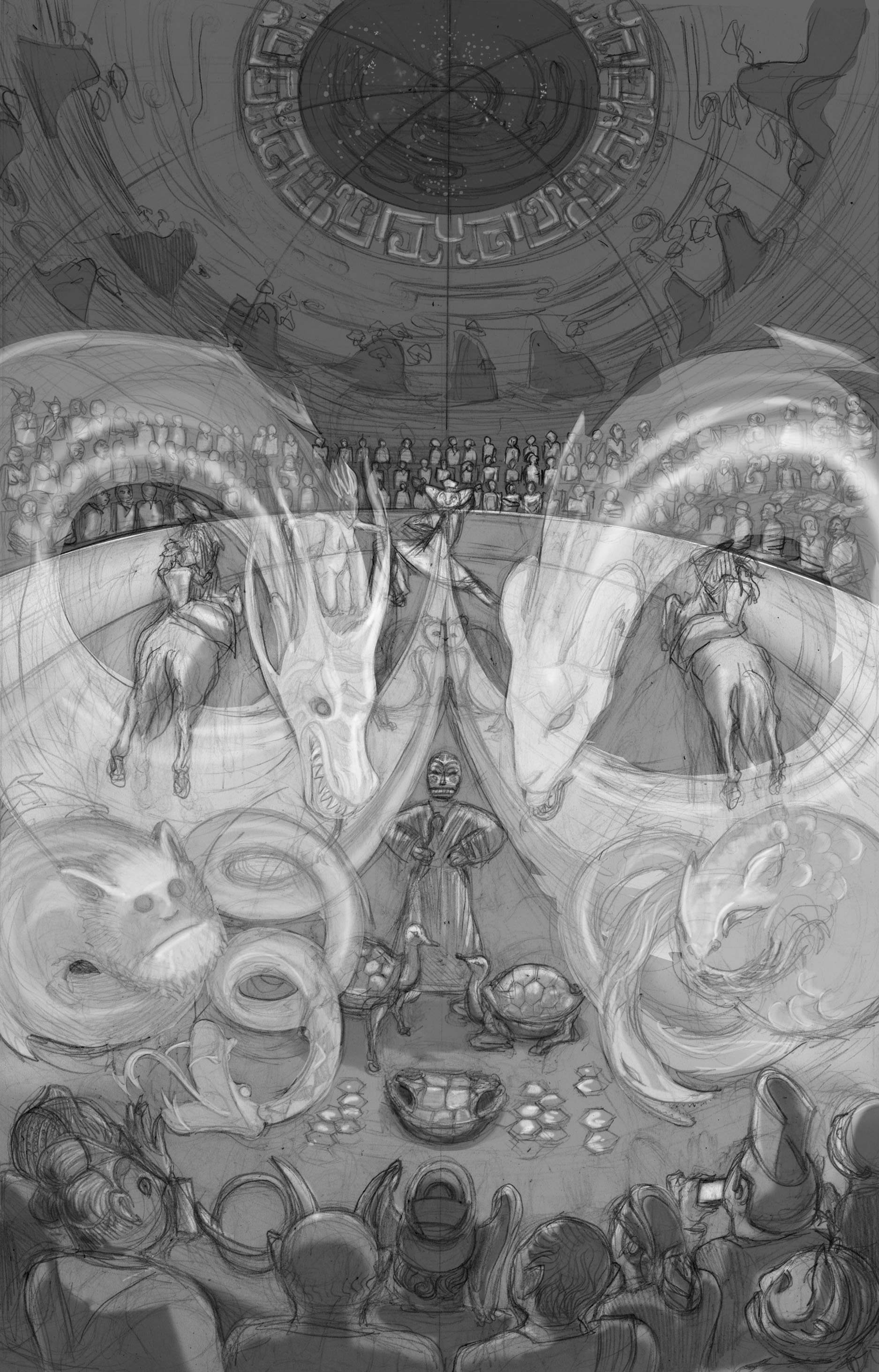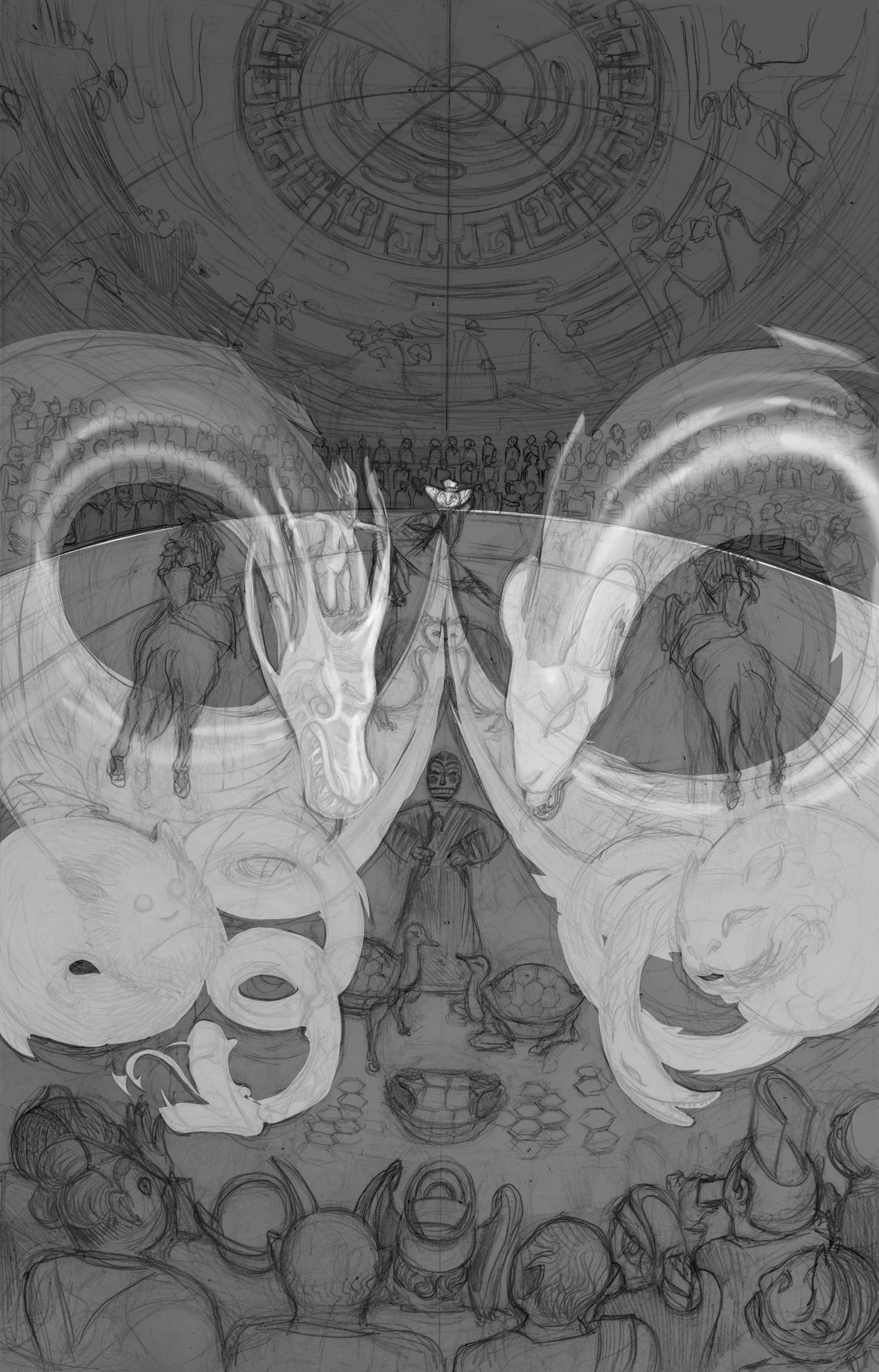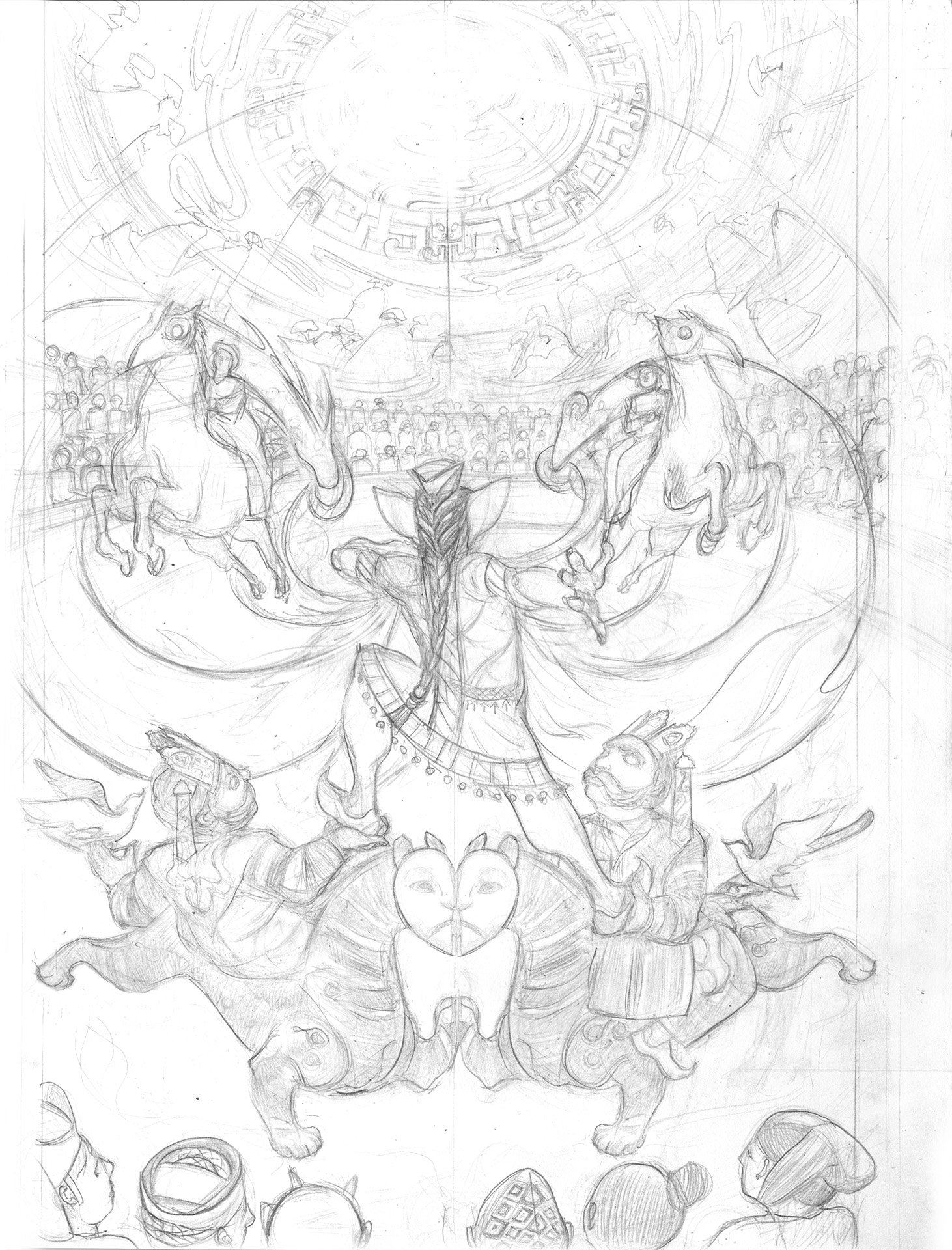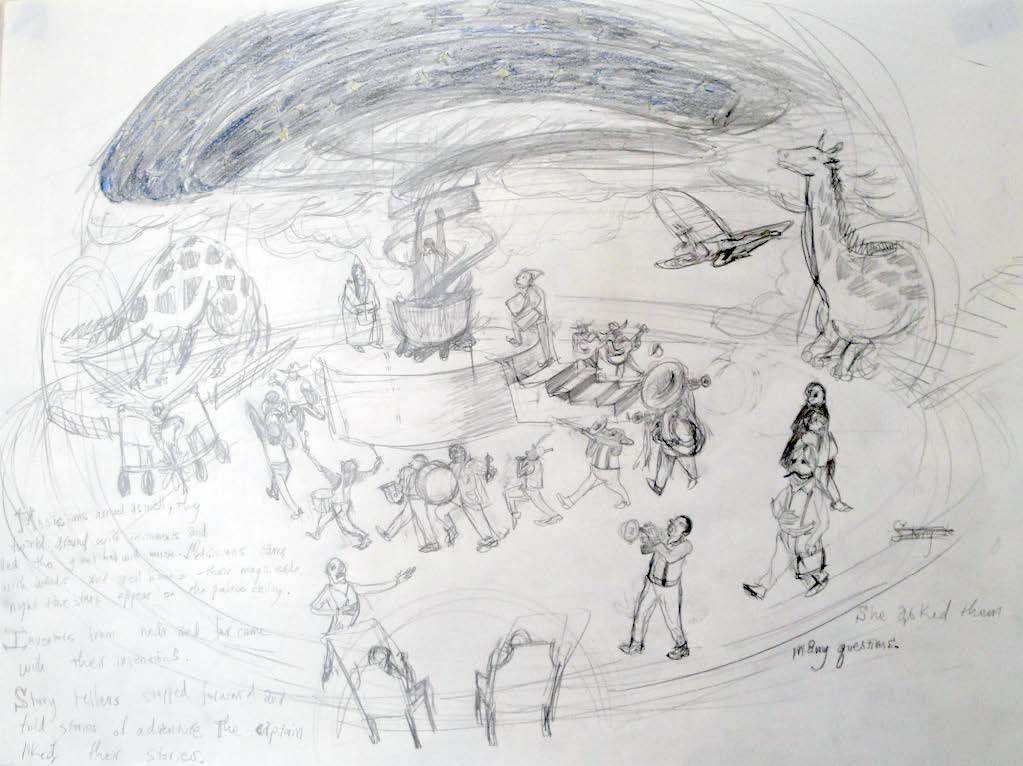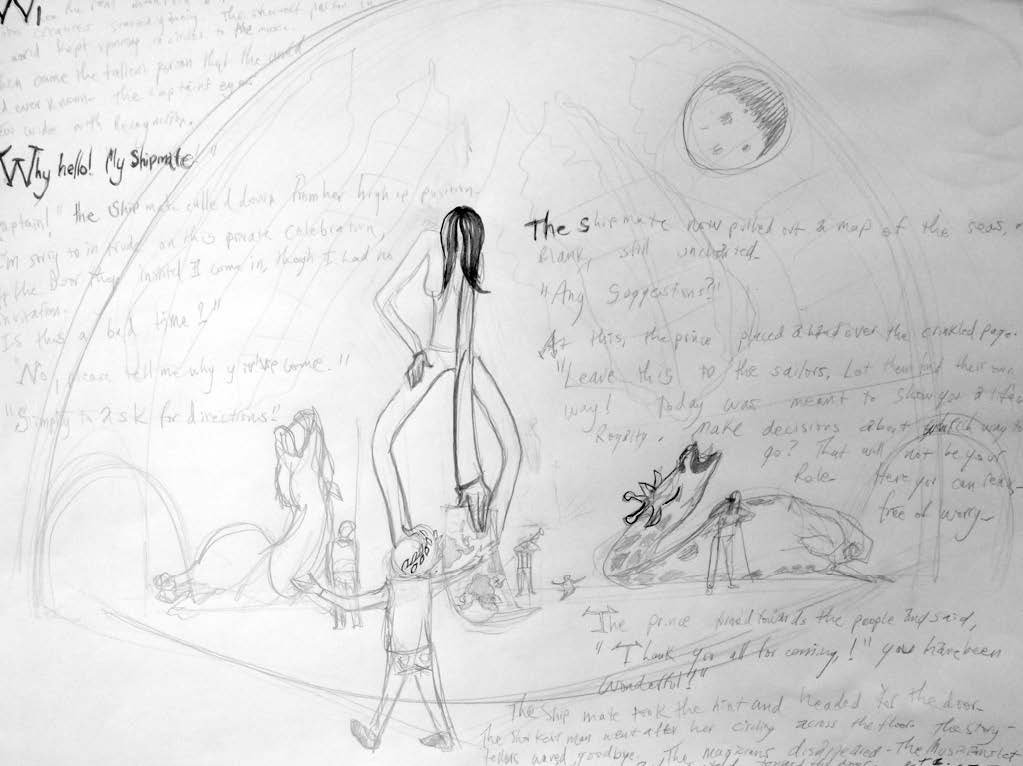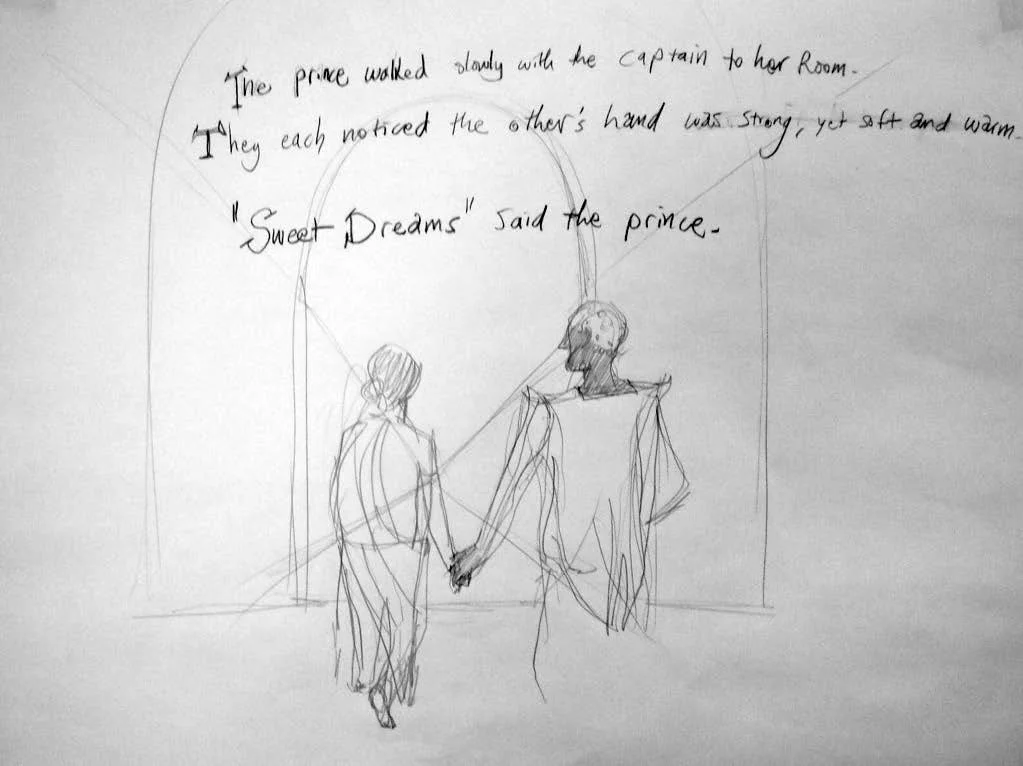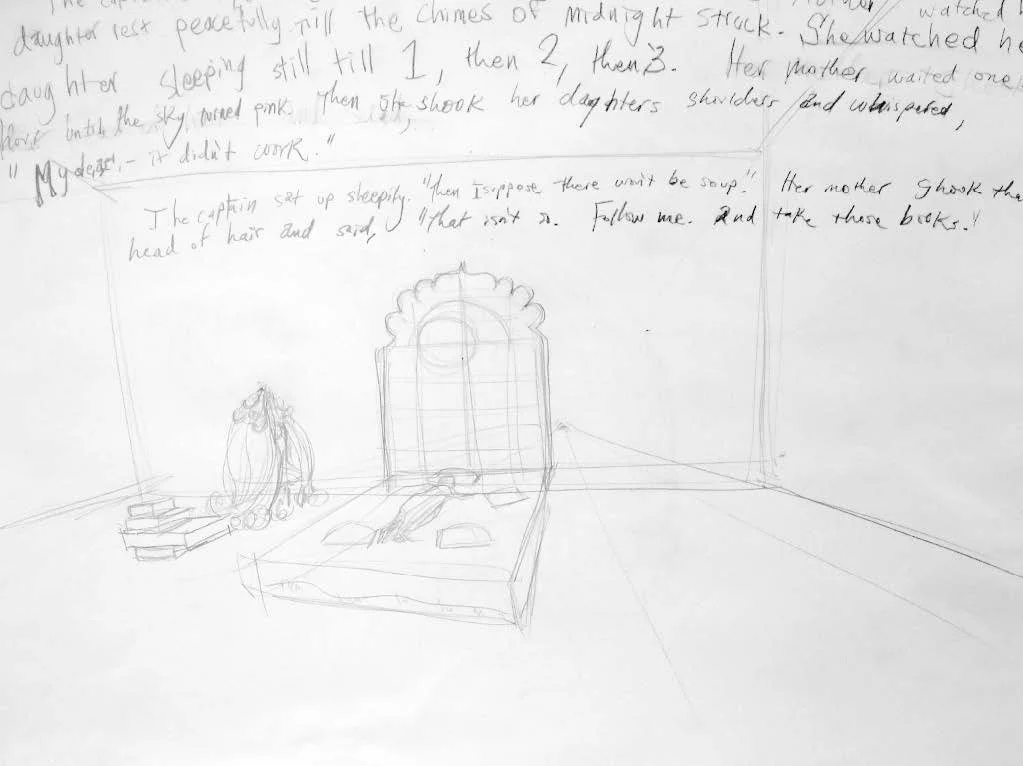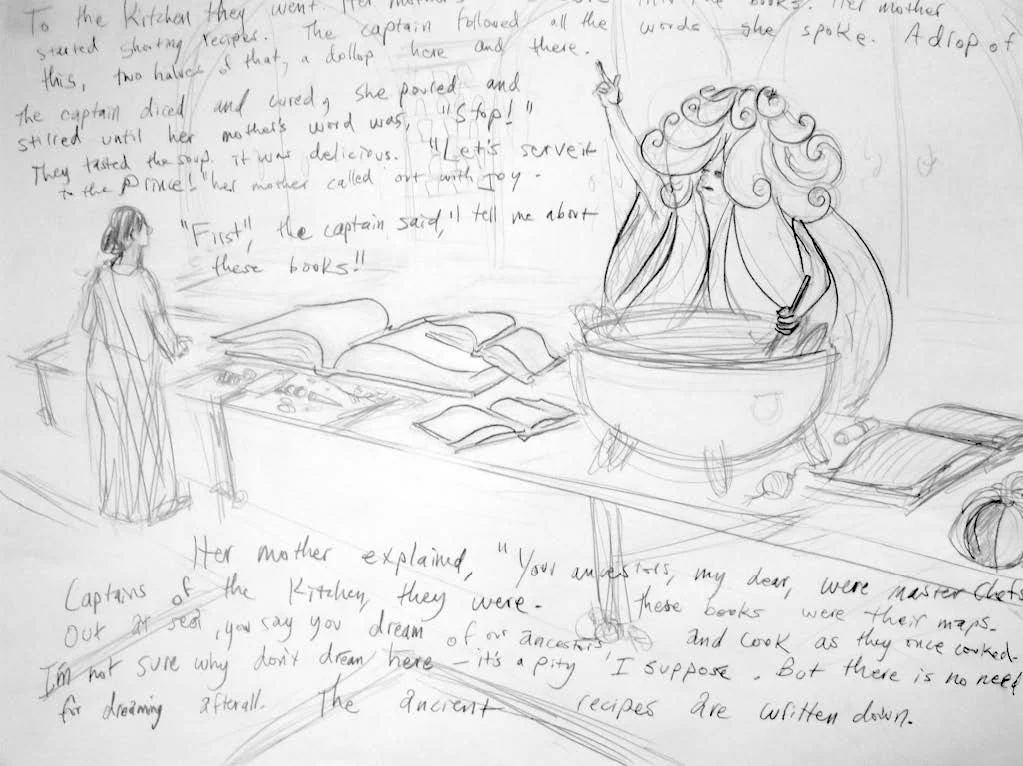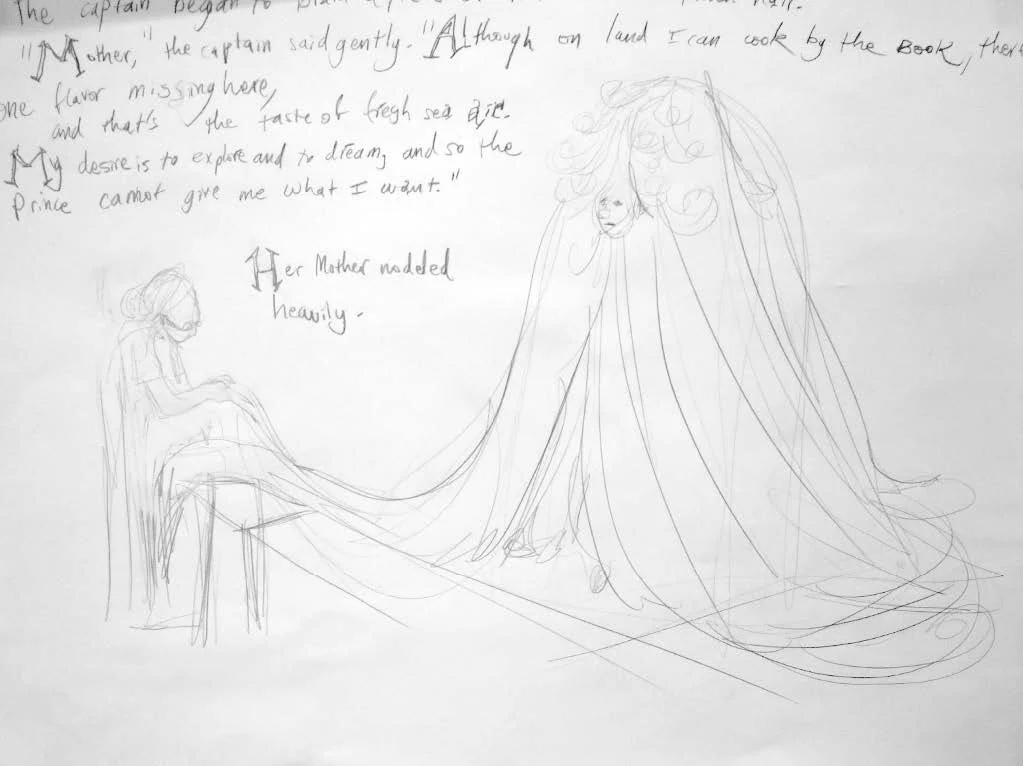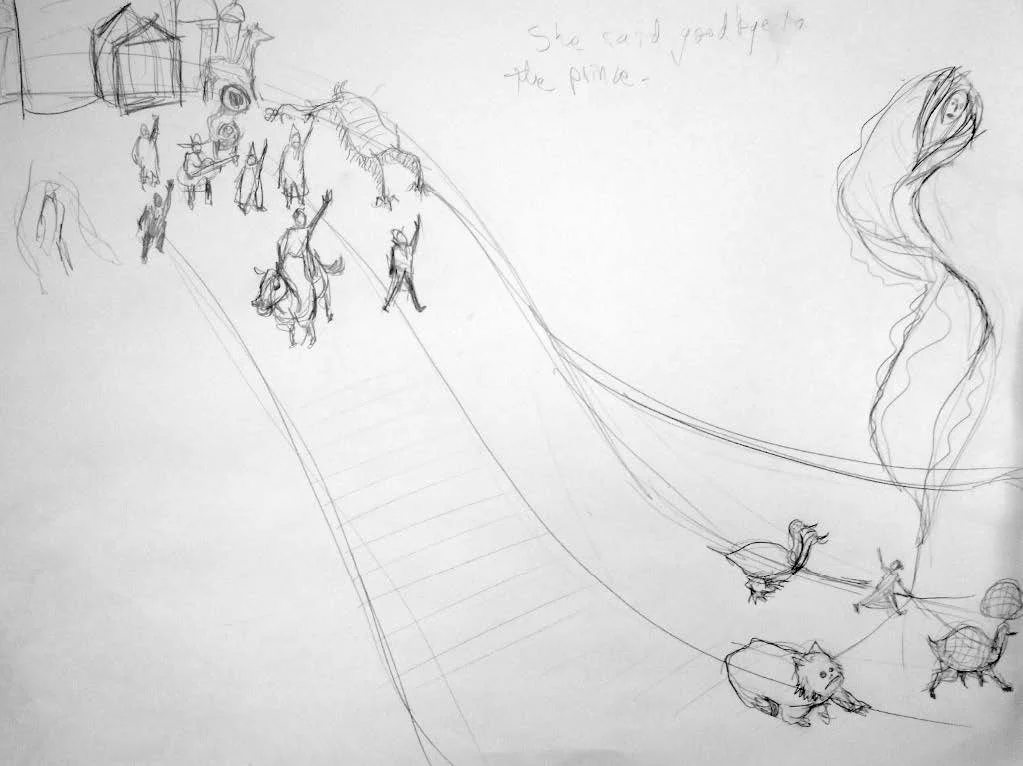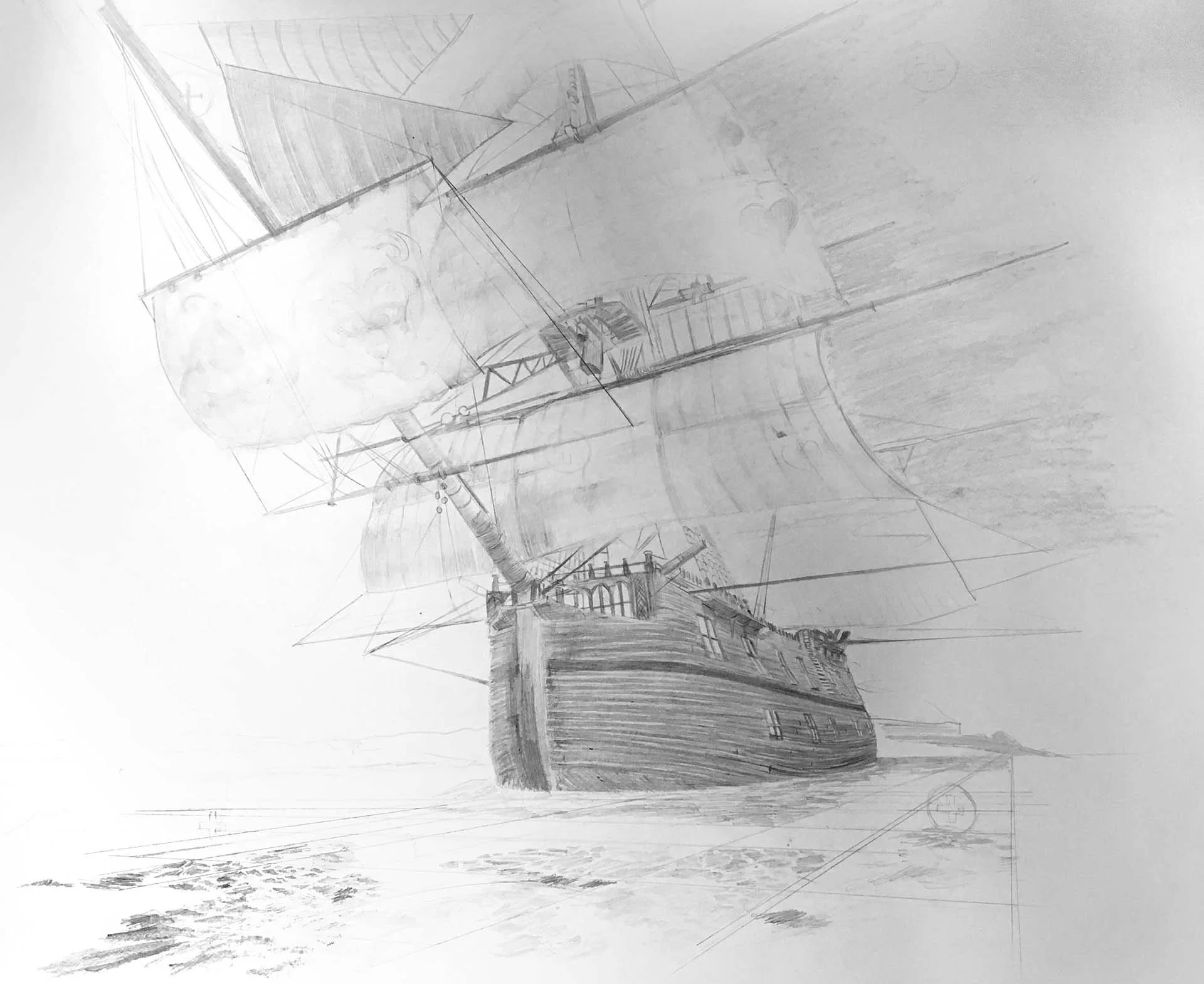
Soup Story
The story of captain Mira
Background:
I co-wrote this story with my ex Michelle some time ago. We envisioned this to be a children's book about a relationship that doesn’t resolve as neatly as the relationships in most fairy tales. The main character's passion drives her away from a relationship, and no one is really at fault. Writing this story started the unraveling of my relationship with Michelle and we broke up the following year. This context is part of the project.
Synopsis:
This story follows a sea captain and naturalist named Mira. Captain Mira leads a crew of scientists to learn about life in the ocean and land. Mira has a magical ability: she makes the tastiest soup imaginable while she's dreaming. The crew sells the soup while they're docked to fund their expeditions. One morning while selling the soup the land-locked Prince Zeb sends a messenger to ask for Mira's hand in marriage; he's smitten with her soup. After considering his offer, Mira discovers that she only dreams while she's on her ship at sea and therefore can't make the soup on land. Prince Zeb tries to spark Mira's imagination with the wonders of the land, bringing circus acts, magicians, and animals. Unfortunately nothing seems to work. After weeks of this, Mira's mother reveals that her supernatural soup is based on a recipe passed down through generations. She can learn how to make it from recipe books while she's awake if she wants to stay with Zeb on land. Mira decides that she would rather get her dreams back and return to sea. She lets Zeb know her decision and packs up her things. The crew rejoices when Mira decides to rejoin them. In the final panel maybe you can see Prince Zeb setting sail after Mira.
App:
Creating this work inspired me to write an application that addresses the way spoken word differs from written words. The app presents poetry and narrative as text against a white screen. As the reader speaks the words out loud, the application produces imagery and animation. The animation will take on a variety of forms depending on the reader's pitch and volume. Furthermore, the reader may improvise rhyming words as they speak. The reader’s improvisations will be reflected in the imagery revealed. The core concept is to explore the intimate connections between the experience of speaking, modulating and comprehension.
In-progress illustrations
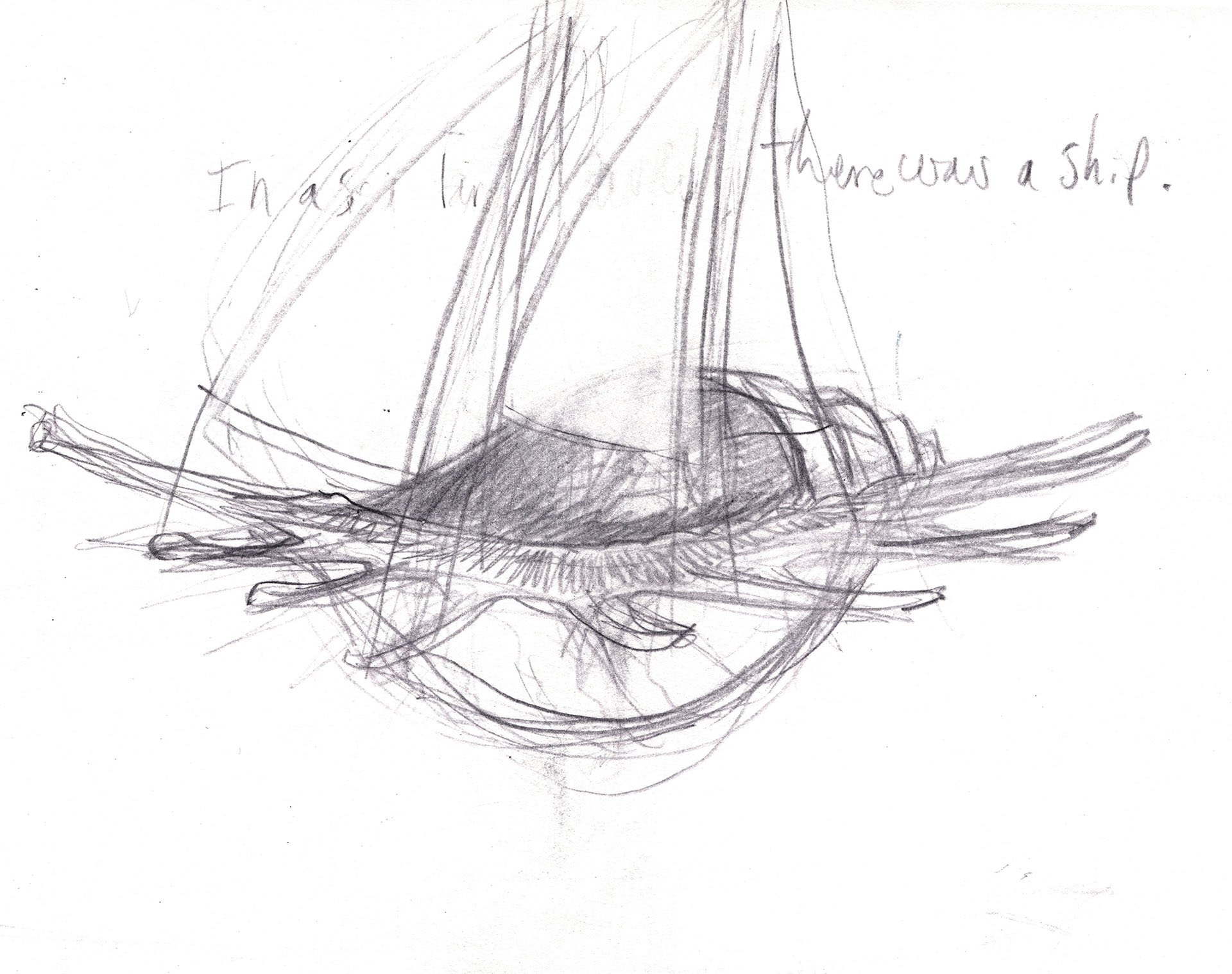
Ship alternate design
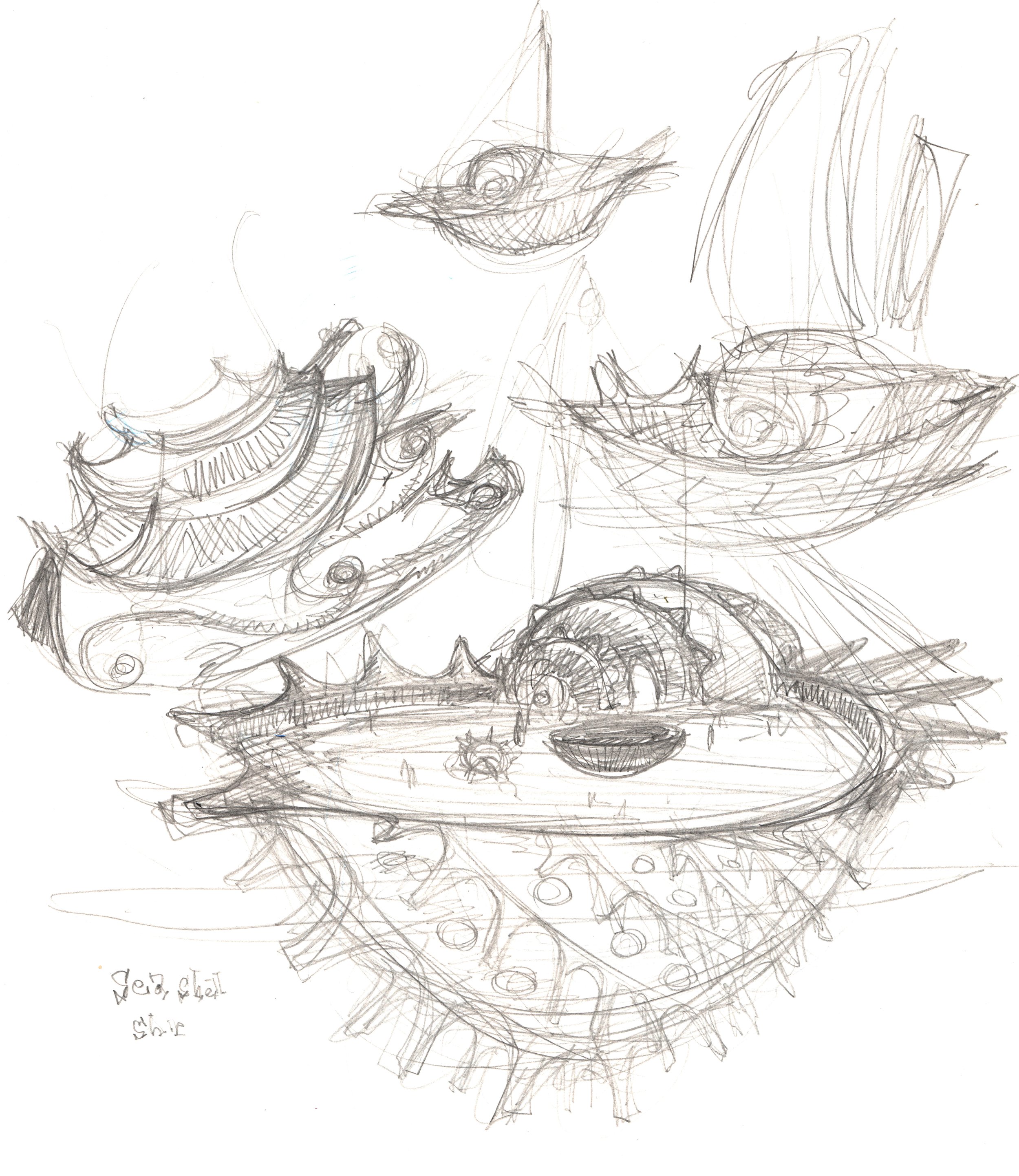
Ship alternate design
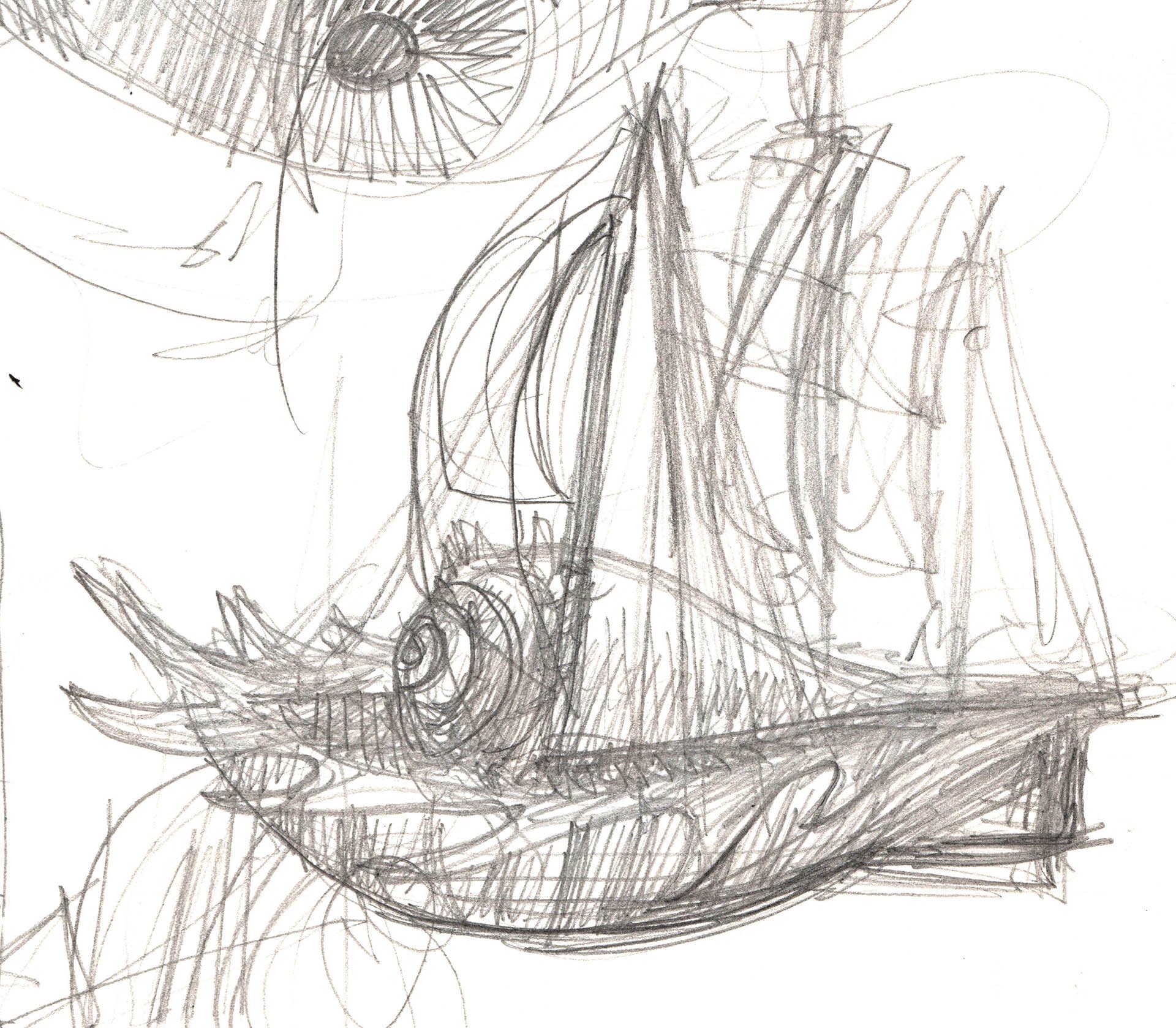
Ship alternate design
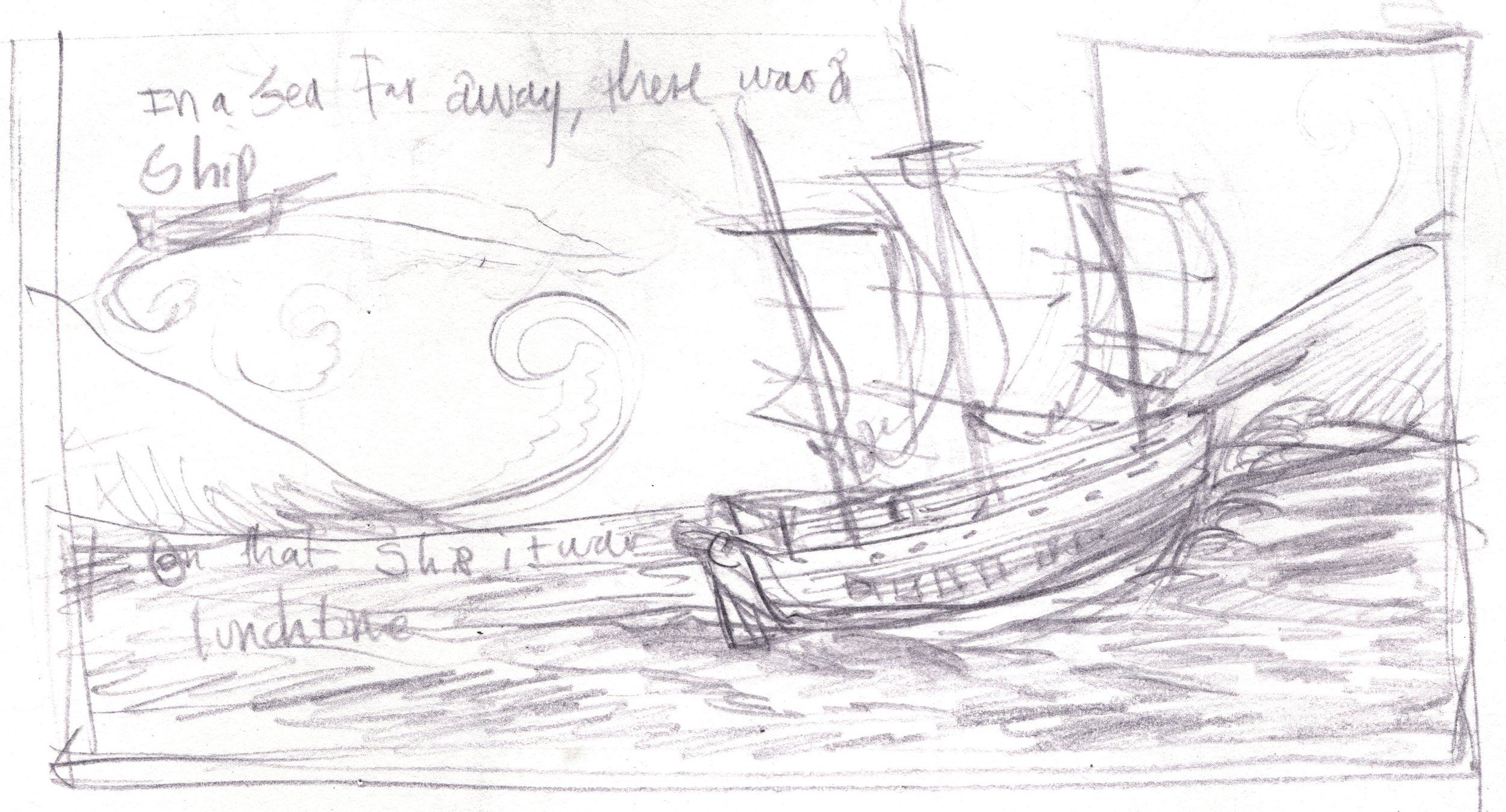
Page 1 alternate composition
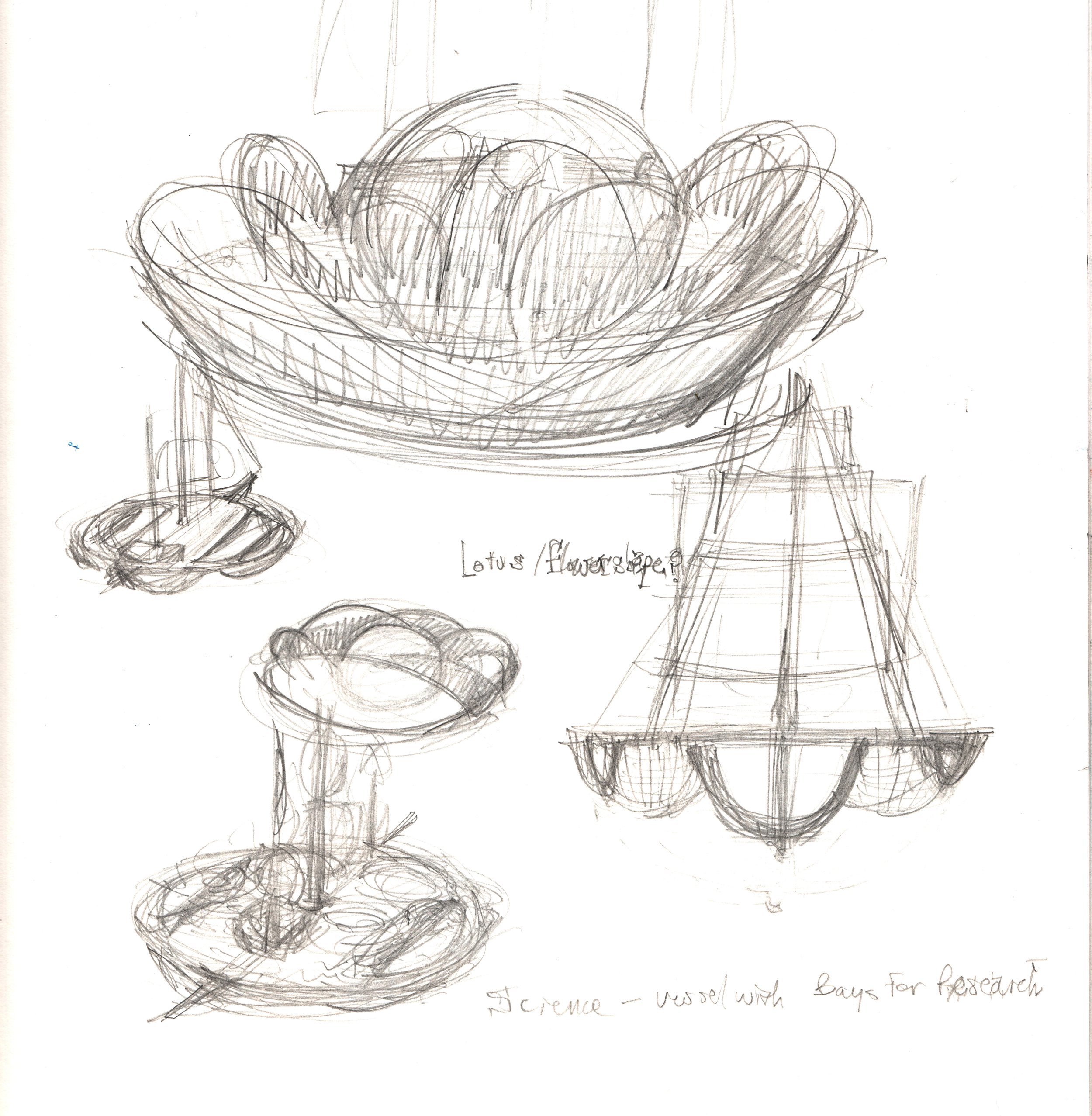
Ship alternate design
Page 1 (Above):
On a sea far away there was a ship. And on that ship it was lunchtime.
Page 1A (above):
We started this story on sheets of sketch paper sitting with our backs against a box spring mattress in a small bedroom.
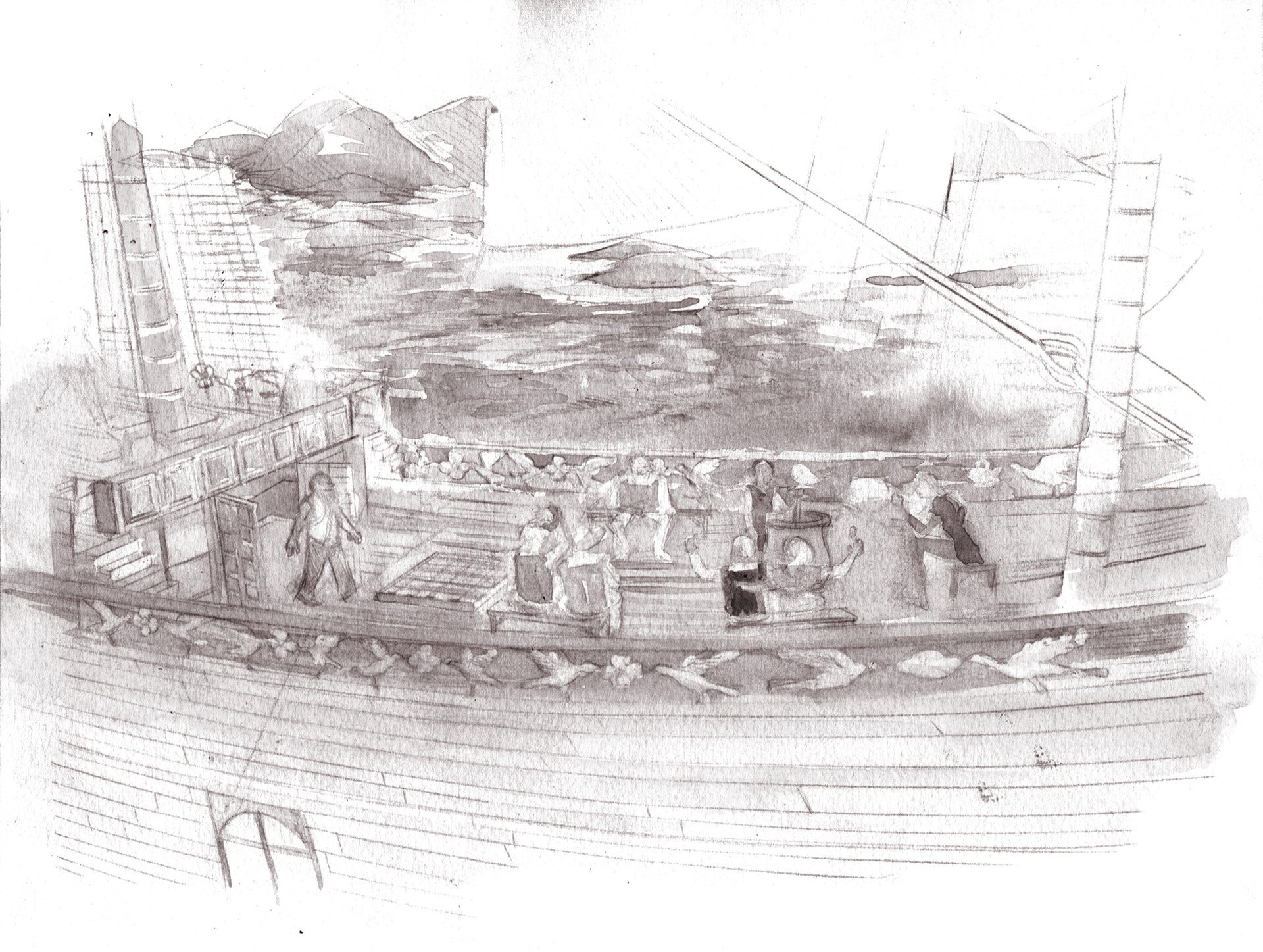
Page 2 Alternate Image
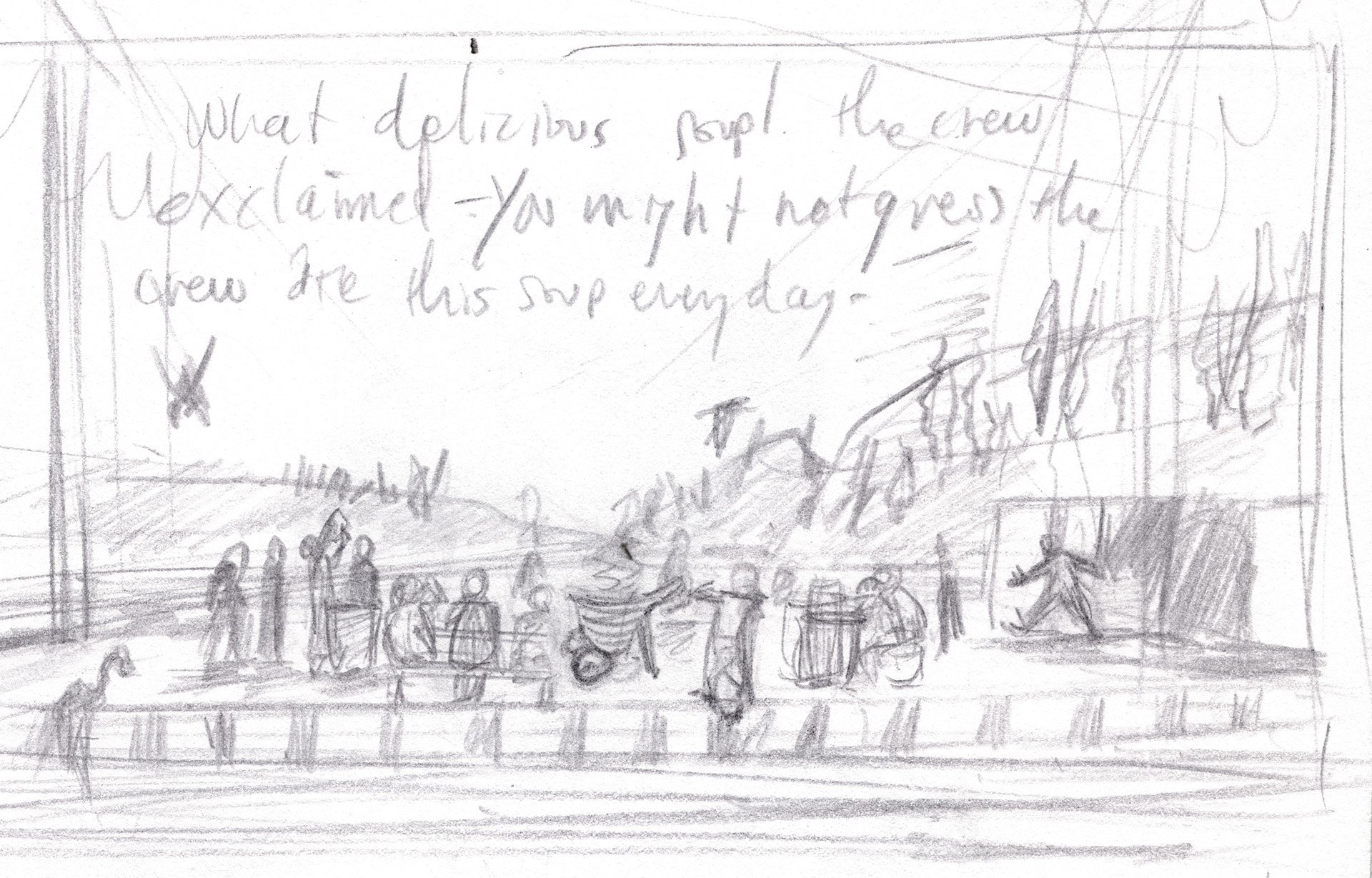
Page 2 Alternate Image
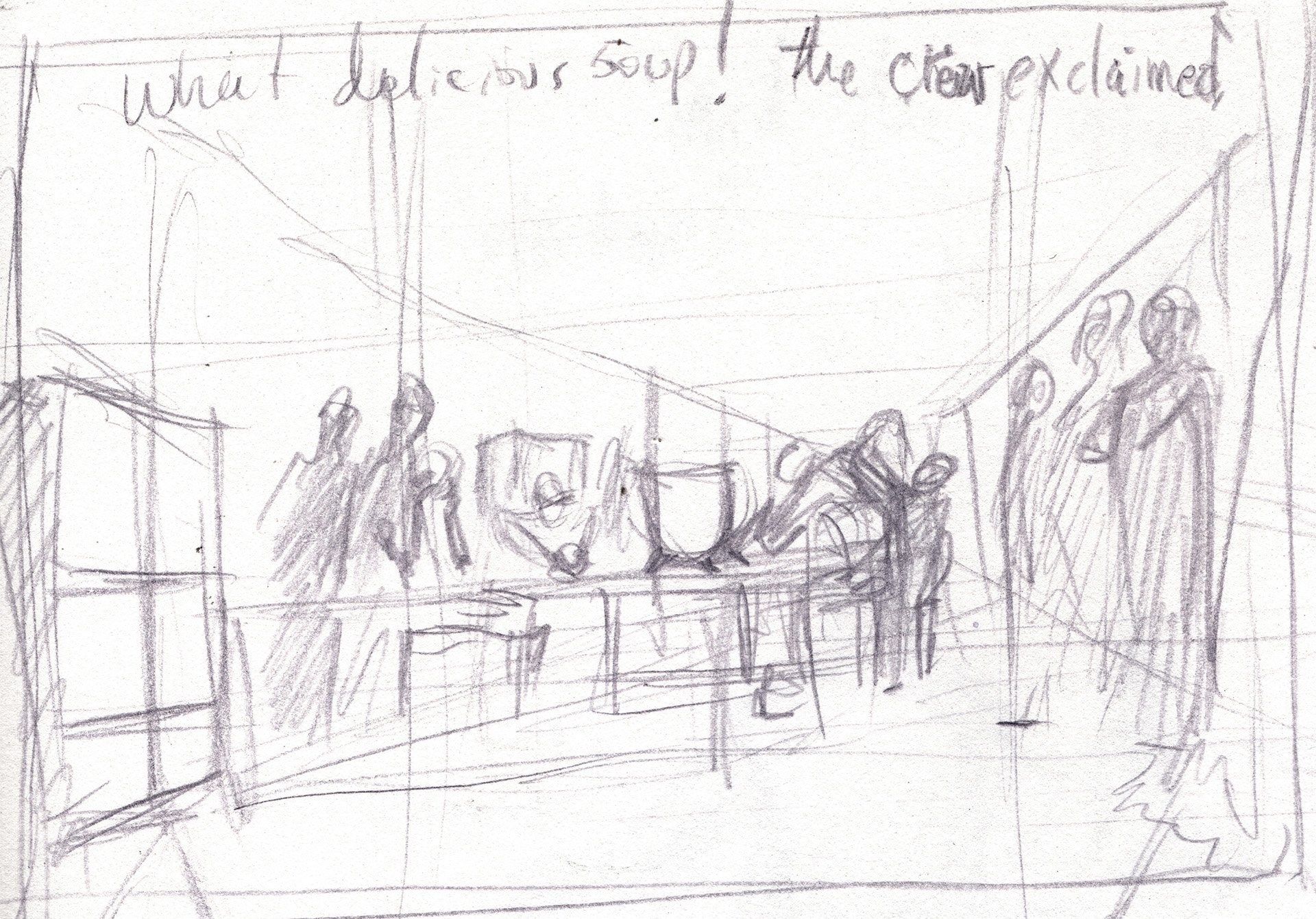
Page 2 Alternate Image
Page 2 (Above):
“What delicious soup!” the crew exclaimed. You might not guess the crew ate this soup every day. They would have sipped the soup all afternoon, but there was lots of work to do.
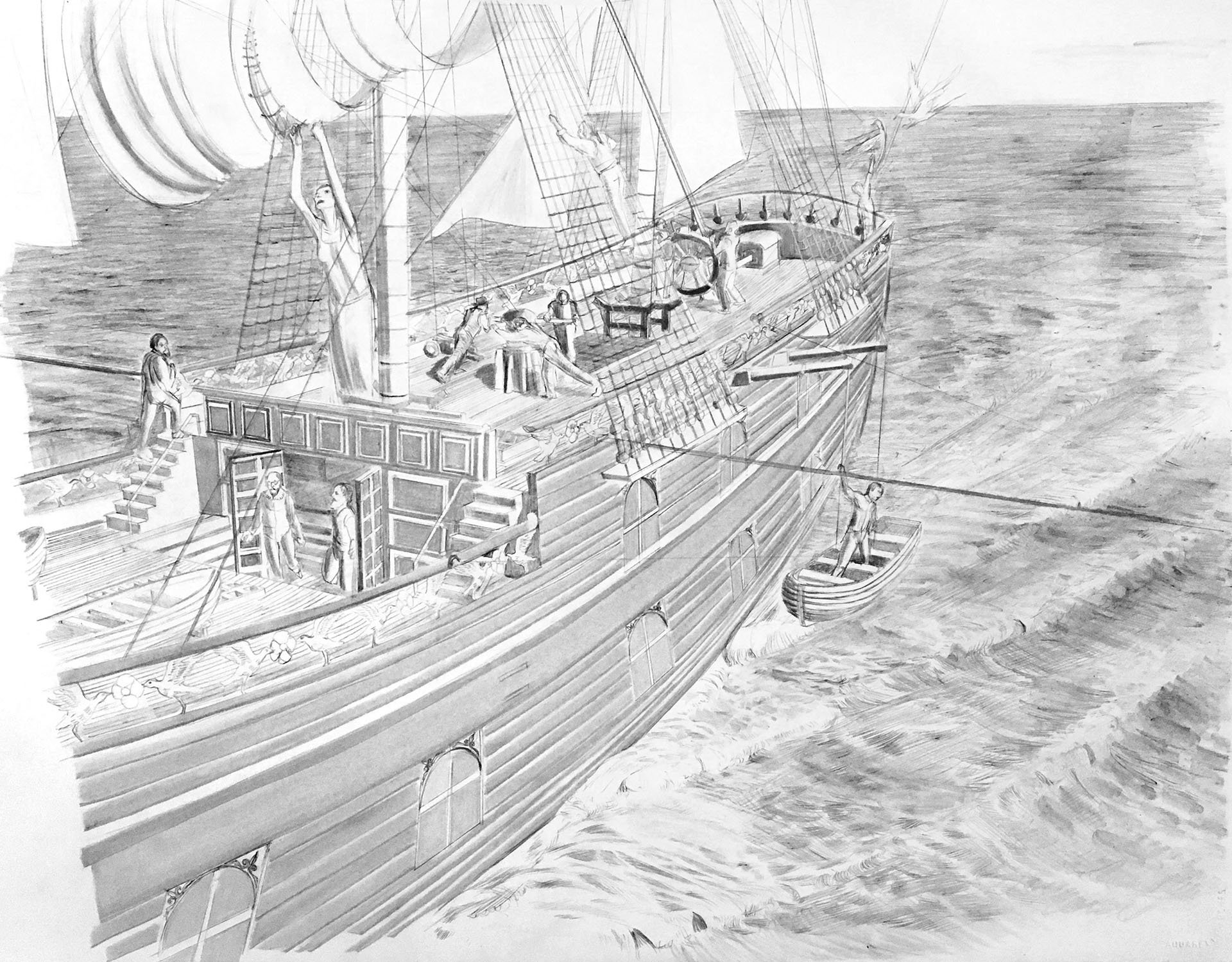
Page 3 alternate composition
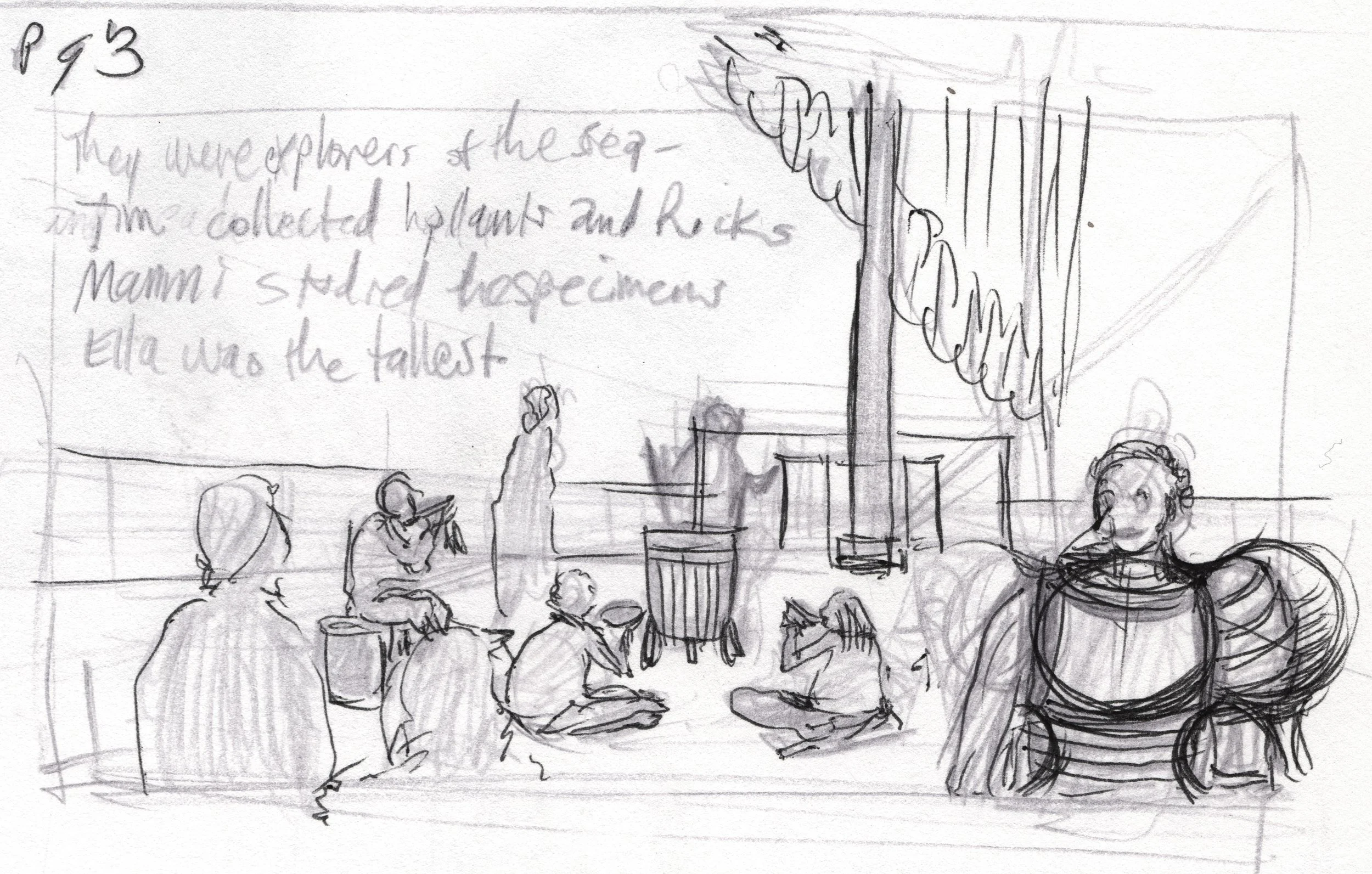
Page 3 alternate composition
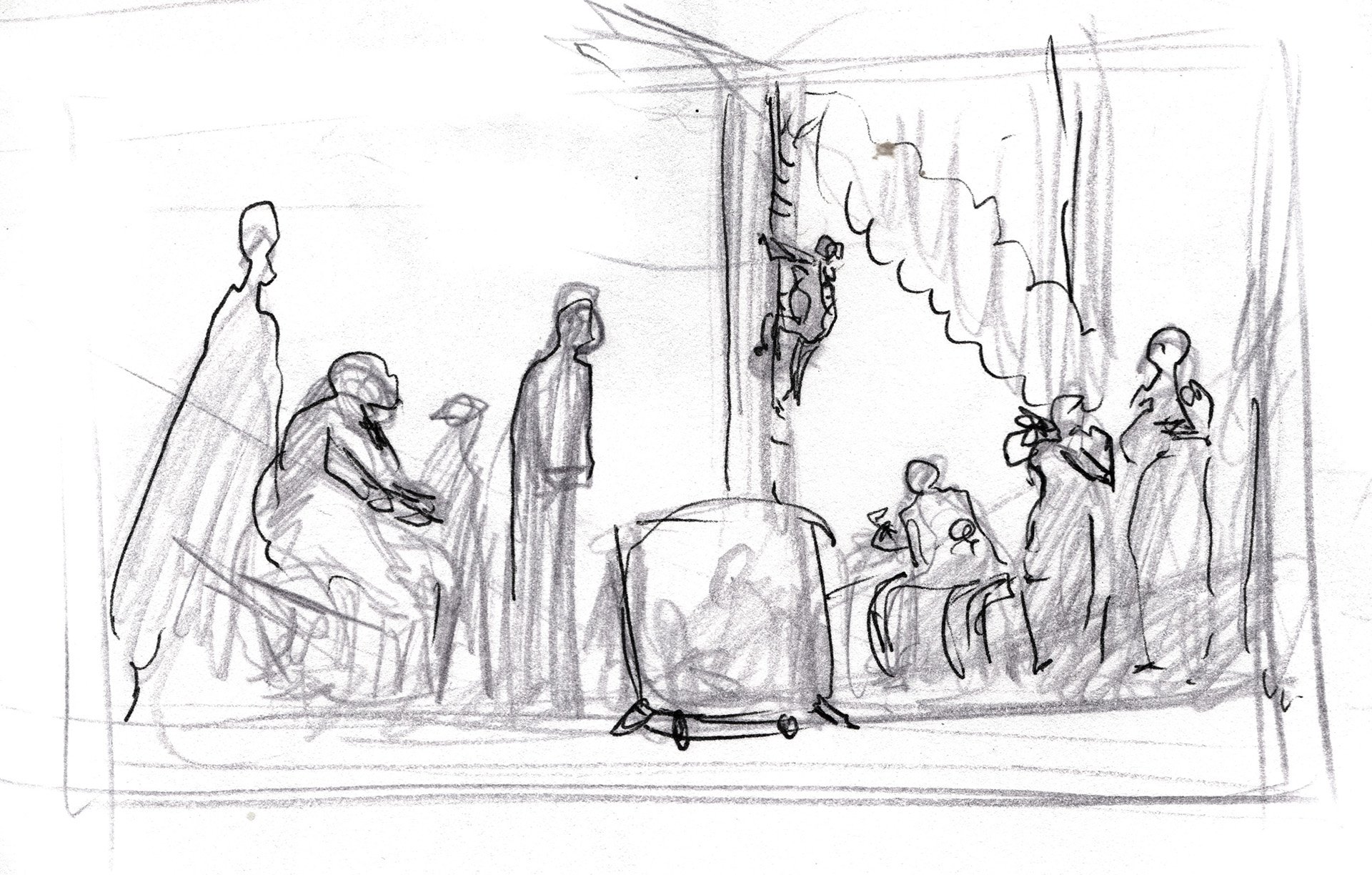
Page 3 alternate composition
Page 3 (Above):
They were explorers of the sea who lived to make the unknown known. Each one had a different skill and so each one had a different job. Jim collected plants and rocks from the depths of the sea floor. Manni studied the specimens beneath a microscope. Ella was the tallest woman that any kingdom had ever known. She could mend their giant sail throughout the worst of storms.
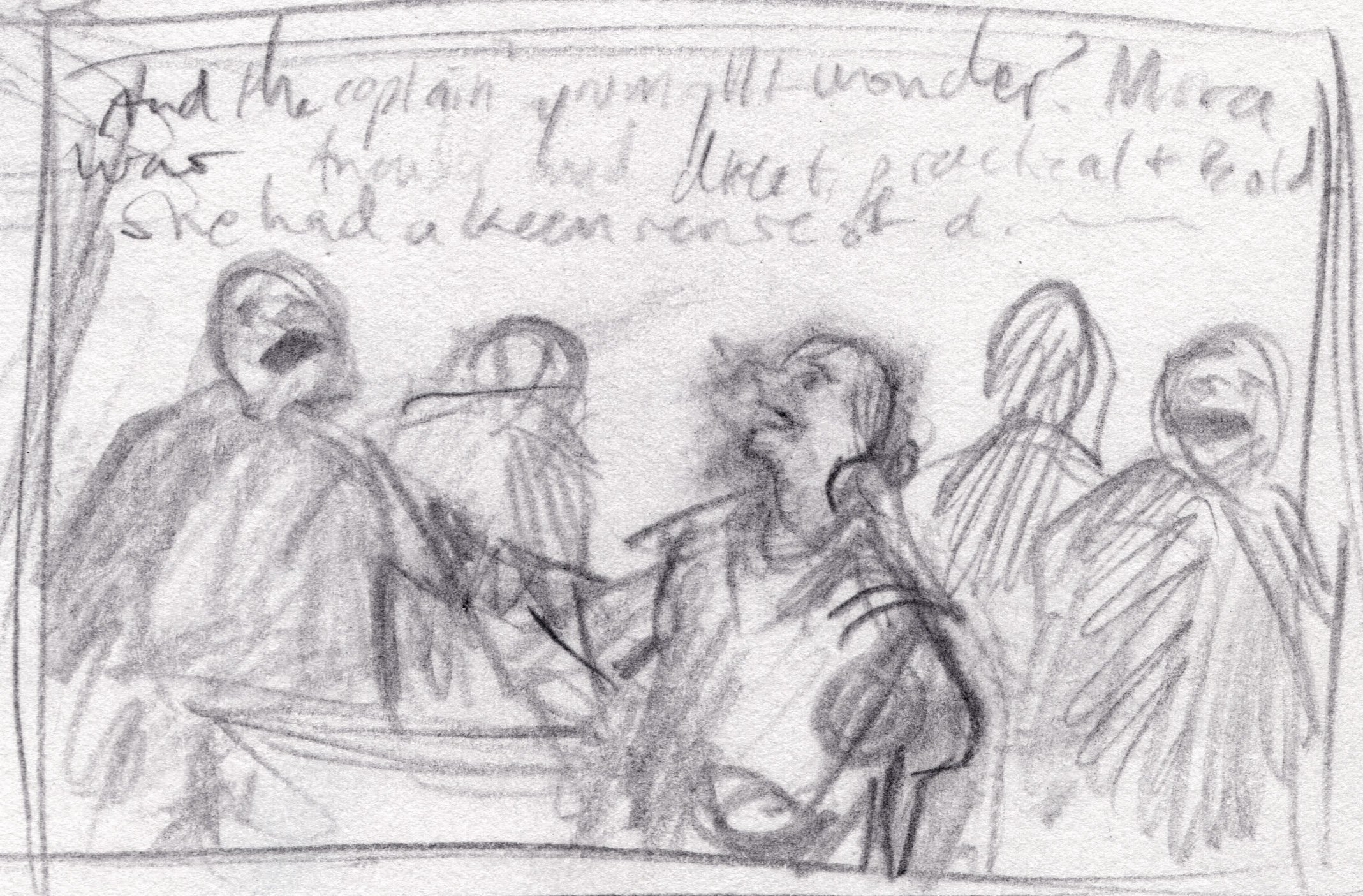
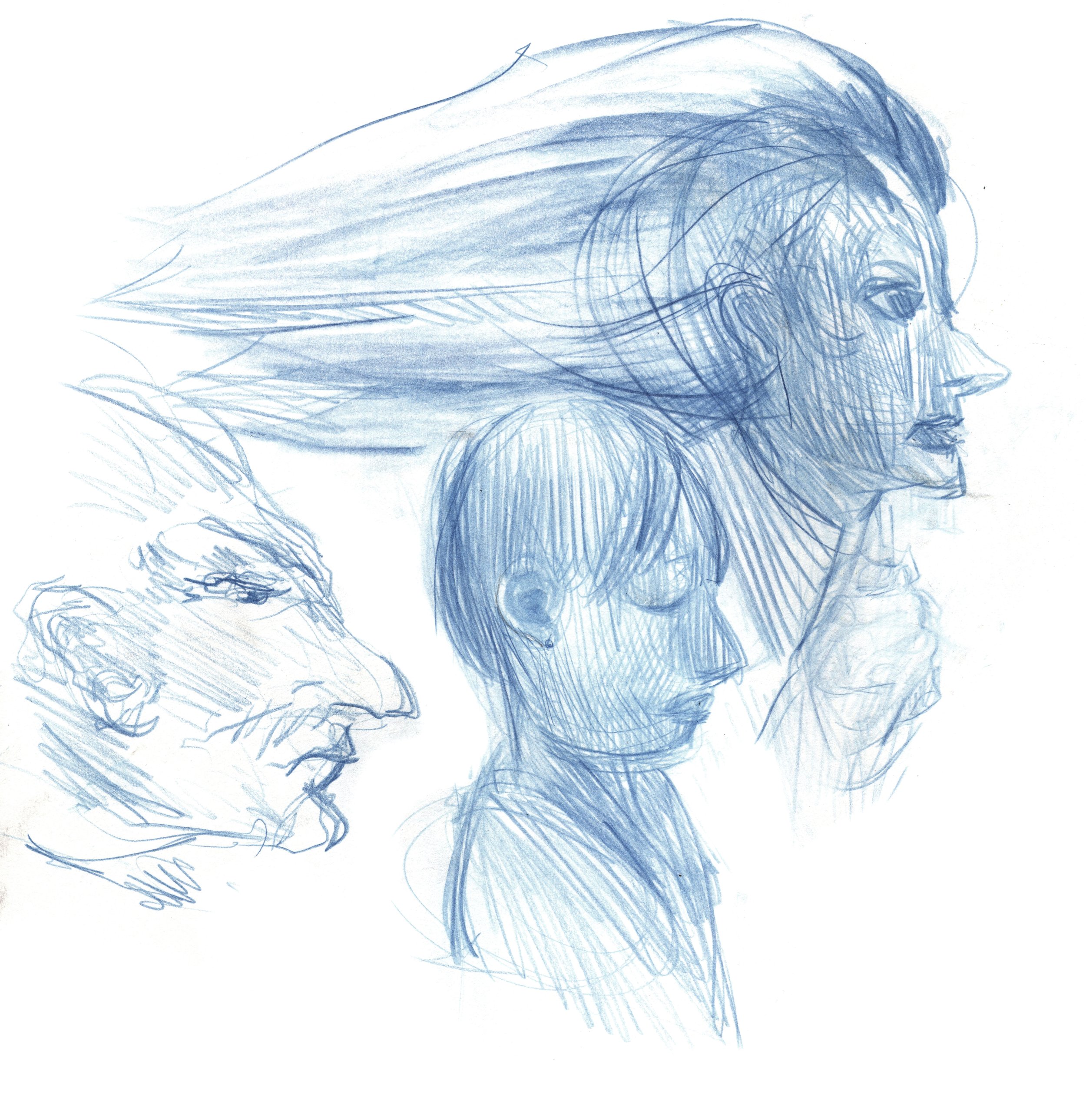
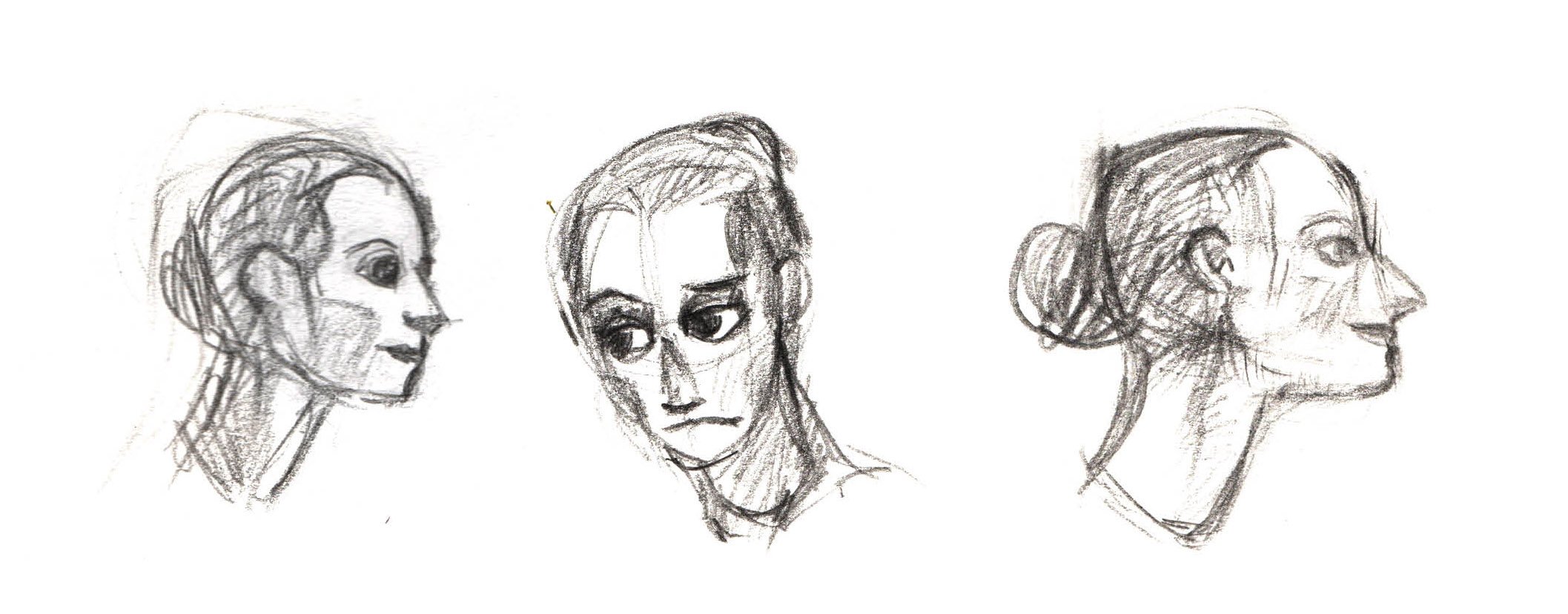
Page 4 (above):
And the captain, you might wonder? Mira was quiet and direct, practical and bold. She had a keen sense of direction. She knew exactly where to go.
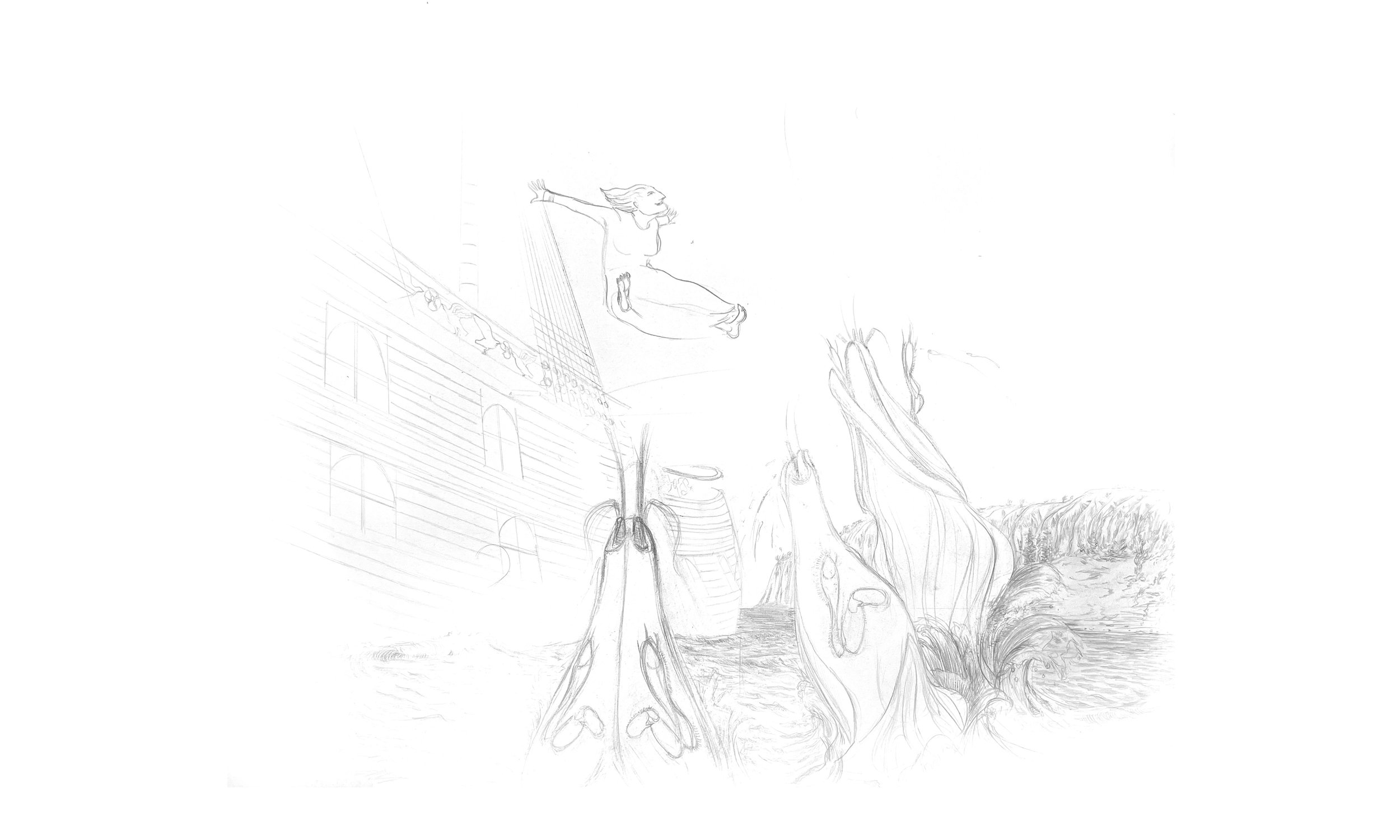
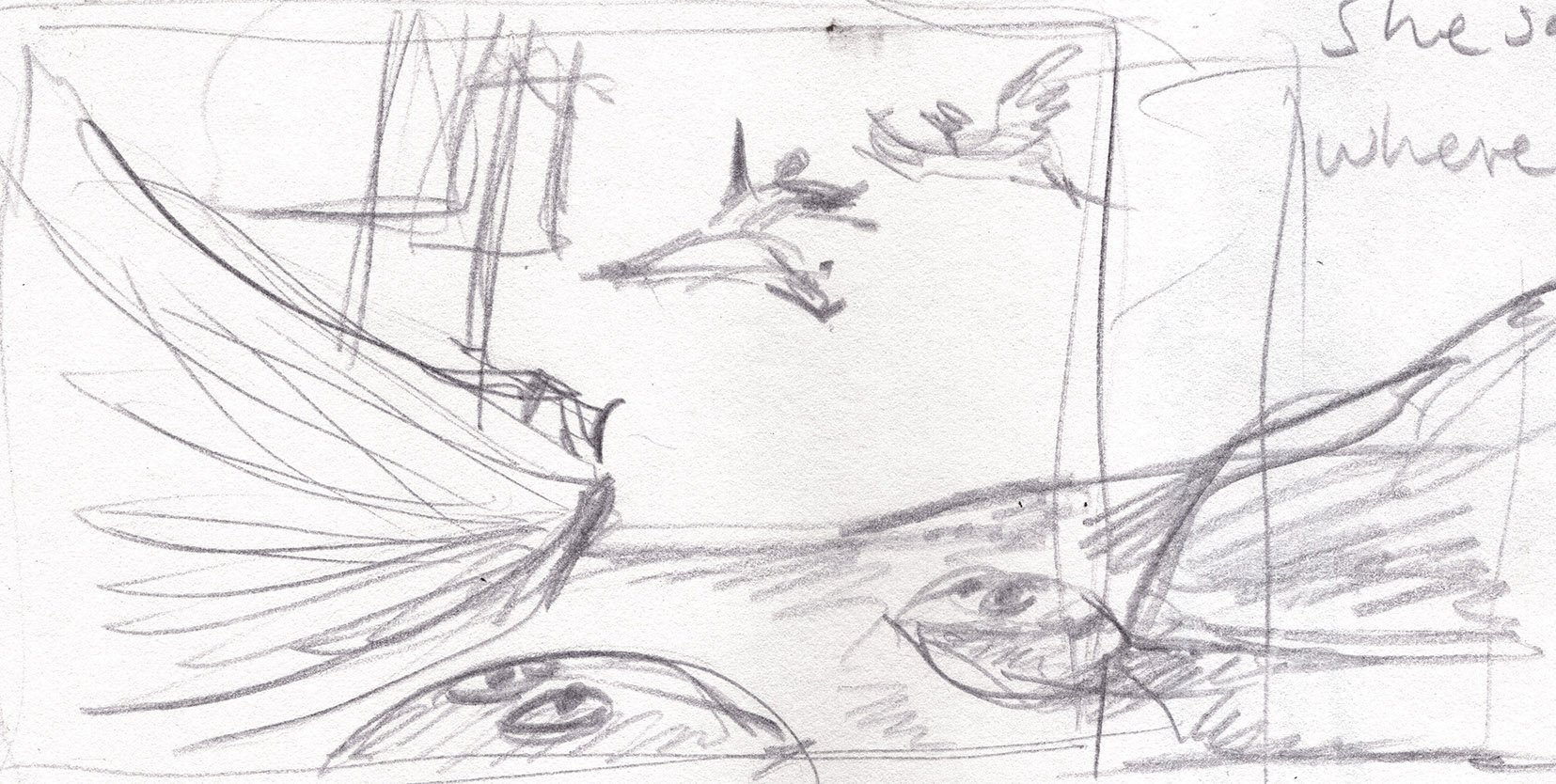
Page 5 (above):
She sailed them to exotic islands where the strangest creatures lived. When their ship arrived to these new places, you know the first thing Captain Mira did? She jumped feet first in the water as sea creatures swam up to the ship.
Page 6 (above):
Every night, the crew became quite tired from exploring all the day. They did not want to go to sleep but their bodies could not stay awake.
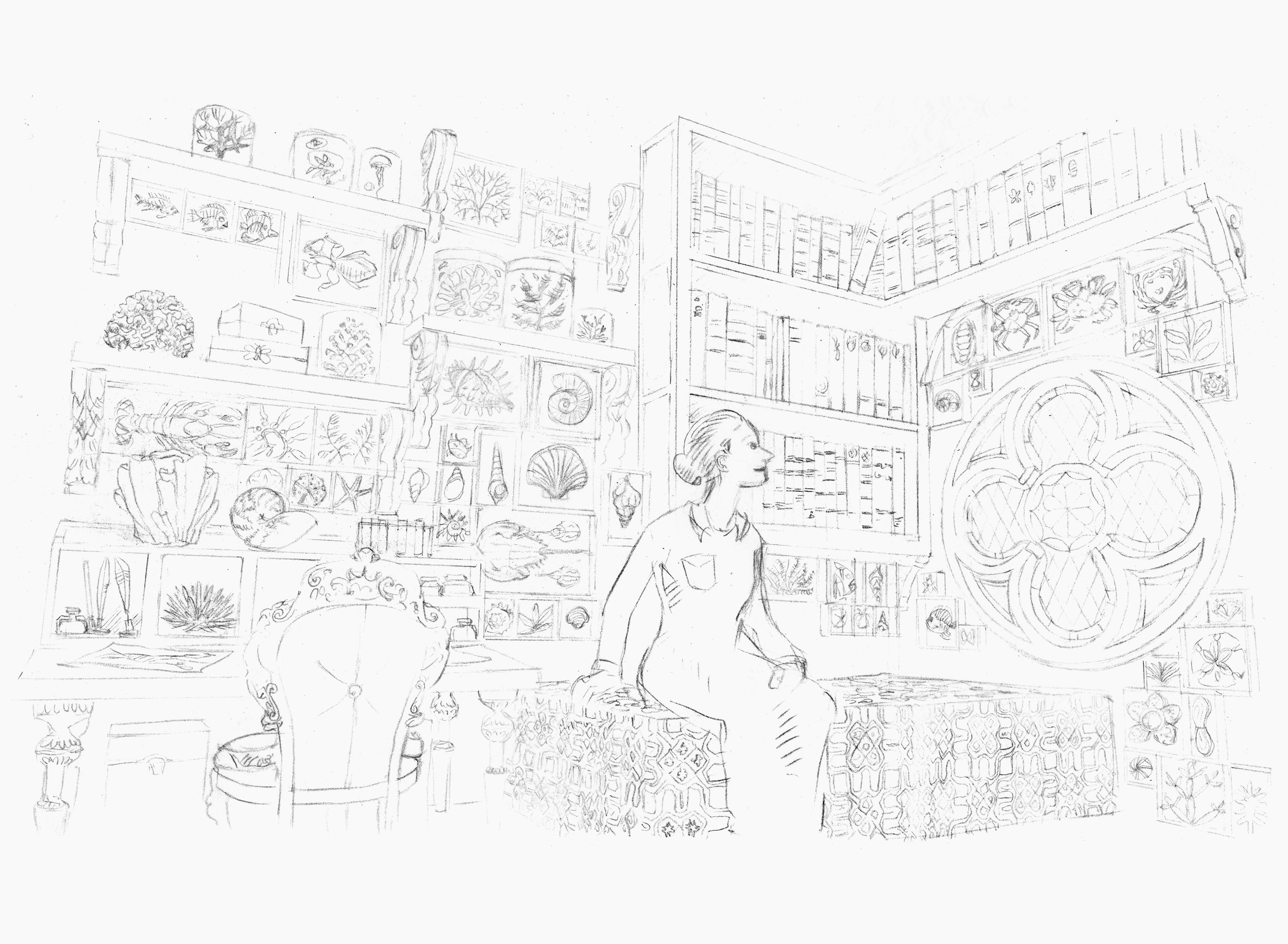
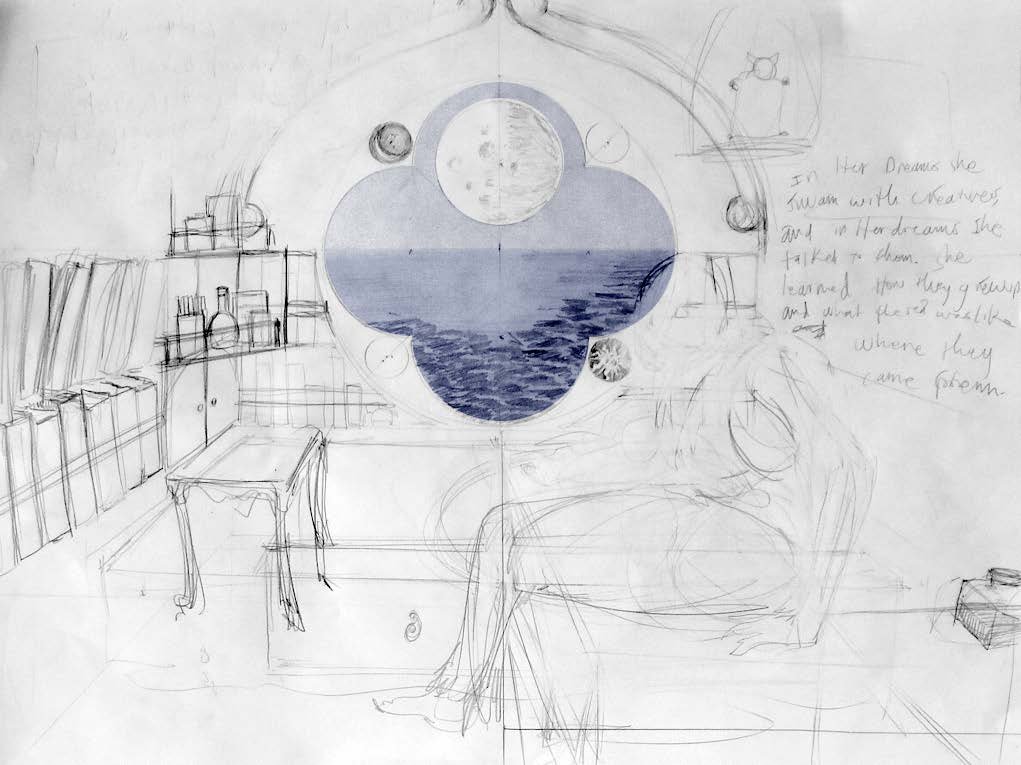
Page 7 (above):
Mira too got tired. She looked forward to her sleep. Although she enjoyed daytime exploring, she did exploring in her dreams.
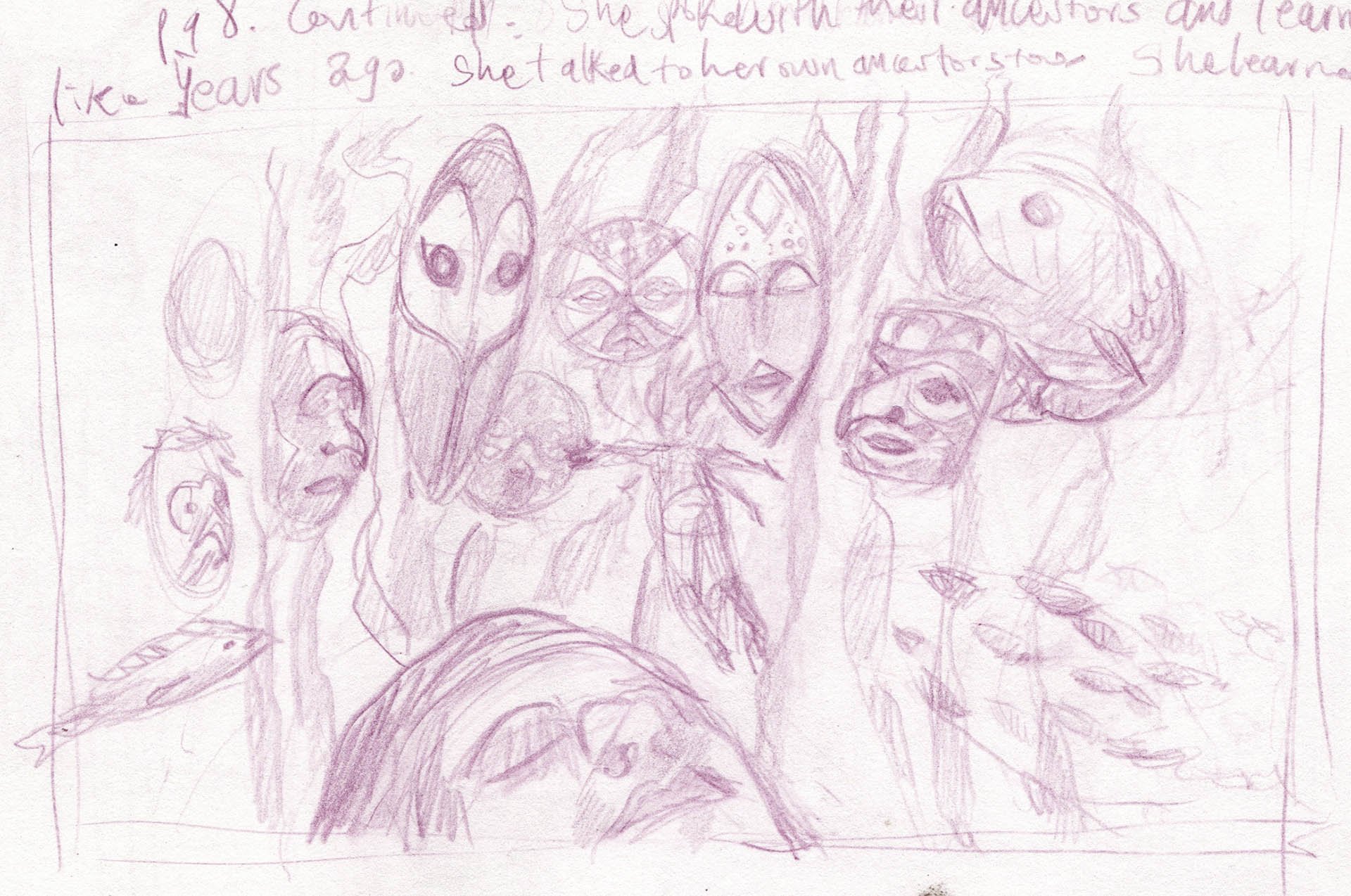
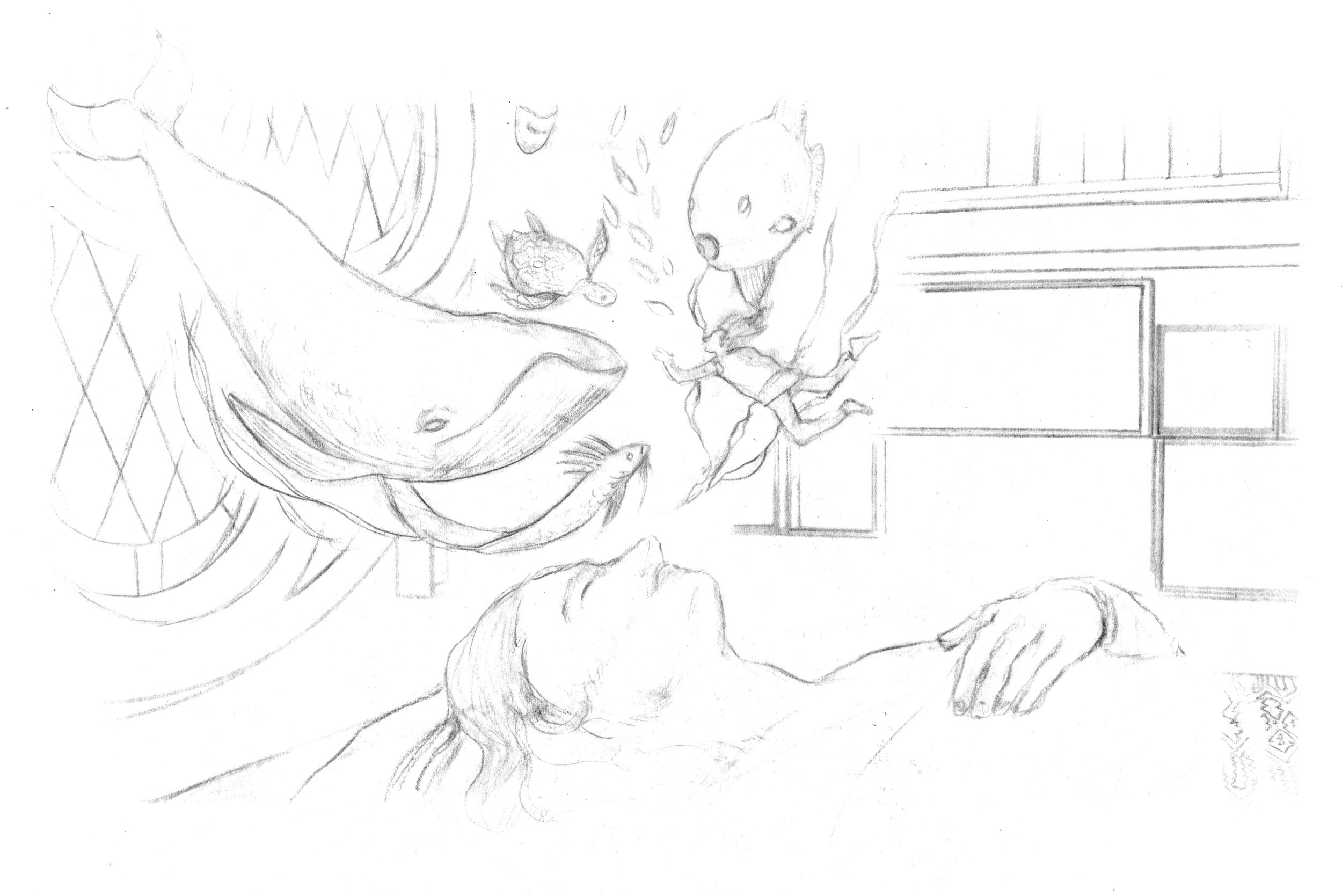
Page 8 (above):
In dreams she talked with sea creatures. They told her stories of the underwater world. She spoke with their ancestors and learned what the sea was like years ago. She talked to her own ancestors too. She learned where she herself came from. Her ancestors loved cooking, and so in dreams they encouraged her to cook.
Page 9 (above):
Every night in fact, Mira rose up from her bed. Still sleeping she cooked the ancient recipes that her mother’s mother’s mother knew. Her ancient granny even gave her ancient ingredients to use.
Page 10 (above):
All while she slept the captain made this most delicious soup. She couldn’t tell you how she made it, because she did not know. She was just a dreamy sous.* *A sous chef is the second in command in the kitchen or a chef’s assistant. (noun)
Page 11 (above):
Each morning the captain awoke in her room. She was not sure what was real from her dreams, but it was certain that there was really soup. So much soup, in fact, that once a week they went to port to exchange soup for supplies that they needed on their trip.

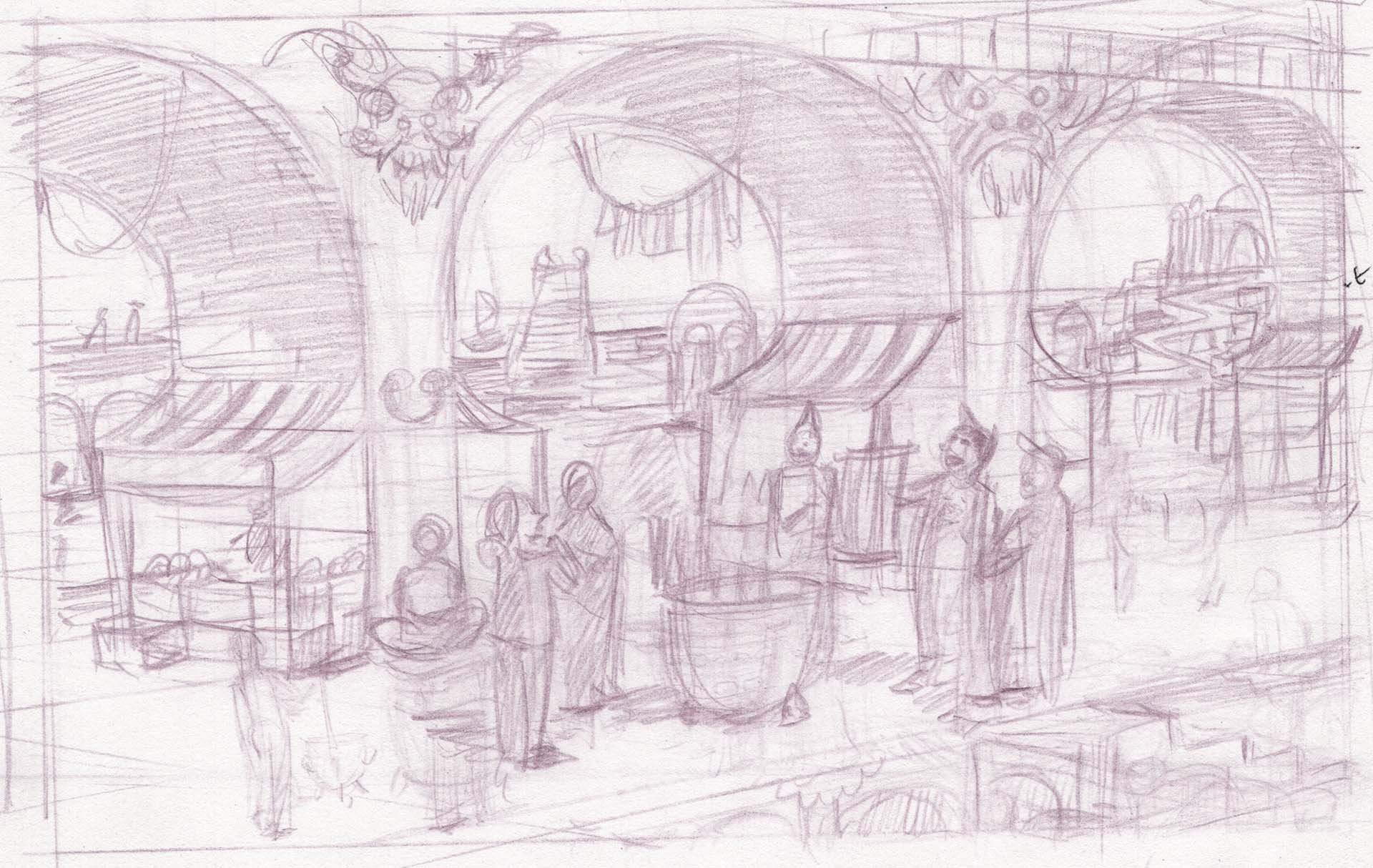
Page 12 (above):
One morning while at port, a messenger from the royal court unrolled a scroll to read. Between slurps of soup, he said “To the captain of this vessel; to the cook of this fine soup, the Prince Aurangzeb requests that you come with me at once to the castle.”
The captain hesitated. She had not left her ship in years. Land felt heavy to her and hard to move around. But she wondered what this royal business was about. So she told her crew to carry on without her for now..
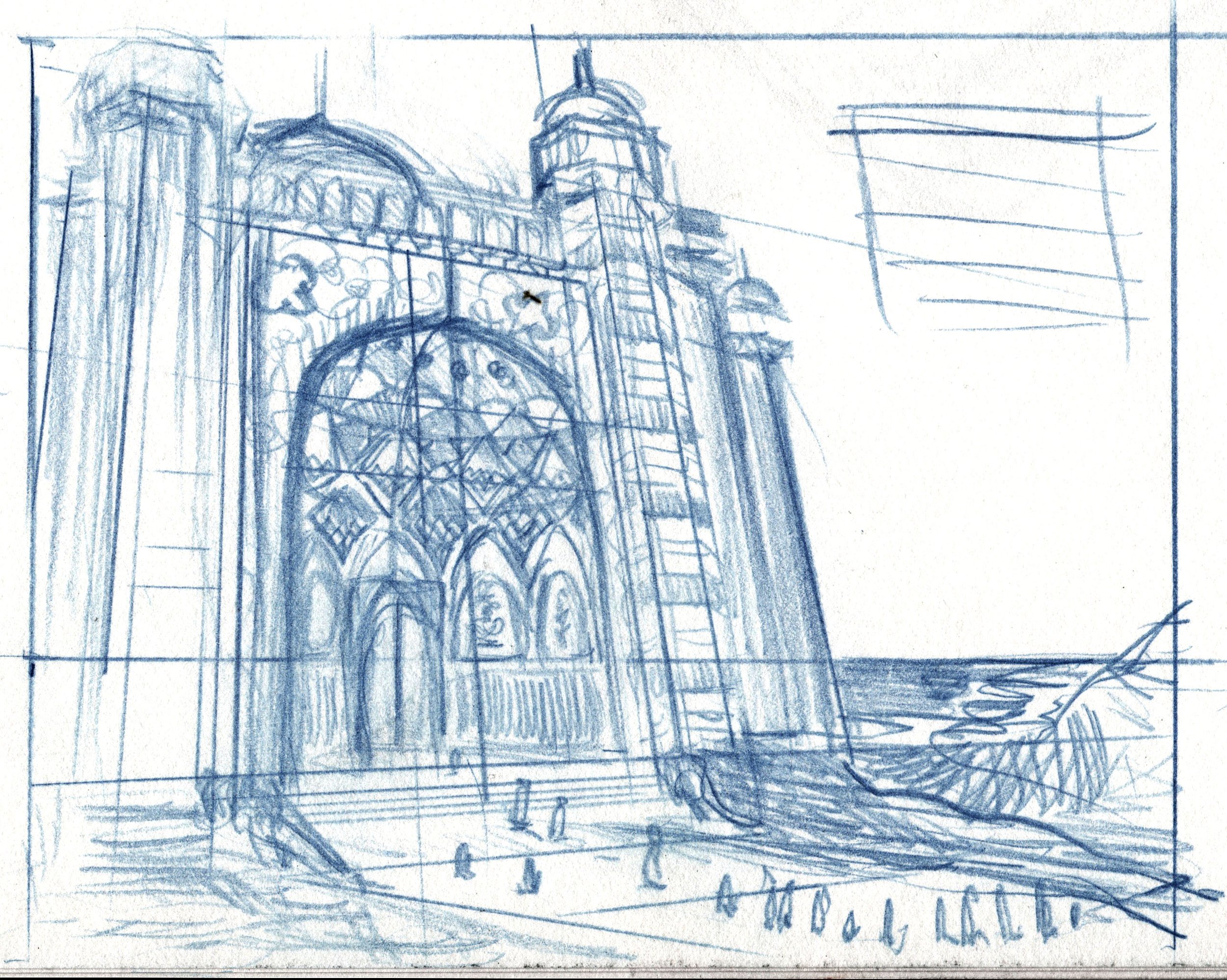
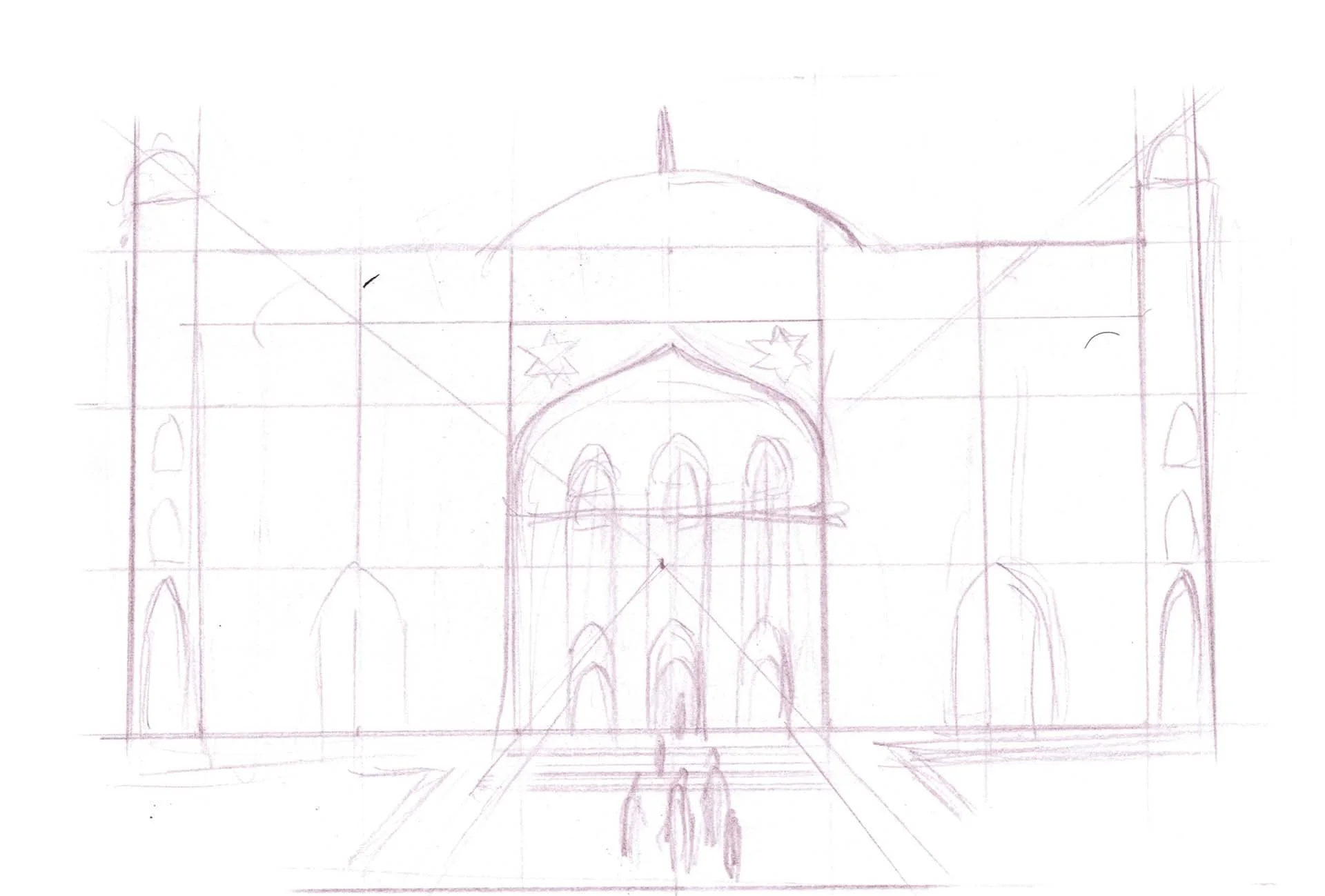
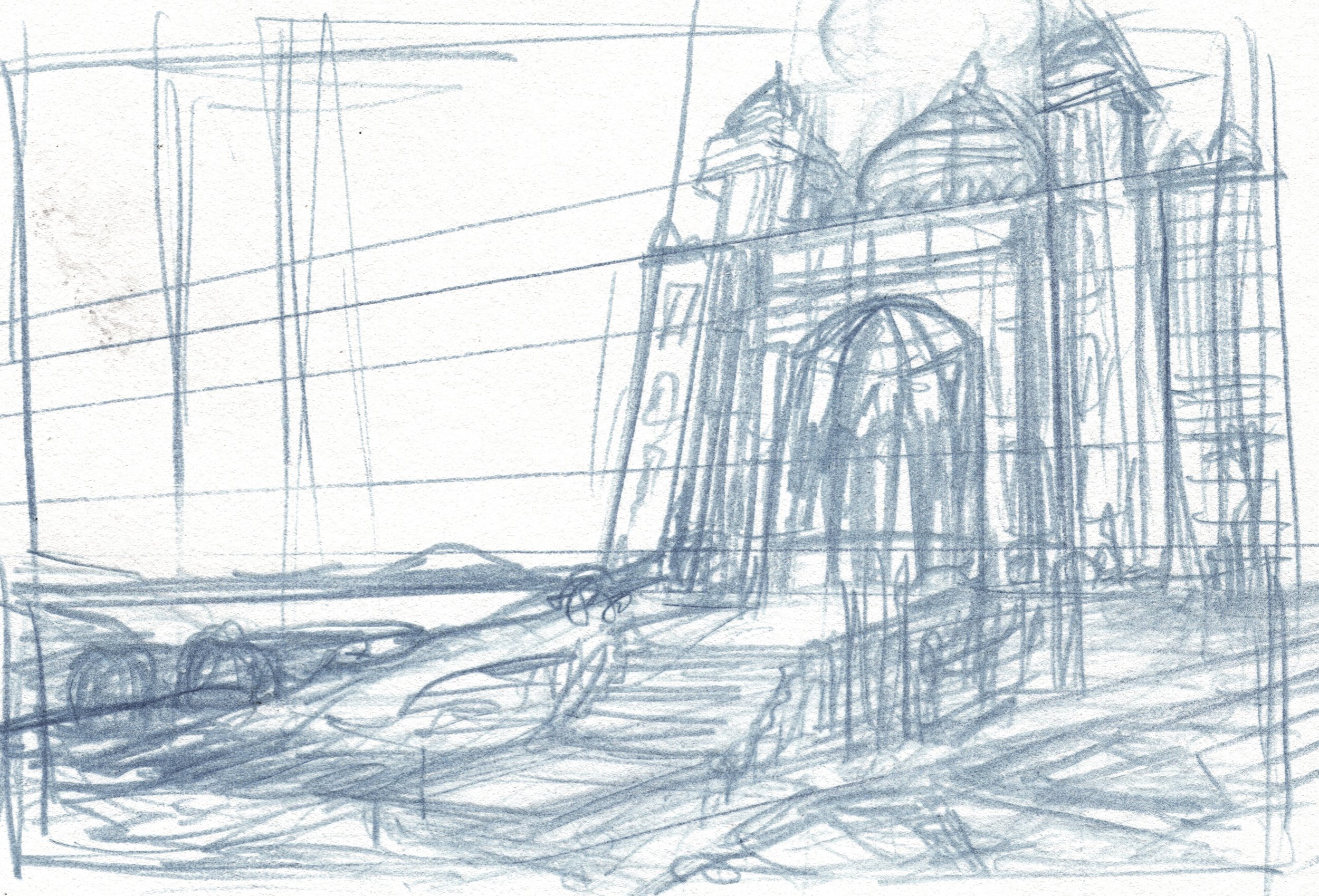
Page 13 (above):
She followed the messenger through the seaside town. They passed the last village house and then began hiking up a rocky trail. All day long they walked higher and higher through the woods. Until at last, at sunset, they arrived at the royal gates.
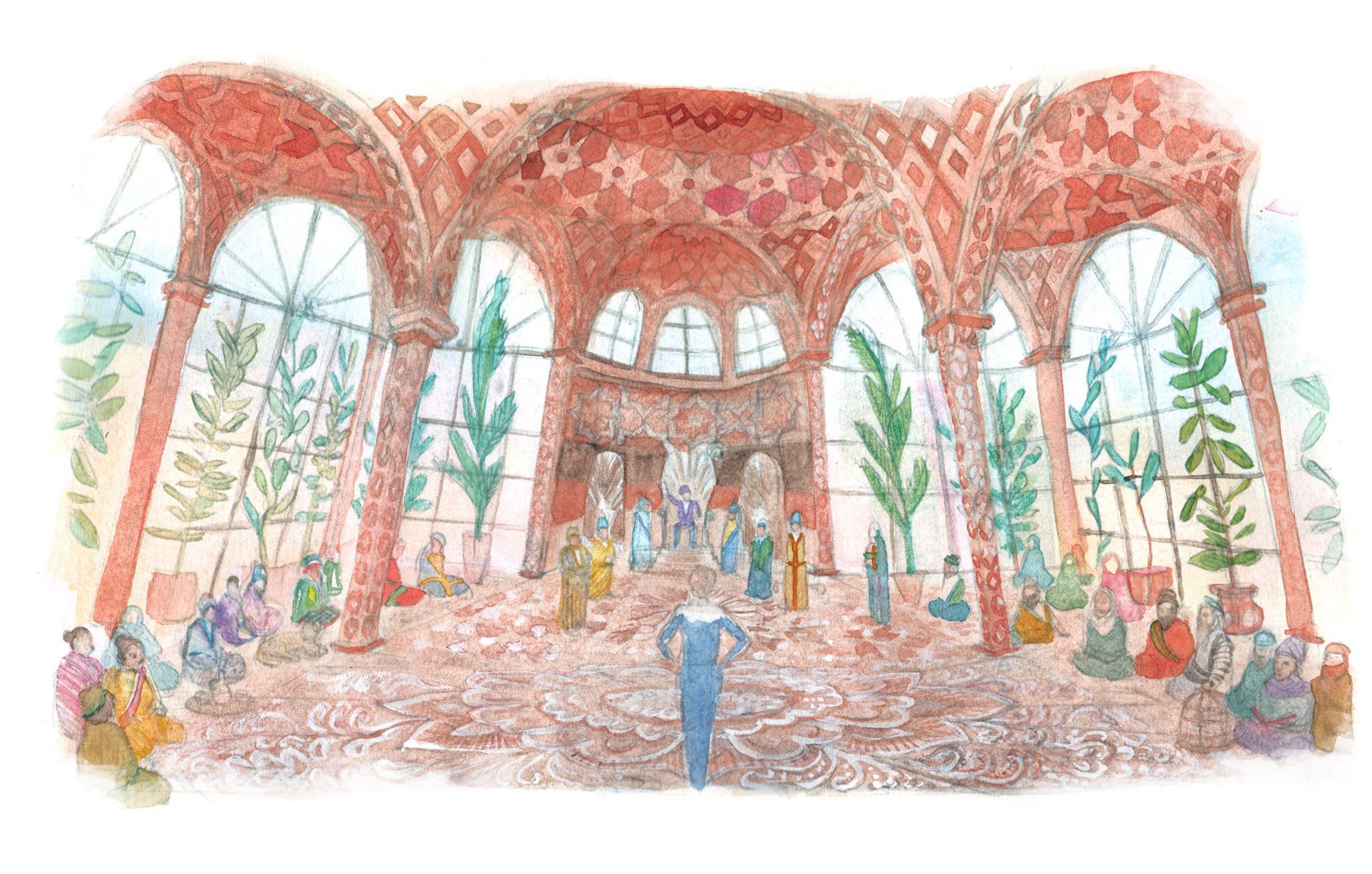
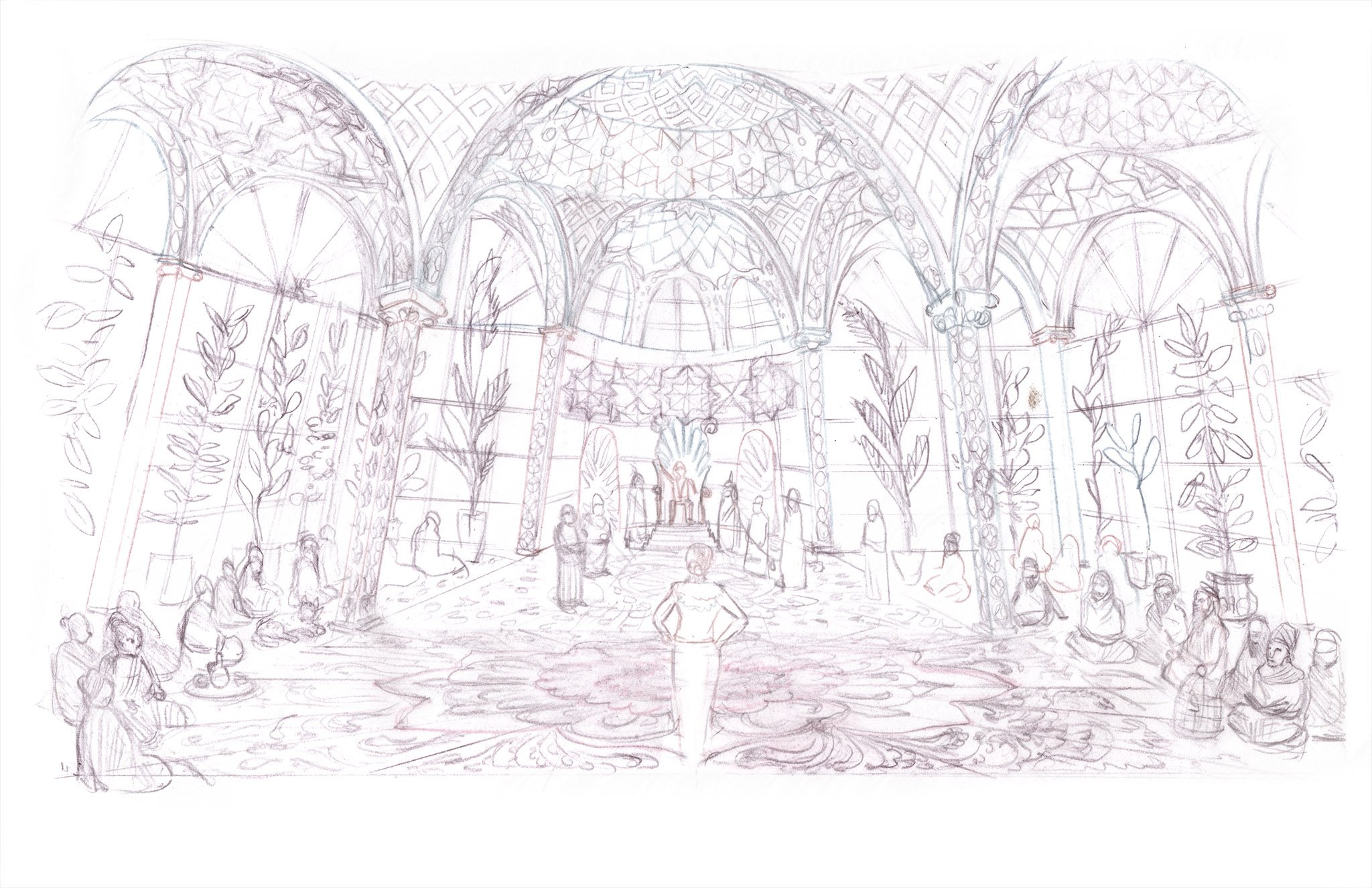
Page 14 (above):
In the center of the city the palace stood, shining like the moon.
Once inside the captain met the handsome brown-eyed Prince Aurangzeb. He smiled at her and then he shouted “You make the best soup, I have heard! I have tried it! I would like you to be my royal wife!” His voiced echoed down the giant hall.
Page 15 (above):
The prince took a breath and tried to soften his commanding tone. “You have explored the sea for many years, you have discovered much about our world. But if you join me here on land, your soup will bring me so much joy. In return, I will give you everything you could ever want.” Now this was a considerable offer. “First thing’s first” the captain spoke. “I have not seen my mother Olga in a year. Bring her here, my good prince, and then we shall discuss your proposal.” And so it was set that the very next night Mira would cater a feast. There the royal family and the captain’s kin would taste her famous soup, and talk about the marriage.
Page 16 (above):
That night the captain slept in a royal suite. Her pillows were filled with feathers and there were warm kittens at her feet. Through the night she slept, and she slept, and she slept, but she did not dream.
Page 17 (above):
The next morning she awoke, rested from the night. She knew she had dreamed nothing and had not pinched a single spice. But the captain was not one to turn down an experiment, so for the first time in her life she cooked a soup, wide awake.
Page 18 (above):
The next day the royal guests gathered in the dining hall. The captain saw her mother sitting in the farthest corner. As always, her mother had a coarsely grown, hard-to-miss, enormous head of hair. One thousand spoons now waited while the prince’s spoon first took a dip. Prince Aurangzeb brought a spoonful of this most awaited soup to his lips. He sipped. Then his nose scrunched up, his eyes squinted closed. “Ew!” he said. No other spoon arose.
Page 19 (above):
“What’s this?” He shouted. Mira shrugged and said “I can’t be sure. But the most likely cause of this nasty soup is lack of dreaming on my part.” She explained to her suitor that she made great soup only in her dreams. And the dreaming she only did when she was discovering new things.
Page 20 (above):
Then the mass of hair from the back of the room became a giant dome. “Good prince” Mira’s mother bowed and spoke: “Forget what you just tasted. The great soup my daughter makes at sea can be made in all kinds of places. First show her the excitement of a life on land that she now faces. Then she will dream up that soup in her sleep!” The prince agreed there were many landlocked wonders in the world. He would bring them here to feed the captain’s curiosity.
Page 21 (above):
The next day the curious creatures arrived. They were paraded through the palace on leashes.
Page 22 (above):
Magicians came with wands and spell books – their magic made nighttime stars appear on the palace ceiling. Inventors from kingdoms near and far came with their inventions. Storytellers stepped forward and told stories of adventure.
Page 23 (above):
The shortest person in the world spun in circles to the music. Then came the tallest person that any kingdom had ever known. The captain’s eyes grew wide with recognition – “Why hello! My shipmate Ella!”
“Captain Mira!” the shipmate called down. “I’m sorry to intrude on this private celebration. They insisted I come in, though I had no invitation. I have come simply to ask you for directions.” The shipmate pulled out a map of the seas: “Any suggestions?”
At this the prince placed his hand over the page and shouted: “Let them find their own way! Today is meant to show you a life of royalty. Making decisions about which way to go? That will not be your role. Here you can relax – free of worry!”
Page 24 (above):
The prince walked slowly with the captain to her room. They each noticed the other’s hand was strong, yet soft and warm. “Sweet Dreams” said the prince.
Page 25:
Then Prince Aurangzeb called out “Thank you all for coming!”
The shipmate took the hint and headed for the door. The shortest man went after her circling across the floor. The story tellers waved goodbye. The magicians disappeared. The musicians let out one final note in unison then tooted toward the door. The curious creatures were tied together and left to sleep in the marble hall.
Page 26 (above):
The captain’s mother sat beside her daughter’s bed. Fatima watched her daughter rest peacefully till the chimes of midnight struck. She watched her daughter sleeping still til 1, then 2, then 3. Her mother waited one more hour until the sky turned pink. Then she shook her daughter’s shoulders and whispered “My dear - it didn’t work.”
The captain sat up sleepily. “Then I suppose there won’t be soup.”
Her mother shook her head of hair and said, "That isn't so. Follow me. And take those books."
Page 27 (above):
To the kitchen they went. Her mother’s nose dove into the books. Her mother started reading recipes. The captain followed all the words she spoke. A drop of this, two halves of that, a dollop here and there. Mira diced and cured, she poured and stirred until her mother’s word was “Stop!” They tasted the soup. It was delicious. “Let’s serve the prince!” her mother called out.
“First,” Mira said, “tell me about these books.” Her mother explained: “Your ancestors, my dear, were master chefs. Captains of the kitchen, they were. These books were their maps. Out at sea, you say you dream of our ancestors and cook as they once cooked. I’m not sure why you don’t dream here - it’s a pity I suppose. But there is no need for dreaming after all. The ancient recipes are written down.
Page 28 (above):
The captain began to braid a piece of her mother’s fallen hair.
“Mother,” Mira said gently. “Although on land I can cook by the book, there is one flavor missing here: the taste of fresh sea air. My desire is to explore and to dream, and so the prince cannot give me what I want.”
Her mother nodded heavily.
Page 29 (above):
She said goodbye to the prince.
Page 30 (above):
It was finally lunchtime!

